Budget 2021: Here's what the Indian startup ecosystem is hoping for
Ahead of this year’s Union Budget on February 1, here’s what business leaders, entrepreneurs, investors, and other stakeholders from the Indian startup ecosystem expect from the Indian government.
Meha Agarwal

Monday February 01, 2021 , 200 min Read
2020 was a year full of challenges for livelihoods and the overall economy of the country, sparked by the COVID-19 pandemic. According to the National Statistical Office (NSO), India's GDP is estimated to contract by a record 7.7 percent during 2020-21 fiscal as the pandemic severely hit key manufacturing and services segments.
The Union Ministry of Finance is all set to roll out additional measures to revive the slowing economy, post the Rs 20 lakh crore COVID-19 relief package announced in May 2020.
The upcoming Budget is also expected to boost domestic manufacturing across sectors, in line with the Indian government’s focus for a self-reliant economy.
This year, for the first time in the history of independent India, the Union Budget will be paperless. It is expected that the Budget papers, including the Union Budget and Economic Survey, will not be printed, and the government will provide soft copies for these documents.
With the Union Budget just around the corner, every sector, including the Indian startup ecosystem — the third-largest startup ecosystem of the world — is eagerly waiting for the annual budget, to be presented by Finance Minister Nirmala Sitharaman on February 1.
Here's a look at what Indian business leaders, entrepreneurs, investors, and other stakeholders across the Indian startup ecosystem expect from the Union Budget.
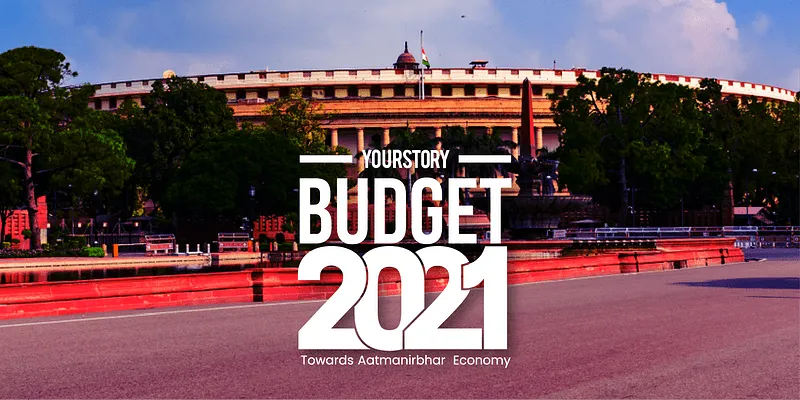
More focus on ease of doing business - Deepak Gupta, Founding Partner,
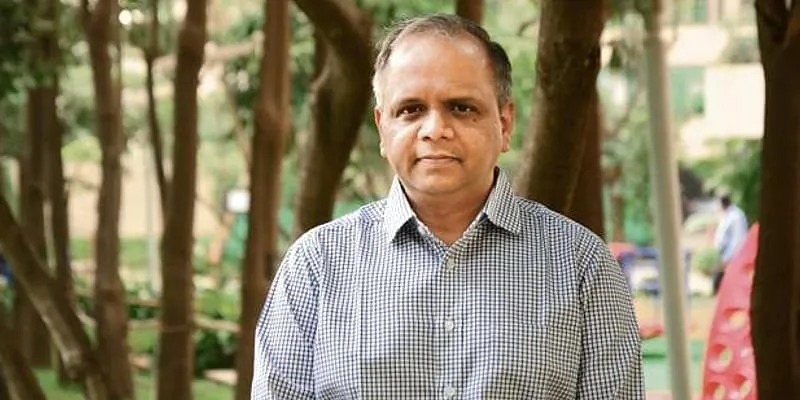
Deepak Gupta, founder, WEH Ventures
One area which has implications for growth and job creation is the ease of doing business ("EODB"). Within that, India lags substantially relative to most in the area of enforcement of contracts. There are many elements to resolving this issue — from accelerated recruitment of judges to the improvement of arbitration processes, and others. We hope that action can be taken on this front in short order with specific pronouncements in the budget and follow-up from thereon.
Efforts to improve rural healthcare - Meena Ganesh, MD and CEO , Despite 75 percent of the Indian population residing in rural areas, the healthcare concentration is heavily skewed in the urban areas. The best and fastest way to ensure quality healthcare access in rural India is through e-health/e-medicine services.
Funds must be allocated towards skill development of teachers, nurses, paramedical staff, and caregivers. Further, by making budget allocations for the development of telemedicine and home-based healthcare ecosystem in the country, it is possible to best harness the available resources to cover the whole country. This can be done through a public-private partnership more speedily and effectively.
Regulation of hygiene industry - Vikas Bagaria, Founder,

Vikas Bagaria, Founder, Pee Safe
This year’s Budget gives us hope of better regulation of the hygiene industry, which will help in attracting more foreign investment. We believe that an increase in healthcare expenditure is crucial at this juncture, and India, currently, has the lowest public health expenditure in terms of GDP percentage. The country needs an equal, easy, and affordable access to quality healthcare.
As far as taxes are concerned, the provisions drafted must require no major changes for at least three years. This would reduce the compliance burden on startups and make management easier. Wherever needed, corrective changes need to be made to make implementation easier.
More budgetary support to healthcare - Nilesh Aggarwal Director and CEO, Medtalks
- Budgetary infusions: India’s healthcare budget in terms of GDP ratio has been abysmal until now, and the chinks in the armour were thoroughly exposed by the pandemic outbreak. The time has come for the government to scale up the investments in healthcare, and create budgetary provisions for capacity building and supporting technology-driven healthcare startups from the private sector as well.
- Creation of healthcare professionals: The government needs to build training and development infrastructure to create more skilled healthcare professionals, and to facilitate skill enhancement of the workforce to meet the post-pandemic needs.
- Reduce dependency on China for imports: The Indian medical and pharmaceuticals sector depends greatly on China for APIs and imports a lot of medical devices. The government needs to support Indian companies to overcome this need by supporting the domestic manufacture of equipment and medicines.
Strengthen the infrastructure industry - Sanchit Gaurav, Co-founder,
The COVID-19 pandemic has drastically changed the landscape of construction in India. The pandemic’s impact is likely to be felt in terms of the pricing of construction projects. The availability of materials has become more challenging due to certain restrictions. However, we are confident that the government will take measures to ease the situation by providing interest subsidies, reducing GST rates, etc., in the upcoming Budget.
Nonetheless, the government has frequently announced plans to strengthen the infrastructure and construction sectors, and we are confident that the sector will receive much-needed support in the upcoming Budget announcement.
More focus on healthcare and technology - Bhavin Turakhia, Founder and CEO, , and Co-founder and CEO,
We believe the two most important sectors for the government to focus on in the upcoming Union Budget should be healthcare and technology. Given the current vaccination drive, healthcare should continue to remain a key focus this year.
Similarly, with the ongoing pandemic, technology has become imperative in many industry sectors — education, BFSI, healthcare, and even manufacturing have realised the importance of jumping on the digital bandwagon.
Additionally, the government should invest in strengthening technologies around communication platforms, digital payments, artificial intelligence, machine learning, and the internet of things. It is vital that the budget draws out bold policy interventions to strengthen digital infrastructure, which will eventually help the Indian economy return to its fast-paced growth phase.
Need more expenditure on healthcare - Sunil Thakur, Managing Director, Quadria Capital
We need more expenditure on healthcare than defence to feel safe, and therefore, there is a need to bring that narrative to the forefront and increase overall expenditure on healthcare
There should be an increase in public expenditure to reach 2.5 percent ahead of the target timeline, orient incentive to bring up infrastructure in Tier II and III cities to align with financing, create inclusive healthcare financing by making health insurance compulsory through employers, public expenditure, and individuals, help multiply clinical and paramedical resources through both private and public participation, more focus on preventive, wellness, and screening, and lastly, thrust on digital and technology to accelerate access and quality.
Other measures include:
- It is estimated that the cost of NCDs in India will be about $6 trillion, thus should be enhanced focus on comprehensive screening and diagnostic programmes. The government should partner with the private sector for offering screening packages for some of the disease profiles that are relevant for the indigenous population and specific communities, consider subsidising the cost of screening, and increase tax exemption for preventive healthcare check-up from the present Rs 5,000 to Rs 10,000.
- In the area of Digital Health, harmonise regulatory framework for the adoption of digital health solutions, strict regulation, or incentive for adoption of HER, leverage technology to improve health access, adoption and encouragement of telemedicine for primary care to Tele-ICU to teleradiology.
- Employers in the organised sector should be mandated to be covered by the employer and made part/full of the compensation, mandatory health insurance for self-employed with the disclosure in their tax returns, affordable insurance for elders to cover specific health risks, increase the quantum of deduction towards medical insurance, and expand the definition of dependants.
- There should be zero-rating of GST for healthcare services and tax holiday for new projects, especially in Tier II and III cities.
- Reversals of the health chess on the medtech companies, and create a fair and transparent playing field for medical devices under Make in India.
- In the pharma sector, the government should lower the GST to five percent. Reversal of input credit on the destruction of date expired goods/physicians samples, utilisation of MEIS and SEIS scrip towards the payment of GST, bring forward MAT credit should be allowable under the new tax regime, and corpus for treatment of rare and genetic diseases.
Support to startups engaged in the wedding industry - Sandeep Lodha, CEO, Weddingz.in
The wedding industry, although known to be recession-proof, has also faced the brunt of the pandemic like all other businesses. With the cultural significance weddings hold in India, while the industry is gradually pacing towards its recovery, it is imperative for the government to give impetus and aid rebound of the sector through consideration in Union Budget 2021. We suggest two things:
- To provide some financial relief for the banquets that have paid GST for FY19-20, provide them with 25 percent of the GST amount or credit. This will definitely help small and medium hotel owners sustain operations
- Additionally, there is a growing need for the formalisation of the sector. We are hopeful that the Union Budget will lower the GST for banquets and other ancillary wedding services from 18 percent to five percent (and two percent in the short-term) to bring about resurgence to both consumers and businesses.
Catalyse non-linear growth in healthcare industry - Devang Mehta, Partner at Anthill Ventures
The Finance Minister has a once-in-a-lifetime opportunity to make this a seminal budget for the early-stage industry in India, especially as it relates to Healthcare startups, There are a plethora of startups in Health Tech and Biotech, which, given the right incentives can fundamentally and permanently alter the quality of healthcare in India. The ubiquitous availability of personal healthcare data, pre-empting disease through minimally invasive testing, completely personalized treatment options, and easy availability of financing options to the poor for even the most complex medical procedures are just some of the wonderful outcomes that can emerge from a well-crafted Budget. The entire early-stage ecosystem can provide significant tailwinds in the push to create a $5 trillion dollar economy - by catalyzing non-linear growth in industries like medical tourism, R&D (and cures) in chronic diseases like diabetes, game-changing medical devices, and a lot more.
More regulatory ease in doing business - Ravi Narayan, CEO of T-Hub
Not just the startups or investors but the entire ecosystem faced several challenges amid the pandemic last year and needs an impetus to recover and bounce fast. For this year's budget, the investor community will expect more regulatory ease in doing business to encourage more entrepreneurs and investors to open offices to grow in India, thus creating employment and wealth. Enabling domestic capital participation by allowing large PSU's to invest in VC's, capital gain tax exemption on gains from startup investments could further fuel investments and reach pre-pandemic levels. Extending easily accessible working capital limits granting where applicable, easy GST framework and compliances for the next two-three years would certainly bring relief for the startups.
Increase education expenditure - Aakash Chaudhry, Managing Director, Aakash Educational Services Limited (AESL)
National Education Policy (NEP 2020) has already set the pace for enormous skill development for the youth. We are expecting that the government will increase the education expenditure in the current education budget. With more focus on the implementation of the new policy, quality and tax-free education, and skill development, the reforms will pave the ways for more blue-collar jobs. As classroom education has undergone a complete change due to the emergence of COVID-19, we expect that the government will put more focus on online education in Tier II and III cities, and envisage avenues to make India one of the preferred higher education destinations in the world.
Support to modern payments framework - Akash Sinha, Co-founder and CEO, Cashfree
We expect the new budget to include supportive initiatives to provide a modern payments framework that can ensure high-quality performance while gearing up for the next wave of transformation. We are looking forward to RBI’s Regulatory Sandbox, which recently included cross-border payments as the second cohort after retail payments. This move opens up more avenues for fintech as well as offers global expansion opportunities for businesses.
- Clear regulatory frameworks would help in assessing the legality of fintech or verifying compliance/licensing.
- A separate regulatory body would aid in providing transparency in digital payments and also clearly define a framework that caters to unique and new use cases that proliferate as the payment ecosystem matures.
- A discounted MDR for RuPay and slab-based MDR on UPI transactions would help.
- Introduce supportive policymaking that encourages healthy competition and ensures innovation is not curtailed.
Focussed approach for rapidly spreading NCDs - Nikky Gupta, Co-founder and Director, Teamwork Communication Group

Nikky Gupta, Co-founder and Director, Teamwork Communication Group
The healthcare sector should be accorded the status of a priority sector, unlike all these years, and enable access to funds, as well as tax incentives to improve the affordability of care. India must allocate more funds to generate awareness about non-communicable diseases in people, and induce behaviour change in order to control it. Focussed approach for rapidly spreading NCDs, such as cancer and diabetes, will go a long way to control both morbidity and mortality.
Facilitating better infrastructure for mental health startups - Shumita Kakkar, Founder, United We Care
There is a need to integrate technology-driven startups in its action plan to boost the physical, financial, and mental health of the public.
- Cheaper finance: There must be a multi-pronged approach, starting from making cheaper finances available to e-platforms, foreign, and institutional investments simpler and more attractive, and policy support to startups. Mental health consultations and support services can be given tax exemptions and incentives to expand their coverage and employ more consultants.
- Facilitating training: Another key initiative must be in the form of facilitating training and education for mental health counsellors, psychiatrists, and other advisors to create a larger number of specialists.
- Expand mental health coverage: By collaborating with the private sector e-platforms, the government can expand mental health coverage all over India, and effectively support the wellness of hundreds of millions of people. Integrating cutting-edge technology by such startups should be incentivised.
- Cover mental health under insurance: Mental health consultations should also be made a part of coverage under insurance. Health insurance policies cover mental illnesses currently, but making consultations a part of it might encourage more people to opt for it.
Building better tax infrastructure - Shilpa Ambre, CFO, SARVA
Today, the GST we are paying is as high as 18 percent. But, in the upcoming Budget, we hope that this is corrected, given the increasing importance of wellness becoming a lifestyle as opposed to vanity metric.
Also, a “tax holiday” by the government could be a good move. I do expect the Government of India to introduce more incentives that encourage employers and employees to naturally gravitate towards making wellness mandatory at the workplace. This can be done through tax exemptions when an individual invests in his/her health, or some sort of rebates for corporates who make conscious choices for the health and wellness of their employees.
Incentivise export of technology products - Tapan Barman, Co-founder and CEO, Mihup
The pandemic has driven global companies to look at India as an alternative to China in terms of technology and manufacturing.
- Simplify taxation: By simplifying things such as taxation, investment, and offering further incentives to Indian startups, the government can help in helping them generate more revenue and employment.
- Cutting-edge technologies: Development of cutting-edge technologies should be incentivised. The Indian government can further enhance innovation in the technology and manufacturing sectors. This can be done through infrastructural and financial support, and skill development, and integration of cutting-edge technologies in all sectors, including governance.
- Export of technology products: This should be incentivised. The Indian IT sector is already renowned globally, and now is the best time to make the country the global hub in tech innovation and automation.
Infuse more liquidity for MSMEs - Vivek Bindra, Founder and CEO, Bada Business

Vivek Bindra, Founder and CEO, Bada Business
The government can provide further policy support to MSMEs to tide over the recessionary phase. Given the fact that this is the first Budget post-COVID, the industry is hoping for concrete measures to revive the economy, ways to increase consumer demand, particularly in sectors that were hit hard by the COVID-19 crisis.
- Infuse more liquidity: Through the Budget, the government must find ways to infuse more liquidity into the system, leave more money into the hands of consumers, and further ease the process of fund disbursement to MSMEs. Less complex GST structure and ease of taxation for MSMEs should also be a priority.
- More support to the manufacturing industry: The government must create a competitive tariff structure that favours imports of raw materials over imports of finished goods.
- Boost rural enterprises: It must also find ways to boost a wave of new micro-enterprises in rural India to create more employment opportunities outside agriculture. Building the entrepreneurial capability of rural youth through business training, easing the norms to start businesses, and creating a fast loan disbursement mechanism for micro-enterprises in villages, can help infuse a new entrepreneurial energy in villages.
- Job creation: The government needs to infuse more infrastructure based activity in both the rural and urban economies to generate more work opportunities.
Stronger efforts to incorporate AI/ML training at early-stage for students - Kartik Sharma, Co-Founder, DcodeAI
There is a need to use low code/no-code tools and usage of AI to make learning easy, intuitive, and personalised. The introduction of such technologies to create a world-class education ecosystem in the country will improve the quality of talent that joins the workforce. The government should make stronger efforts to incorporate AI, ML, and Data Science training sessions at the grassroots level, and build capacities and acumen for new-age tech domains in educational institutions.
Help create the talent pipeline - Neha Bagaria, Founder,

Neha Bagaria, Founder and CEO, JobForHer
We expect the Budget 2021-22 to ensure that we create a talent pipeline required to service business needs in this new post-COVID-19 world, which has become increasingly digitised. As the jobs of the future become increasingly tech-based, we need to ensure that women are equal participants. The budget should accommodate for skilling programmes for women to upskill themselves in the latest technologies, which will further enable them to contribute to the country’s GDP. Also, with the pandemic, there has been a huge increase in flexible and contract workers who will need inclusive policies, perks and benefits so that we can benefit from the wide talent of women who are seeking flexibility with arrangements.
De-silo healthcare-as-a-service provider - Kamal Narayan Omer, CEO, Integrated Health and Wellbeing (IHW) Council

Kamal Narayan Omer, CEO, Integrated Health and Wellbeing (IHW) Council
It is time we de-silo healthcare-as-a-service provider, and look at the various other aspects that impact the need for health services or its efficiency. Apart from increasing the overall share of public spending in healthcare, the health budget this year must focus on its integrated nature, and adequate budgetary allocations must be made for:
- Primary healthcare: Especially in rural and remote areas, ensuring trained manpower and diagnostic services, in addition to affordable and accessible secondary and tertiary care
- Preventive healthcare: To control the rapid spread of non-communicable diseases and lack of adequate nutrition for the young and vulnerable population
- Focus on associated areas: This includes areas such as pollution control measures for air, water, and soil, and strengthening of the supply chain, especially for perishable food items.
- Health communication: A separate allocation must be made for health communication for behavioural change that will nudge people to adopt healthy and sustainable consumption and behaviour in the medium-to-long run.
A budget for financial inclusion - Ajay Lakhotia, Founder, StockGro

Ajay Lokhotia, Founder, StockGro
Pandemic has given a unique window of opportunity to introduce radical changes in economic policies. Tax reforms incentivising increased investments in government bonds, and with secure returns would be first on my cards.
From a startup ecosystem perspective, relief from direct and in-direct tax filing for at least two years would help founders focus on business instead of compliances. Overall, a budget for financial inclusion, especially promoting saving and investment across masses instead of classes, is the call of current times.
Invest heavily in the manufacturing sector - Raj Patel, Director, Royale Touche

Raj Patel, Director, Royale Touche
We expect a strong push from the government’s side to invest heavily in the manufacturing sectors. Hence, the ease of doing business and making Indian business competitive on a global scale should be the priority. Also, the PM’s dream — Pradhan Mantri Awas Yojana (PMAY) — to provide affordable housing to all the citizens of India will remain a significant driver for the segment in the upcoming Budget.
Levy 100 percent customs duty - Nevil Patel, Director, Orpat Group

Nevil Patel, Director, Orpat Group
We hope this time the government to come forward and levy 100 percent customs duty on finish products exported from other countries to support the local manufacturers. This will improve the production infrastructure and create employment opportunities.
If the government announces these measures, it will be a good start for the year, and it will also boost the morale of companies like us to step up our game in achieving the dream of a self-reliant India. By increasing import duties, it will strengthen the position of domestic products in local markets.
Empower the domestic tourism - Vimal Singh, Founder and CEO -ReadyAssist

ReadyAssist Founder & CEO Vimal Singh
Road safety must be brought to mainstream with the allocation of funds for awareness, setting up emergency response ecosystems, and improving highway safety and infrastructures. Domestic tourism should be empowered, and housewives should be encouraged and incentivised to become brand ambassadors of local tourism. Riders and the bloggers/vloggers communities should be recognised as they play a large part in our local tourism.
Increased focus on agri investments - Jinesh Shah, Managing Partner, Omnivore
Agritech has been instrumental in helping India manage disruptions caused by the management of COVID-19. The sector saw significant support from the government in this trying period. Furthermore, farmer-focused direct benefit transfer (DBT) initiatives have helped build resilience in the rural economy.
Early-stage enterprises, aimed at post-harvest value addition, must be incentivised and encouraged as the development of innovative fresh produce supply chains and a vibrant food processing sector are key to better price realisation for farmers. I believe the Budget will further add to the momentum we have seen over the last two quarters, with an increased focus on agri investments and agri digitisation.
Strong focus on renewable energy - Rahul Sankhe, Co-founder and President, SenseHawk
We expect the government to have a strong focus on renewable energy in this Budget as in previous years. As a SaaS startup offering solutions for solar companies globally from India, we are excited about how the government has been vocal about India taking a leadership role in the clean energy wave. We believe AI solutions are getting widely adopted for managing solar assets globally, and India is no exception, and are hopeful that stimulus for the sector in the budget will drive growth for the industry.
Increase higher education budget – Prof (col) Shishir Kumar, Director General, ImaginXP
Last year’s Budget had allocated Rs 38,317 crore (40 percent of the total budget) towards higher education. With one in five students unskilled for the modern workplace and about 60 percent unemployability in the higher education graduates in India, I implore the finance minister to increase the higher education budget by about at least 25 percent. Last year, only Rs 125 crore was allocated to teacher and adult training. We need to significantly increase our focus on teachers as they are the backbone of the education system. We have to invest in the right future skill force, then only can we achieve the PM’s $5 trillion dream.
A progressive surcharge can be a better option - Jiger Saiya, Partner and Leader - Tax and Regulatory Services, BDO India
- Tax relief to employers: To encourage employers to retain and re-hire employees or avoid layoffs, Canada introduced a subsidy to the tune of 75 percent of wages for qualifying employers. Similarly, Australia introduced a wage subsidy of 50 percent of an existing apprentice’s or trainee’s wage for up to nine months. While no similar subsidies were doled out in India, tax relief in the form of a conditional weighted deduction for salaries paid, corresponding to the impacted period, would aid disrupted employers.
- Avoid COVID-19 cess or surcharge: Could taxpayers see a COVID-19 cess or surcharge this Budget? The answer would hinge on how the government plans to fund the fiscal deficit created by the stimulus, and the budgeted spend on vaccination drive. However, between a cess and a surcharge, a progressive surcharge could be a better option as it will not put an equal burden on small taxpayers.
Abolish long-term capital gains tax - Shashank Udupa, Co-founder and CFO, Avalon Meta
A lot of retail investors are hoping for the long-term capital gains tax (LTCG) to be abolished, which would provide a lot of relief to existing retail investors, as the government currently charges both LTCG and Securities Transaction Tax (STT). With Sensex close to a historic high of 50,000 levels, a favourable 2021 Budget will push the market to new highs and vice versa.
While India is slowly recovering from the COVID-19 induced slump, all eyes are on the Budget and the possibility of tax reliefs for the average middle-class Indian, which would help boost spending, and thus revive the economy.
Strengthen credit lending for MSMEs - Viraj Sheth, Co-founder, Monk Entertainment
As a medium-sized enterprise owner and entrepreneur, one of the key expectations I have from the Budget is focussed on improving the health of the state of the MSMEs in India. A lot of entrepreneurs are hoping for relief measures in the form of credit lending. Moreover, with the pandemic, the push towards digital adoption of businesses, has only been expedited. Educating the MSMEs and giving them easier access to adapt to this new world would reap immense benefits.
A favourable budget for common taxpayers - Raj Shamani, Founder of Shamani Industries

Raj Shamani, founder, Shamani Industries
One expectation from the 2021 Budget — it should be favourable to common taxpayers. This year, they were the one most affected, the ones with maximum EMIs, maximum responsibility, and expenses on a recurring basis. But because of the pandemic, they have seen the lowest days. Providing some relief to the common man is the need of the hour. With this year’s Budget, I am expecting some relief in the tax slab for the common taxpayers. Given the fact that this is the first budget post-COVID, the industry is hoping for concrete measures to revive the economy, ways to increase consumer demand, particularly in sectors that were hit hard by the COVID crisis, like the retail industry, tourism, hospitality, etc.
Availability of working capital for startups - Shivjeet Ghatge, CEO and Co-founder, StepSetGo
A focal point for startups is the availability of working capital. While according to NASSCOM the investment ecosystem is set to return to its pre-pandemic levels, if not exceed it, a mobilised framework for funding would be a great start that would increase the ease of inflow and outflow for foreign investors.
Considering the size of the Indian software exports, we are hopeful that this year's Budget increases the prioritisation of growth opportunities and incentives for indigenous, homegrown brands.
For the startup industry, initiatives like 'Make in India' have helped put Indian tech companies at the forefront and drove international visibility.
Reinvent India’s health system - A Ganesan, Group Vice Chairman, Neuberg Diagnostics
The domestic players can continue to fuel India’s growth in the healthcare sector, and to make the ecosystem more vibrant and responsive, a few of the things that need immediate attention are:
- CGHS/EHS dues are not still being paid regularly, despite assurances by the central government. Besides, the paperwork for submission of claims is so voluminous, resulting in substantial hardships.
- MSME rules are only on paper and government departments/agencies are not respecting these rules. These departments/agencies first should set an example by paying legitimate claims within due dates.
- GST on all supplies/services to hospitals and laboratories should be removed. Hospitals and labs have no output GST liability, and hence the input credits cannot be availed by the lab. In case the GST is abolished on supplies to hospitals and labs, the price to consumers will come down significantly.
- Health insurance premiums, over the years, have become more expensive. To make it more affordable to larger sections of society, the GST on health insurance premiums should be withdrawn
- As per section 80-D of the Income Tax Act, premiums paid by the individual taxpayers are allowed as deduction subject certain maximum amount, depending upon the age of the taxpayers. The maximum amount of deduction should be increased substantially to all categories of taxpayers.
- As per section 80-D, preventive health check expenditure up to a sum of Rs 5000 can be claimed as a deduction. But, this deduction is allowed subject to the overall ceiling fixed. There has to be a separate deduction, and the expenditure incurred has to be increased to Rs 15,000 and should be extended to the spouse of the taxpayer.
Budgetary provisions for travel and tourism industry - Bhanu Chopra, Founder and Chairman, RateGain

Bhanu Chopra, Founder and Chairman, RateGain
The hospitality and tourism industry was among the worst-hit due to the COVID-19 outbreak. Now, there seems to be light at the end of the tunnel as the demand is slowly and steadily increasing. It will give the sector much-needed push if the government includes the same in its concurrent list.
Budgetary provisions, better regulations, and policy decisions can go a long way for businesses of all shapes and sizes. The government should also consider granting the segment infrastructure status, given its importance in revitalising the economy. Doing so will allow businesses to avail electricity, water, and land at industrial rates along with improved lending rates.
More growth opportunities for MSMEs - Shivendra Nigam, CFO, Cantabil Retail India Ltd.
The government has taken a lot of appreciable initiatives to secure the interest of MSMEs. However, there should also be a focus on large enterprises that are dealing with MSMEs. The government should take steps like making GST returns filing dates the same for all categories of taxpayers, as large taxpayers regularly face working capital pressure due to non-filing of monthly returns and blocking of input credit.
Also, we expect some tax relaxation and incentives for taxpayers to have more cash-in-hand and spending power, which will result in more cash inflow in retail to boost the economy.
Apart from this, many people have lost jobs amidst the pandemic due to the hard-hitting impact on the retail industry. It would be interesting to see how the government would address the job creation and security issue in this badly affected economy.
Support for transportation, logistics, and hospitality sector - Alok Mittal, CEO and Founder, Indifi Technologies

Alok Mittal, CEO and Founder, Indifi Technologies
The economy is currently in a rebuild mode, and hence, sectoral incentives play a pivotal role as they allow MSMEs to recover. Although different sectors have been hit differently, large sectors like transportation, logistics, and hospitality have been the worst-hit. As a result, there needs to be an initiative to provide them with support and recovery measures. Secondly, the wholesale lending market needs to be refuelled, with a focus on BBB and A-rated NBFCs. This will be a step in the right direction and help the overall economy recuperate faster in the coming months.
Enthusiastic and more supportive fiscal policies for fintech companies - Kumar Abhishek, CEO and Founder, ToneTag

Kumar Abhishek, CEO and Founder, ToneTag
With regards to the budget, we are anticipating major changes and incentives this year, especially for the fintech sector.
- Establishing Indian fintech footprint globally: We expect the government to ramp up its efforts in driving campaigns and schemes to encourage migration to the digital space.
- Encouraging fiscal policies: We are also expecting fiscal policies that encourage banks and financial institutions, especially those in rural areas, to partner and work closely with fintech companies to expand their digital service suite and integrate fintech to provide end-to-end processing instead of piecemeal service.
Boosting the transportation and logistics sector - Sonesh Jain, EIR, WheelsEye

Sonesh Jain, EIR, WheelsEye
Budget 2021 comes right after a global pandemic and is expected to bring relief to the recession-struck economy of India. Due to the lockdown, numerous industries were affected severely. The logistics sector, which played a crucial role in keeping the country’s economy afloat, is among those in need of dire help. Therefore, the upcoming budget must allot and utilise adequate funds for boosting the transportation and logistics sector. Key expectations include:
- Implement uniform and subsidised diesel rates, especially for transporters with less than five vehicles.
- Revision to lower GST slabs for small businessmen to boost profitability.
- Allow NETC and NPCI to solve toll or traffic-related payment disputes in real-time.
- Empower software and hardware related innovation and partner with startups to solve on-ground real problems.
- Develop a data and resource centre to make logistics-related databases and statistical information easily available.
- Policies on standardising GPS and other technologies to automate toll collection, business operations, and increase the safety of commercial vehicles.
- Develop a better custom documentation process and an integrated platform with access to all export formalities for bringing ease and transparency among importers and exporters.
National retail policy, increase in FDI inflow, and more - Ravi Saxena, MD, Wonderchef
Starting the year afresh and on a positive note, everyone is anticipating Budget 2021 with much optimism. The industry is eagerly waiting for the government to introduce the National Retail Policy and streamline the compliance mechanism to facilitate business expansion.
Also, we are expecting an increase in the FDI inflow, which would help organised players to expand their presence as well as have access to the best manufacturing practices, in step with the Make in India initiative. This budget also needs to take into account the rising input costs so that the end consumer doesn't have to face the dual setback of coronavirus-led financial strain and price rise.
Resolution to long-pending policy expectations in real estate - Pradeep Misra, CMD-REPL, Rudrabhishek Enterprises Ltd
The real estate sector is heavily driven by government policy and the availability of investible surplus income in the hands of common people. Some of the long-pending policy expectations include:
- grant of industry status
- ease GST regulations
- increase tax incentives to buyers
- easy finance for the sector
- single window clearance
Some other expectations include:
- Direct measures to address liquidity crisis may include FDI in rental housing, and ECB permissions in all real estate projects.
- Make provisions for direct infusion of funds in the sector through existing channels like SWAMIH funds. Also, another state-centric fund – SWAMIH funds-II – should be launched wherein state institutions can contribute 50 percent of capital.
- Regional offices in respective states should fund projects in only Tier-II and III cities, under the current fund.
- Infrastructure sector is looking for more spending from the government side, as India is going to host the G20 summit in 2023.
- New flagship programmes for urban infrastructure, transportation, tourism, rural employment, etc ., should be announced.
- Adequate allocations for quicker economic turnaround and consolidating India’s position as a world-class economy.
Formalising online education should be the priority - Rohit Gajbhiye, Founder, Financepeer
The stakeholders in the edtech sector are eyeing the Budget 2021 with a lot of expectations as the government has already signalled allocation of 6 percent of the GDP towards education. This can be a healthy start towards strengthening the sector. Aligning with it, we expect the government to introduce a framework for formalising online education by coupling it with exhaustive provisions for bridging the digital divide between both ends of the education value chain i.e. the teachers and the students.
Also, the gap in the quality of education between rural and urban areas has to be a priority, and technology is pivotal for that. We are also expecting the government to lay the ground for a gradual increase in the annual budget of education to 10 percent of the GDP to create an ecosystem for a vigorous research and development infrastructure.
Improvement in credit facilities and accessibility of funds for MSMEs - Vishal Gupta, Co-founder, Brands2Life
Startups and MSMEs are looking for some measures to improve the credit facilities and accessibility of funds that can mobilise the growth and further help the sector to revive from COVID-19. Also, the Production Linked Incentive (PLI) scheme needs a stronger framework that will further strengthen the Aatmanirbhar Bharat initiative.
As technology-led developments are taking place at a faster pace, the MSMEs sector needs more encouragement from the government for its adoption. More entrepreneurship and incubation programmes should be prioritised for the Budget. The entire world is adopting new SOPs in 2021 and this budget should set the launchpad for making India the global leader in this decade.
Focus on healthcare - Shekhar Rawtani, Founder, Prescrip
With the COVID-19 vaccine being rolled out, and other structured and effective measures in place to combat coronavirus, there is no doubt that 2021 is going to be a milestone year for the healthcare industry. We hope that the government will present a budget with a bigger focus on healthcare. The ongoing pandemic has put healthcare in the spotlight and has exposed several gaps in the ecosystem. Hence, we need policies that can cover wide-ranging voids in infrastructure, facilities, and financial provisions in the upcoming budget. Making budgetary provisions for our frontline workers, who have been pivotal in our fight against the pandemic, should be one of the key focus areas of the government.
The year 2020 has also set the base for digital transformation and innovations in the healthcare system, and 2021 policies must work towards scaling them, increasing digital inclusion in the remotest corners of the country.
Improvement in the healthtech sector - Karan Chopra, Founder, Hospido.in and Co-founder, Doctor On Call

Karan Chopra, Founder Hospido.in and Co-founder, Doctor On Call
There is a very high expectation from the budget for healthcare startups, especially in a country like India where digital health can truly cater to areas that have a short supply of doctors.
- Healthcare platforms connecting patients to doctors have to pay GST on their revenues, whereas broader healthcare services are exempt under GST. Such platforms should also be exempted from GST.
- Subsidies and lower taxation for healthtech players can also promote innovation in the sector and open access to a lot of people
- One nation one medical record policy should be introduced where we digitise medical records of the entire population. The government will have to bring together payers, providers, and doctors to implement this.
More support for technology startups - Gaurav Shinh, Founder and CEO, DAAS Labs

Gaurav Shinh, CEO & founder, Daas Labs
The government has started realising the importance of new technologies like Artificial Intelligence and Machine Learning, and has even called ‘data as the new oil’ in the previous Budget 2020. According to a recent NASSCOM report, deep-tech and new startup hubs will continue to grow at 40-45 percent CAGR. It also stated that investments are expected to return to 2019 levels, after seeing a dip in 2020 (if not exceeding in 2021).
The pandemic has been a huge boost to edtech, agritech, fintech, HRtech, and healthtech startups. So, we expect to see decisions to fuel the growth of cloud data storage, big data, and AI technologies in several domains. The pandemic sparked the work from the home trend, with a lot of tech investment being made into Tier II and III cities, and the trend is supposed to continue. Reforms are expected to support and enable these startups as they can have a huge long-term impact.
Take lead on climate change: Anshuman Bapna, Founder, Terra.do
A post-COVID-19 budget is a historic opportunity for India to take the lead on climate change in two ways – first, by avoiding the $2 trillion energy infrastructure mistake that the US and China made by decisively moving away from coal, and second, by learning from China and making deep investments in becoming a manufacturing world leader for a renewables-powered world.
The budget should balance this push towards cleaner energy with job retraining programmes for the millions of impoverished Indians who are dependent on coal for their livelihoods.
Education and training are key to creating the new workforce India will need to build a climate-resilient and climate-saving future. Thus, it is time to invest in a new generation of clean energy engineers, regenerative farmers, smart grid planners, and solar installers.
Increased budget for education - Mohammad Zeeshan, Co-Founder and CEO, MyCaptain
As compared to the Rs 99,000 crore allocated in 2020, we might need a slight increase in budget this year; as a lot of technology will have to be implemented at a massive nationwide scale to transform education amidst the pandemic. Keeping the costs of technology in mind, there should be at least a 5-7 percent increase in the budget, specifically allocated to the technological part of education.
Also, there should be GST subsidies for edtech companies providing any kind of services to college and school students because right now, it is heavily dependent on the private sector, and the private sector incurs 18 percent GST on education. So, considering the pandemic, we should get a subsidised GST for the edtech sector for at least the next two to three years.
Increase turnover limit for startups - Siddharth Kothari, Chief Investment Strategist, Om Metal Group

Siddharth Kothari, chief investment strategist, Om Metal Group
The turnover limit of startups must be increased from Rs 100 crore to Rs 200 crore for a 100 percent tax deduction. There is no need to tax these companies when they are small. Even if one turns out to be a unicorn, it takes care of the taxation requirements of a thousand others. Some other expectations are:
- Try public-private partnerships for healthcare startups: Startups that promote health checkups, health insurance, and telemedicine must be supported. Health insurance still remains a distant dream for many, and it's about time that we leverage technology to reach the masses.
- More focus on agritech startups: The new farm laws, if implemented successfully, would require the use of technology to keep checks and balances in place. Even if they are not implemented, agritech startups have to be promoted to make the agri supply chain more efficient. Also, agri startups focused on sustainable modes of farming must be supported.
- Educate in India: With initiatives like Make in India and Aatmanirbhar Bharat, the budget must encourage the creation of educational entities that pick the best brains from schools and colleges, and fund their ventures without any hassles.
Control the cost inflation - Dinesh Chhabra, CEO, Usha International
The recent abnormal surge in the price of raw materials and freight costs cast a shadow on sales forecasts in the forthcoming summer months. We hope that the government will prioritise the measures necessary to control the cost inflation with liberal budget allocation focusing on strengthening the domestic manufacturing and component ecosystem this year.
As digital adoption and transformation accelerates, increased allocation to improve internet infrastructure and connectivity to bridge the rural-urban divide across geographies will also induce strong consumer demand and stabilise growth patterns in the future.
Offer an overall boost to startup economy - Ram Kewalramani, Co-founder and Managing Director, CredAble

Ram Kewalramani, Co-founder and Managing Director, CredAble
Union Budget 2021 should approach certain structural issues with urgency:
- A big push and budgetary allocation for infusing more liquidity for MSMEs.
- Fortify credit lending to cash-starved sectors and get more lending startups to participate to expand the pie, particularly in the area of working capital financing.
- A big push for the tourism industry to ensure precious foreign exchange reserves are shored up, especially when international tourism is promoted as the pandemic is reigned in.
- While India’s has jumped to the 63rd rank in the Ease of Doing Busineness list, compliances could still be rationalised and processes digitised to a large extent where entrepreneurs with great ideas are motivated enough to start up.
- Push to frame innovative structures where startups can get access to cheaper capital via a fund of more than Rs 10,000 crore, as wishlisted by the Minister of Commerce and Industry recently.
- Enough incentivisation on public-private partnerships.
Special packages for Tier II and III startups - Shivram Choudhary, Founder, Codevidhya

Shivram Choudhary, Founder, Codevidhya
With cooperation from the government, edtech startups have the potential to be global leaders in education. To achieve this goal, the government should release special packages for the startups that are incubated in Tier II and III cities, and allocate budgets for skill development and training that will employ the future workforces.
Continue with the current low interest and easy liquidity regime - Krish Raveshia, CEO, Azlo Realty
The real estate sector has its list ready to boost demand and bring growth back on track. On top of the list are measures like continuing with the current low interest and easy liquidity regime. A low-interest rate is a direct stimulus for investment in real estate. Other demands include:
- Measures to boost demand for the industry like enhancing the limit of deduction under Section 80C of income tax for principal repayment on home loans, a separate exemption for principal repayment on home loans to incentivise investment in real estate.
- The investment of up to Rs 50,000 in REITs should be allowed as a deduction under Section 80C. Also, the holding period for REITs to qualify for long-term capital gain should be reduced from 36 months to 12 months, a step that will spur retail investment in value-creating instruments like REITs.
- Further enhancement in ease of doing business with limited approvals required to develop a project within a defined timeframe.
- Extend the current schemes to avail benefits under PMAY CLSS beyond March 2021, and differential pricing between circle rate and agreement value beyond June 2021 – steps that will boost demand for real estate and help achieve a faster recovery.
Help improve home buying sentiments among consumers - Rajesh Mehra, Director and Promoter, Jaquar Group
‘Revival Push’ is the key expectation from Union Budget 2021. From an affordable housing perspective, corrective measures which ease out the liquidity challenges and improve home buying sentiments will be critical. In respect of this:
- Relief for taxpayers/reduced income tax rates will nurture the spur of demand in the housing sector.
- It will be beneficial to have a limited waiver on GST to aid the pricing burden on property owners.
- Additionally, the GST for sanitary ware and LED/smart lighting is marked at 18 percent and 12 percent respectively – a reduction will be conducive to improved demand and help with the adoption of better consumer habits to gratify the government’s Vocal for Local, Swasth India, and affordable housing for all by 2022 goals.
Keep skilling a priority - Rameswar Mandali, CEO and Founder, SKILL MONKS
Keeping skilling as a priority, the government must provide training institutions with financial support through Union Budget 2021- 2022, by offering subsidies on basic infrastructural facilities, providing access to low-cost funds backed by an extended moratorium period, and collateral-free loans. A few other expectations include:
- Encourage quality edtech startups and more professionals to get into the skilling domain; the government should look at a tax holiday for the initial two years of operation.
- Boost online training and education by allocating more funds to automate and digitise operations of training institutions.
- Ensure that skilling is prioritised. The government must make provisions for reduced GST slabs, encouraging young graduates and working professionals in getting skilled in a domain of their choice and staying relevant in a dynamic market environment.
- Additionally, the government should look at incorporating additional sanctions to the National Skill Development Corporation (NSDC) to facilitate accelerated learning and to acquire relevant skills under Industry 4.0 domain.
Tax benefits, expansion of HRA provision, and more - Rameesh Kailasam, CEO, IndiaTech.org
The upcoming Budget 2021 is expected to unlock ease of doing business online, which in many ways would unlock economic benefits for the economy. Some recommendations that could enable the same are:
- Relaxation in listing norms for high growth technology companies:
It is critical that certain listing norms are relaxed, especially for high growth technology companies such as unicorns, considering that they have already undergone multiple rounds of capital infusion and due diligence by multiple investors. This is especially the case for relaxation around Minimum Promoters’ contribution and lock-in at the time of direct listing on the Main Board of Stock Exchanges, which can significantly work in retaining such companies to list and create wealth within India.
- Relaxations on the applicability of Section 194 (O):
This section mandates 1 percent TDS levy on all ecommerce transactions. While the section intended to expand the tax base, however, it is creating a significant working capital lock for businesses like travel and insurance, which are regulated sectors having an audit trail and do not allow deductions of such nature. In addition, it has also resulted into a huge compliance burden for online platforms engaging crores of MSMEs, traders, plumbers, electricians, and salons – many of whom may have their taxes deducted despite not crossing the stipulated thresholds due to the multiplicity of platforms they may be providing services to. Therefore, withdrawal of the said provision to regulated sectors and mass population services and its manner of coverage can not only reduce huge compliance cost and working capital lock, but also encourage more sections of the society to come online, aligning with digital India.
- Clarifications on the applicability of Section 206C (1G) (b):
This section mandates the collection of 5 percent TCS with PAN and 10 percent TCS without PAN from the buyer of an overseas travel package from any online ecommerce entity. This provision thus encourages Indian customers to procure from online foreign-based operators since these regulations do not apply to them. Thus, it unfairly subjects honest taxpayers to tax deductions and also creates an uneven level playing field for Indian and foreign travel agents.
- Broad-base ESOP benefits applicability and reconsider point of taxation on ESOPs:
The applicability of the relaxation should be extended ideally to all startups and not be restricted to those registered with the DPIIT or listed under 80-IAC and IMB. Relaxations may be ideal to all startups below a prescribed turnover, and definition for ESOP taxation needs to be relooked as this is a critical tool for boosting ownership by employees, and to attract and retain quality talent for emerging startups. Ideally, abolition of taxation at exercise and levy of only capital gains between the exercise price and sale price at the time of exit is recommended, which could be the basis holding the stock for a prescribed period of time.
- Expansion of the HRA provisions:
Employees are availing HRA for an empty house vs a slightly furnished house benefit from HRA allowance by virtue of a higher rental. However, if someone rents furniture, it is not considered as eligible for HRA for the same house. The furniture rental option is particularly attractive for the large group of young migratory employees who move between cities seamlessly as opportunities open up as the economy expands. It is recommended that necessary amendments be made to Section 10 (13A) of the Income Tax Act and Rule 2A of the Income Tax Rules which would benefit employees to avail an HRA deduction for rented furnishings and household white goods, and at the same time, would unlock startups in this space and significantly boost the furnishing and white goods market.
GST reduction for edtech startups, scholarships for higher education, and more - Sumeet Jain, Co-founder, Yocket
Edtech companies expect help from Budget 2021 for various tax cuts, easier credit access, and other benefits to cope with the COVID-19 pandemic.
- GST reduction in online courses and career counselling: Educational institutions and courses are being taxed 18 percent, which should be reduced to around 5 percent.
- Scholarships for the higher education fund: With the assistance of study abroad scholarships accessible for essentially every course, the government should provide more scholarship opportunities for deserving candidates that can seek help in their determinant decisions for the choice of career courses and university.
- Development in digital courses/online learning: The government should cope with edtech companies to provide technology updates to assist in better online learning and provide effective results. It should set out a special fund for developing online courses. These courses can be provided to the larger public at subsidised rates.
- Preferability for online courses: The government should step in and help in boosting the awareness of online learning courses and promote the online learning platforms.
Increase focus on innovation and IPR in education at the school level - Rajeev Tiwari, Founder, STEMROBO Technologies
Budget 2021 can focus on more comprehensive and extensive methods for our young students in the K-12 segment to get exposure to innovation and tinkering while in school. It is high time Indian students and professionals get a boost in recognition of their innovations via Intellectual Property Rights (IPR). There has to be a culture within the country to promote brain gain.
Considering this, the government had introduced a scheme to develop Atal Tinkering Lab under which around 5,000+ ATL Labs have already been set up. The establishment of thousands of Atal Tinkering Labs across 715 districts of India enabled students from Class VI-XII to learn and experience the tinkering tools and equipment and develop innovative projects to solve community issues. But with 1.5 million+ schools in India, there is still a lot that needs to be done.
Some other expectations include:
- Reducing the GST rate:
Innovation and tinkering-based edtech firms still have to pay 18 percent GST. There should be some provision wherein they need to pay eeduced GST at 5 percent or so.
- Push towards technology-based learning:
The technology-oriented curriculum delivery, based on technique, pedagogy in line with the demands of the 21st-century skills, should be assimilated in our education delivery for K-12 students and schools. Budget 2021 should allow for improved accentuation and discretionary designation to resolve these concerns.
- Enhancing teachers capacity and skill-building:
There is a shortage of millions of teachers in our education system. At the same time, there is a need to update and redesign current teachers' qualifications so that they can train their aspirants for the demands of the future. Budget 2021 should also include provisions and proposals for teachers' abilities, taking into account the digital sustainability, development, enhancement, and acceleration of the study patterns.
Increase budget allocation for edtech - Anoop Gautam, CEO and Co-founder, Tinker Coders
The budget allocation for the edtech sector should be increased by at least 7-8 percent, compared to the previous year. Budget 2021 should favour the education sector. Further, the current taxation of 18 percent on the edtech sector can be reduced so that accessible quality digital education becomes a viable option for students of all sections of society.
Establish Fab Lab in India - Abhishek Gupta, Founder and CEO, Hex N Bit

Abhishek Gupta, founder, Hex N Bit
Following steps must be taken to make a startup sector a successful model:
- For electronics manufacturing, there is no Fab Lab in India, so the cost of manufacturing electronic products is higher (as compared to China and other countries) due to high import duties. The only option is to have Fab Lab in India or reduce import duties, making Indian product the most preferred.
- Existing incubators and accelerator programmes must expand their footprint to provide real technical support by connecting them with industry.
- The government must reduce taxes such as dividend tax and capital gains tax which can give investors’ confidence to attract foreign or domestic investment for startups.
Job creation and financial inclusion are the need of the hour - Amit Das, Co-founder and CEO, Think360.ai
- Job creation and business opportunities:
We need a stimulus that drives “creation” and “recovery”; For example, infrastructure financing with downstream impact on various sectors including the unorganised labour and construction and manufacturing-oriented setups.
- Driving financial inclusion:
In addition to creating financing programmes and corpora, we are looking forward to setting up and democratising more information and technology highways that drive financial inclusion and recovery of the bottom-of-the-pyramid segments.
- Widening AI adoption:
Focus on becoming an AI powerhouse; unlike the previous IT boom where we rode the tailwinds through outsourcing and labour cost arbitrage, we should be focused on leading the AI pack through investments in rural and semi-urban transformative use-cases, building enabling infrastructure, AI parks (on the line of IT parks), beneficial tax regimes, etc.
- Opportunities for startups:
The startup ecosystem needs reforms – such as single window for startup compliances – from labour laws to state and central compliances, shop and establishment acts, digital contracting, payment and dispute settlement system, patents, IPRs, copyrights, trademarks.
- Government compliances and new-age innovations:
The investment corpora being laid out for startups are generous, but their deployment needs to be brought into focus. The process of enabling young entrepreneurial talent through investments, support, and regulatory sandboxes that allow for innovation.
Bring strategic and implementable ideas on board - Dr RB Smarta, Managing Director, Interlink
Strategic and implementable ideas have to be brought on board. Strategically, as it is planned in National Health Policy, 2017, there is an intent of allocating 2.5 percent of the GDP by 2025 on health – from existing 1.3 percent of GDP inclusive of public health is very minuscule compared to OECD countries’ average of 7.6 percent of GDP. Besides making the pharma industry to lead the sector, this budget should address:
- India must get its coveted position in API in the world and PIL like schemes and allocation will reduce imports and increase exports. India will become Aatmanirbhar in APIs.
- Pharma entrenchment in Artificial Intelligence and Machine Learning needs to be promoted and special allocation for pharma startups with time-bound progress should be established.
- As we are take the lead in innovation for vaccines, R&D efforts should be incentivised by showing the results on specific parameters.
- The three major SDGs taken by India needs a lot of push for resources and policy framework.
- The pandemic has shown the fragility of our primary and secondary healthcare systems, and a policy framework is needed in IT-enabled world.
Ease of doing business is the priority - Dhananjay Arora, Founder and CEO, Kwebmaker
As an entrepreneur, the most important area would be the overall ease of doing business, which includes setup and commencement of business, helping garner more employment, job creation, and most importantly, the entire tax structure and rules related to GST, income tax, etc. Given the pandemic, even interests on late tax payments must not be charged (at least for the initial six months from the due date). The tax rules in India are still very complex and most direct and indirect taxes should be abolished in place of fixed transactional tax, which can remove all paperwork and make all processes easy for entrepreneurs and the government.
Stimulus packages, tax incentives for startups in plant-based protein segment - Sagar N Mehta, Founder and Partner, Vegandukan
New-age companies and startups working on sustainability and welfare of human health and developing plant-based proteins should be given special recognition in taxation if we are looking at healthier and more competitive India in a decade to come. The reduction in income tax will prove beneficial for the taxpayer consumer base, which in turn will lead to improved sales in the retail market. We also expect a greater allocation of funds for food processing policies and tax incentives for agricultural and food item exports.
Public-private partnership model in healthtech - Shabnum Khan, Founder, 750ad Healthcare Pvt Ltd
- We anticipate that the government should tap into the public-private partnership model to provide the much-needed support and revamp in the primary healthcare infrastructure in the country.
- We also expect that with a large amount of medical data being made available online, funds must be dedicated towards data protection and developing a secure infrastructure to prevent the misuse of very crucial data available on the databases of several private and government hospitals.
- Additionally, we hope that COVID-19 vaccines will be made available free of cost to the citizens of the country, especially those below the poverty line.
- India should develop as a promising market for generic drugs, and for that, the new Budget must outline the need for conducive policies around this industry. We are expecting that the government will streamline regulations for pharmacies purchasing medications from GST paid channels.
Reduce tariffs and duties on gems and jewellery - Pankaj Khanna, MD and Founder, Gem Selections, Khanna Gems Pvt Ltd
There is a contraction in the gems and jewellery industry in the area of exports and tourist purchase. Our tariffs and duties must be in-line with the international tariff systems and duties, so that we can compete with the neighbouring countries. If the tariffs and duties are reduced, we can be the global leaders in production and trading in gold, diamond, and other commodities in the coming years. Hence, with the opening of trade and exports this year, we are hopeful that the gems industry will see a boom. Also, with new tax laws, we hope that there will be ease for the traders across the country.
Stronger data security and privacy control framework - Vaibhav Lall, Founder, Khojdeal
The Personal Data Protection (PDP) Bill, once passed, is expected to affect all online businesses including ecommerce. It would pave the way for a stronger data security and privacy control framework and guidelines in India. We expect Budget 2021 to provide some clarity about the scope of the legislation and how it will impact ecommerce players so that we have adequate time to upgrade our existing data handling practices.
Focus on building strong IT infrastructure - Kunal Kislay, Co-Founder, Integration Wizards Solution IRIS tech
Budget 2020-21 needs to focus on building a strong IT infrastructure. With the right policy push and resources, the budget can be a real game-changer for the Indian technology sector. Other expectations include:
- Tax filing cycle to increase and GST rebate
- Integration of innovation across multiple sectors like manufacturing, retail, healthcare, etc.
- A concessional fee for small service providers can be proposed
- Strengthening the MSME sector must be the priority
Encourage foreign investments - Puneet Gupta, Founder and CEO at AstroTalk.com

Puneet Gupta, Founder and CEO, AstroTalk.com
The government has taken steps in favour of young startups and MSMEs, and we expect the same from the budget this year. The centre needs to encourage entrepreneurship, as this is the best way to generate more jobs and progress economically. Startup-friendly policies should be made to easily register a business and provide relaxation in taxes till it reaches a minimum revenue. Make a provision for a collateral-free loan and remove major roadblocks from foreign investments in India.
Increase education budget - Ankit Arora, Founding Director, Saarthi Education
Even though the absolute amount of expenditure on education has increased over the past few years, it has reduced in terms of percentage of GDP. It's important to see this metric as a percentage of the overall GDP. As the NEP 2020 suggested, the target for education expenditure is 6 percent of the GDP. This might not be possible in just one year. However, the government can show its intent by moving in this direction. The added expenditure can be used to hire more teachers wherever there is a teacher capacity issue, build government schools’ capacity to conduct remote learning, and build a cadre of parent volunteers (just like ASHA Workers) who can mobilise the community and learning at home.
More support for the social sector - Anuradha Prasad, Founder and CEO, India Leaders for Social Sector
We want to see how this budget supports and further strengthens the social sector. Non-profits have operated under extremely difficult circumstances and still delivered. The government should think of ways to ensure the sector is more resilient going forward. The budget should have substantial provisions for providing support and acceleration to the sector. Along with that, the government should provide:
- Clarity on the Social Stock Exchange - Is it only for profit-making social enterprises or for nonprofits as well? How can organisations list themselves on the exchange? What would be the mechanisms of financial exchange?
- Some financial stimulus to the sector in the form of incentivising CSR and individual donations through tax benefits would be a welcome step and would immensely help the sector.
- FCRA amendments came as a sudden shock for the sector in the middle of the pandemic. To prevent such future shocks, the government could form a permanent committee comprising of representatives from the civil society and the government, enabling smooth coordination.
Sustain automobile recovery - Jatin Ahuja, Founder and MD, Big Boy Toyz
While the rest of the automobile sector was financially and economically impacted due to the coronavirus pandemic, the pre-owned luxury car market grew at an unusual pace. The sales recorded a strong sequential recovery post the lockdown as the urban demand and people’s sentiments had a positive influence.
Tier-II and III cities also came forward as the festival season picked up. Going forward, we expect to have continuous government support to sustain the recovery that we have made. Increasing the spending capacity of consumers will help us to regain the lost momentum. Also, initiatives to promote the ‘phygital’ experience (physical + digital) will be appreciated as this is the new normal. Lower taxes, and simplified GST filing must be the aim of this year’s budget. Companies, OEMs, and individuals are expecting the budget to be long-term friendly rather than focusing on just survival.
Support domestic optical industry - Raghavan NS, Country Manager, Essilor South Asia region
We hope for the budget to support the optical industry in eradicating poor vision from our nation. To begin with, a reduction in import duty on raw materials will give a boost to the local manufacturers. Meanwhile, sharp and attractive export incentives to ‘Make in India’ will enable us to compete better. We also look forward to a reduction of personal income tax as this will increase the take-home salary and enable an increase in personal consumption, thereby stimulating demand. In the case of the healthcare sector, we hope for an upgrade of government hospitals, with more tax breaks for R&D and increased coverage of Ayushman Bharat. Also, we look forward to the income tax deduction for CSR expenditure.
Reduce systematic risks within the broking industry - Tejas Khoday, Co-founder and CEO, FYERS
At an individual level, given the unwarranted effect of COVID-19 on the salaried incomes, taxpayers would be relieved to be awarded an upgrade in the personal income tax slabs. That said, given the fiscal situation and the state of direct tax collections, it remains to be seen whether such a relief measure would be possible by the government.
On the stock market front, a lot of regulatory changes were announced by the SEBI over the last few months to reduce systemic risks within the broking industry and to bring in additional transparency. While most stakeholders are acclimatising to these new regulatory changes, the FM can extend support by introducing certain measures, putting the investment and broking community on a strong footing. A few proposals that can bring cheer to retail investors are:
· Abolishing the much-criticised Long-Term Capital Gains (LTCG) tax. This would be a welcome move. A widely-discussed point of note is redefining the concept of ‘long-term’ to two years, and the change of taxation to zero. This would also be a welcome move as it can bring stability to the duration of investments across financial assets.
· Reduction in the quantum of Securities Transaction Tax (STT)/Commodity Transaction Tax (CTT), which has been a long pending wish.
Encourage upskilling - Abhimanyu Saxena, Co-founder, Scaler and InterviewBit
With the new budget, we expect that the government will lower the GST levied on the edtech industry. It is currently at 18 percent, and if it were to go down by even one or two-point, it would have a significant impact – making online education more accessible and affordable.
Another thing that could be implemented is allowing working professionals some tax benefits redeemed against the fees paid for online upskilling courses and programmes. It is a great motivator for professionals to upskill while allowing our nation to build a more diverse talent pool. Further, interest paid on loans for higher education is exempt from income tax. A similar policy can be introduced for loans being taken for online courses as well.
Recognition from apex bodies like UGC, AICTE, and NSDC will also help alleviate digital education and upskilling programmes. All or some of these measures will encourage more working professionals to upgrade their skill levels and knowledge.
Amplify work of charities - Chet Jainn, Founder and CEO, Crowdera
The government should prioritise sustaining the growth that leads to an increase in profitability for the startup sector. As we enter 2021, the focus should be on the ‘Make in India’ initiative and credibility should also be given to ‘Vocal for Local’ campaign to strengthen the economy.
We are also expecting the growth in CSR sector as India Inc needs to support charities to amplify the impact work of Indian NGOs. Measures to keep fraudulent organisations in check is a must and should be made more clear. However, it is very important to incentivise the existing 3.2 million Indian charities to work alongside the government to achieve the charitable and philanthropic goals.
Robust policy and investment intervention - Manish Bhatnagar, Managing Director, SKF India
After the global disruption caused by the coronavirus, the economy is clearly in the revival mode and we are positive that 2021 will be a game-changing year, specifically for the Indian manufacturing sector. The flexible nature of the Indian economy will help expedite the recovery path, however, it needs to be backed by robust policy and investment interventions. We also expect the upcoming budget to address and resolve some of the pain points such as – high costs of raw materials like steel, rise in import freight, IP safety regulations, and labour laws.
Progressive regulations for e-sports - Sai Srinivas, Co-founder and CEO, Mobile Premier League
The effort of NITI Aayog to formulate guidelines for regulating fantasy sports platforms is laudable. With progressive, light-touch regulations in place, India will be well-placed to become a global leader in e-sports – a sector that is likely to create millions of job opportunities. We strongly believe that the self-regulatory body proposed by NITI Aayog should be set up on principles of fairness, transparency and independence, so it can help spur further innovation and ensure a level-playing field for all platforms.
Simplify loan approvals for MSMEs - Tanuja Gomes, Co-founder and co-CEO, Furtados School of Music.
While the onset of the pandemic has caused a lot of disruption, it has also enabled and helped transform the education sector with the maximum usage of digital tools to aid students. With the given focus on education, the entire sector must receive a higher allocation of government budgets, at least 10-12 percent.
The National Education Policy 2020 is a brilliant step forward for the education sector, which focuses on extracurricular and vocational learning integrated with academics. Companies that are focused on education should be encouraged and special tax benefits should be considered for them.
India is home to over 63 million startups, as per the MSME Ministry. The entire loan approval process for MSMEs needs to be simplified and reviewed. Over the last 12 months, we have witnessed a huge inflow of investments, and similarly, we must also review the loans granted to edtech startups through government channels. The edtech sector should also be part of the benefits granted by the government to MSMEs, which will enable a positive impact and promote good education.
Nilesh Shah, Chairman and MD, Atlas Integrated Finance Ltd
With the disastrous effects that COVID-19 has had on everyone`s lives, businesses and the Indian economy, the expectations from the upcoming Union Budget 2021 are sky-high.
- Housing sector
As per Section 24 of the Income Tax Act, 1961 an assessee is eligible for an interest deduction of only Rs 2 lakh on the interest paid on housing loans. An increase in this ceiling limit would incentivise home buyers. This coupled with the reduction of stamp duty charges below 5 percent can give a boost to the housing demand and lead to high registrations.
- Automobile industry
Steps like a reduction of the GST tax rates to 18 percent, introduction of the incentive-based vehicle scrappage policy to scrap over 15-year-old commercial vehicles, local sourcing of automobile parts, and EV incentives for electric vehicle buyers can boost the demand in this sector.
- Travel and tourism industry
The tourism sector needs a revival plan, starting with a reduction in GST to 5 percent, infrastructural developments, creation of tourism sites into world-class tourist destinations, along with easing the visa approval process.
Empower the existing Krishi Vigyan Kendras - Prasanna Manogaran, Founder, Aqgromalin
With the government’s target of doubling farm income by 2022 approaching soon, we believe there will be significant allocation in categories that will increase farmers’ revenue streams, especially when it comes to diversification into the sectors of aquaculture and animal husbandry. A stimulus for the export of aquaculture products will help the entire ecosystem and will also ensure that we can effectively compete with China and other South-East Asian countries in this sector. The government also needs to empower the existing Krishi Vigyan Kendras to increase penetration into the rural hinterlands and help farmers utilise the technologies developed by premier national research institutions like ICAR. The number of startups in the agritech space has also dramatically increased, and a focussed approach from the government to device policies to support them will go a long way.
Include healthcare startups in MSMEs - Himani Khanna and Puja Kapoor, Cofounders, Continua Kids
As a healthcare startup, we request the government to include us in the MSME category so that we can avail the advantages and raise funding. We are quite optimistic and can foresee the economy recovering quickly, and simultaneously, we would want that technology and healthcare startups should also join the MSME bandwagon.
Standardise taxation rules in the travel sector - Prashant Kumar, CEO and Co-founder, zingbus
Last year was difficult for the travel sector. It's only now that we are starting to see some green shoots. However, the rising fuel prices, especially the diesel rates, have not allowed intercity bus operators to recover the EMI of buses fully, let alone make profits. Any rebate in diesel prices or road taxes/tolls will allow fleet operators to invest more in safety measures (which should be enforced by the government) which would give confidence to travellers, leading to a snowball effect in demand. At the same time, authorities should enable standardisation in the regulations and taxation rules across the sector, which will promote digital-first players in the space, increasing GST collection for the government.
Tackle Basel norms, compliance burden, and more - Neeraj Dubey, Partner, Corporate Law, Singh and Associates
The Budget must bring in measures which provide necessary relief such as:
- Suspension of Basel norms for three years:
Startups have seen a decrease in lending by banks due to COVID-19. Banks need flexibility in lending, which can only be brought about by the temporary suspension of Basel norms. Also, though RBI had permitted a reduction in the margin to recalculate drawing power for the working capital facility, and simultaneously, banks have permitted ad-hoc fund-based facility up to 10 percent of fund-based limits under the Emergency Credit Line Guaranteed Scheme. These measures would end by March 31, 2021 and would require an extension.
- Reduction of compliance burden:
Relaxation of stipulations concerning the appointment of independent directors and women directors, and appointment of key managerial personnel under the Companies Act is a step forward. Compliances under Foreign Exchange Management Act, 1999 must also be streamlined. There is a need to simplify the compliances so that startups can compete globally. Also, there is a need to relax the filing fees for startups for most of the forms, including levying of any additional fees.
- Measures to increase FDI:
Uniform policies must be brought in to ensure a level-playing field for all the players. The flow of capital to manufacturers must be streamlined. Easy availability of capital also needs to be ensured.
- GST reforms:
Reduction in GST rate would encourage the startup sector to leverage professional services for business growth and get back on track with their operations.
- Tax reforms:
One major tax reform which needs to be undertaken is to abolish the payment of capital gain taxes or dividend taxes. Since enterprises already pay income tax on their income, capital gain tax and dividend tax essentially end up doubling the taxation on the same profit.
- MSME reforms:
For MSMEs, about 14 percent of the compliance burden has criminal penalties associated with it. For this, three things are needed:
- Digitise: Take five to seven key processes like EPF, tax, labour compliances, and digitise them from start to finish.
- Decriminalise: Remove criminal penalties for minor non-compliance and offences.
- Simplify: Reduce duplication in forms and minimise interaction with bureaucracy.
The government is expected to bring greater focus to nano and mass enterprises, and expand deployment channels to include NBFCs, and fintech firms that work with these segments to create jobs efficiently.
Bring international standards for GST - Smita Singh, Partner - Indirect Tax, Customs and Trade, Singh and Associates
Currently, there are seven rate slabs for goods and five rate slabs for services. In addition, compensation cess applies on select goods. The government should consider converging the existing band of GST rates to three, in line with international standards. This will help resolve interpretation issues, and reduce complexity and probability of disputes.
Allocation of funds to retail sector growth - Siddharth Grover, Director, Groversons Group Pvt Ltd
We expect the government to allocate a good amount of funds in the retail segment, as most of the retailers are currently crippled with short availability of finances. Adding to this, the government should also focus on reducing the corporate tax rate, which is currently 30 percent. This will result in improving the financial health of retailers. At last, we also expect the FM to throw some light on the service tax which has always been a major concern for retail marketers. We all suffered huge losses due to the pandemic, let's hope this budget 2021 will bring some positive news for all the sectors.
Increase RBI scrutiny on financial transactions - Alok Patnia, Managing Partner, Taxmantra Global
All inflows and outflows of funds into and outside India must go through stringent RBI scrutiny, reporting, and limits. They become a block for foreign investments to come into India as investors worry about the extant compliance, not only during inflows but also when the funds are to be repatriated back, either the original investment amount, interest, or dividend. The institutional investors and investees still have the resources at their disposal to carry out the compliances, however, it often becomes a deal ‘breaker’ for smaller investors impacting the smaller MSMEs/startups seeking such funds.
Step up budgetary allocation for education - Bharat Goyal, Founder and Director, Bhartiyam International School
There needs to be an increase in facilities that aim to build the capacity of the teachers, and the support extended to the anganwadi workers should be bolstered. The expense for the same is huge, which is why budgetary allocation for the education sector needs to be stepped up. It needs to be mentioned here that as things stand right now, the current level of around is only around three percent of GDP.

Neha Bagaria, Founder and CEO, JobForHer
We expect the Budget 2021-22 to ensure that we create a talent pipeline required to service business needs in this new post-COVID-19 world, which has become increasingly digitised. As the jobs of the future become increasingly tech-based, we need to ensure that women are equal participants. The budget should accommodate for skilling programmes for women to upskill themselves in the latest technologies, which will further enable them to contribute to the country’s GDP. Also, with the pandemic, there has been a huge increase in flexible and contract workers who will need inclusive policies, perks and benefits so that we can benefit from the wide talent of women who are seeking flexibility with arrangements.
More relief to SMEs - Jatin Jakharia, Co-founder and CFO, WorkIndia
Since 98 percent of our employer base is SME, we have closely witnessed the economic activity among SMEs. Hiring is 70 percent of pre-COVID-19 levels, implying SMEs haven't been able to recover fully. SMEs are the heart of India; the government can provide more relief so that economic activity among the SMEs increases, which will lead to more job creation and, in turn, leads to more hiring in the blue-collared segment (which account for almost 23.7 crore workers in India).
Create NBFC education funded segment - Sandeep Wirkhare, Director and CEO, Indian School Finance Company
In the budget for FY 21-22, we would like to see special provisions for the education sector, that has been among the worst hit in the pandemic. Private sector institutions, including NBFCs, have been playing a very critical role in this transition that got affected the most during last year. Bringing education at par with housing by implementing a similar interest subsidy scheme for educational institutions loan for infrastructure development would go a long way in boosting much-needed quality education in India. Also, channelling CSR funds to invest in bonds floated by NBFCs for education infra financing can be a big boost to the schools to get funding at affordable rates.
Give attention to edtech startups in smaller towns - Amit Agarwal, Founder and CEO, OckyPocky
The pandemic disrupted the entire education segment, especially in the Tier-II and III cities, hence the government needs to give attention to the smaller towns of the country. The edtech sector expects the government to have a vision around a massive tech-led impact for kids across Tier-II, III, and IV regions of the country. We expect the government for network penetration at the regional level and allocate funds for the advancement in technological infrastructure, and providing equal opportunities to the deprived sections of society. This way, Budget 2021 could also create a way for a lot of opportunities and endeavours for the education industry across levels.
Outlay liquidity and guarantee schemes - Rohit Garg, Co-founder and CEO, SmartCoin
We expect the budget for FY2022 to outlay liquidity and guarantee schemes which can help in increasing the credit supply and make capital more accessible to NBFCs. We look forward towards the government to promote more banks and larger NBFCs to partner with new-age NBFCs/fintechs who are providing credit to those who are not served by banks. We also propose partnerships with established banks and NBFCs with fintech players, which will create an environment receptive towards initiatives such as Sahmati, OCEN etc. With the constant technological advancements in the fintech industry, we look forward towards the government to simplify legacy complex processes, as recently, the adoption of video KYC has been a welcome move and can be rolled out across different financial services.
10-year tax holiday for setting up semiconductor fabs - Rajeev Karwal, Founder-Chairman, Milagrow Humantech
We must stop incentivising or subsidising finished goods assembly of any electronic, telecom, robotics, or IT product. I suggest giving a 10-year tax holiday to companies which invest in setting up semiconductor fabs. They have an investment, starting around $8 billion. The technology needs to be upgraded typically every three to four years, and has huge operating costs. If we have next-gen fabs in India, we shall also control technology and be intrinsically competitive. If no private player comes, the government must invest in such ventures. We do not even make glass panels, compressors, inverter motors, magnetron etc. We require manufacturing of key components in India, which constitute 25-30 percent of the cost of material of finished appliances or electronic/it products. The PLI scheme will not result in great success in raising our competitiveness globally or helping consumers.
Education budget that meets modern needs - Beas Dev Ralhan, CEO and Co-founder, NextEducation India Pvt Ltd
The education sector is looking forward to a budget that meets the modern-day needs of virtual learning in terms of infrastructure and financial support. The shift to virtual learning requires sufficient funds that will empower the education system. Promoting the inclusion of Artificial Intelligence and other emerging technologies into teaching-learning practices will change the face of education for the better. Along with this, a financial boost to the educational institutions will go a long way in building a bright future for students. The impact of the new National Education Policy with an inclusive approach will bring about a holistic learning experience for children. Ensuring this access will bring a significant and long-lasting impact on India’s education sector.
Focus on infrastructural issues - Sunoor Kaul, Co-founder and Director, Origo Commodities
In the Budget 2021-2022, there is a need to focus on the infrastructural issues that exist in the agricultural sector. There are a few large gaps in this context vis-a-vis warehouses, silo storages, and related infrastructure. The government has to pay attention to the entire agricultural value chain for enhancing productivity and reducing post-harvest losses. Also, loans to the agricultural sector via NBFCs should also be classified as Priority Sector Lending (PSL) credit. At present, though bank lending to the segment is considered as a PSL credit, it is not the case for onward lending via NBFCs. Furthermore, there is a deficit of $95 billion prevailing within the segment. To promote agri-investments as an asset class, we have to unlock liquidity by increasing investor involvement in the agricultural supply chain. A good way to do it will be to relax income and capital gains taxes for agri instruments such as Pass-Through Certificates (PTCs) and other modes of securitisation. Doing so will empower more retail investors to participate in the domain.
Shore up defences against cybersecurity - Shikhil Sharma, CEO and Founder, Astra Security
A sharp focus on employment and entrepreneurship-led growth is anticipated. New policies should facilitate the smooth operations of offline businesses in a digital world by relaxing compliance requirements which, in turn, will enable payment gateways to offer these businesses a smoother transition. This will empower more Indian SMEs to take their products and services across the globe. As India prepares to become more digitally savvy in 2021, we need to shore up our defences against cyber-attacks by enhancing data protection and have a much-strengthened policy in place for all sectors, which is enriched via consultations from startups and companies working in this space, public consultations, and aligned with best global practices.
Push technology as an enabler - Praveen Agrawal, Co-Head India, OakNorth
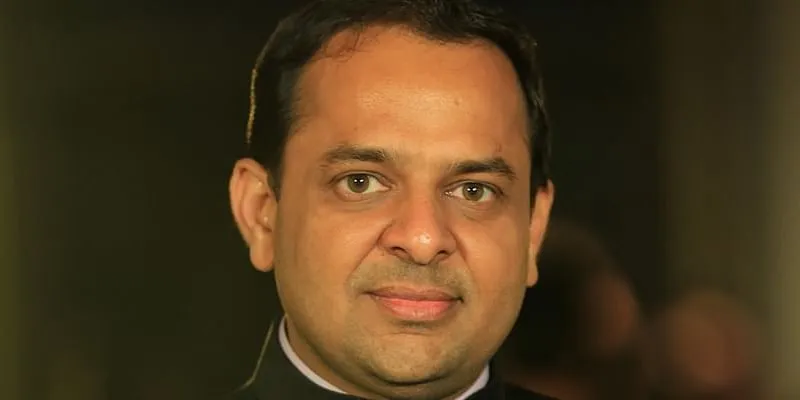
Praveen Agarwal, Co-Head India, OakNorth
We believe that the major theme for this budget will primarily revolve around technology as an enabler to various sectors and facilitate adequate funding alternatives to MSMEs. There will also be a high focus on the creation of employment opportunities for the younger segment, through fostering an environment of innovation in the startup space. The current system requires an extensive focus on digitisation, awareness, and education on technology, including Artificial Intelligence and Machine Learning, across the board.
Furthermore, we expect that this budget will introduce policies aimed at ensuring higher funding to non-banking financial companies (NBFCs) and fintechs, the easing of regulatory and compliance restrictions in the initial stages of operation, the efficient management and monetisation of non-performing assets (NPAs), as well as the safeguarding of effective partnerships and collaborations across the formal and informal lending space. The 2021 budget needs to be growth-oriented, incentivizing new investments, reviving consumer spending, and hopefully, no new taxes.
Zero MDR, fintech evolution, and more - Madhusudanan R, Co-founder, YAP
- The big-budget expectation from the fintech sector is for partial or a full reversal of Zero MDR on a certain type of payment products and allow the market forces to determine the extent of fees to be levied on merchants.
- From lending to SME/MSME to promoting the rapid evolution of fintech companies operating in this space, the government should look to provide additional relief in the form of both, interest subvention under PSL coupled with tax rebates.
- Policy direction on easing of cross-border payments for savings and investments from the current FEMA framework will also significantly help fintech companies operating in the space.
- Budget’21 should also provide policy direction on cryptocurrency assets to enable regulatory palatability and allow controlled rollout to market, test, and evolve.
Make internet infrastructure robust - Ashutosh Kumar, CEO and Co-founder, Testbook.com

Ashutosh Kumar, CEO and Co-founder, Testbook.com
It will be highly beneficial if the Budget makes provision for the government to collaborate with edtech startups to bring the latest technology solutions to academic institutions at primary, secondary, and tertiary levels. Currently, the capital investment incurred by edtech startups to create and sustain technological infrastructure is very high as compared to the limited cash flow. If the government could reduce the GST from the current 18 percent to 5 percent, it will help small edtech startups sustain. Currently, there is no GST on books and 5 percent is charged on e-books.
The budget should focus on providing remote villages with robust internet infrastructure as online education has become the new normal and the same requires high internet bandwidth. Finally, the government should create more jobs in the public sector to accommodate the large pool of skilled unemployed as the private sector has been unable to create sufficient jobs due to the economic slowdown.
Opportunities for edtech startups - Ganesh Raju, CEO and Founder, Ken42
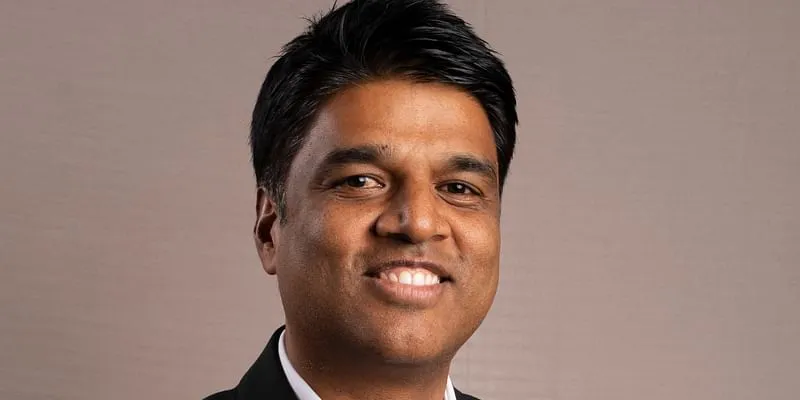
Ganesh Raju, CEO and Founder, Ken42
This budget will play an important role as the economy is quickly picking pace post-pandemic, and the edtech sector is witnessing newer and more innovative solutions. The need to prioritise education and equip the sector with emerging technology is now more important than ever. The focus of this budget should be on bridging the disparity in accessing the technological advancements by those in remote and rural areas, as well as those belonging to the weaker socio-economic segments so that digital learning can be made mainstream.
This coupled with the government's intent to spend close to 6 percent of GDP in the educational sector, will open up new opportunities for the emerging edtech startups. The companies in the edtech sector had stepped in to help educational institutions rise to the challenge and deliver during the pandemic. If the government is ready to provide exemptions in GST, it can facilitate greater and faster adoption of technology.
Innovation in the fintech sector - Seshadri Kulkarni, CEO, DigitSecure

Seshadri Kulkarni, CEO, DigitSecure
The fintech industry is looking forward to policies that balance societal concerns while encouraging and protecting innovation. The increased pace of technological change makes it challenging for the government and regulators to keep up, hence knee-jerk policies to address societal concerns in response to disruptive forces can stifle innovation, financial growth, and societal benefits.
The fintech sector also expects a reduction in GST for financial services. This will create a strong foundation for the entire ecosystem and benefit consumers by lowering the overall cost of such transactions. Eventually, the initiative would further accelerate the penetration of financial services and products.
The policies shall encourage and make it attractive for fintech companies and investors to develop new, secure, and safe, mobile- and app-based solutions and technologies that lower the cost for SMEs to accept digital payments.
Create robust Ayurveda ecosystem - Ram N Kumar, Founder, NirogStreet
As the Narendra Modi government gears up for Union Budget 2021, there is a dire need to focus on creating a robust Ayurveda ecosystem, make Ayurveda ‘Aatmanirbhar’, and make it mainstream. This is the right time for the government to allocate funds to create a robust ecosystem that supports world-class research, product development, and drug discovery in the Ayurvedic sector. A significant price drop in Ayurvedic and immunity boosting medicines can promote the consumption of natural and Ayurvedic products. This is only possible if GST is waived off for Ayurvedic medicines and products. We expect the upcoming Union Budget to focus on creating a unique ecosystem for tech-enabled startups which are reinventing and reimagining the ancient wisdom of Ayurveda to make it more acceptable and palatable for millennials.
India is the knowledge and talent hub for Ayurveda. There are over 4,00,000 Ayurveda practitioners in India, and over 350 Ayurveda medical colleges producing over 20,000 medical graduates every year. The education budget must specifically address the gaps and nurture Ayurveda practitioners and scholars backed by modern research, drug discovery, and evidence-based medicine knowledge.
Increase share of education’s expenditure - Divya Lal, Founder and Managing Director, Fliplearn
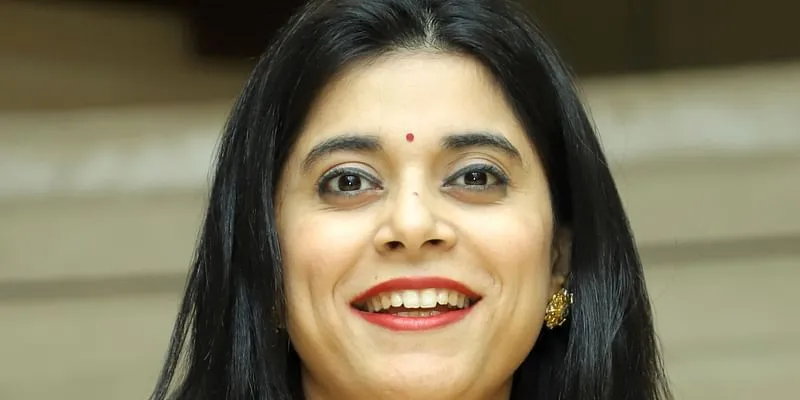
Divya Lal, Founder and Managing Director, Fliplearn
The pandemic has shown the transformative power of edtech. The edtech industry will need higher digital infrastructure and robust knowledge protection framework to build on the in-roads it has already made in COVID-19 times. Education's share of expenditure, which has seen some incremental increase over the years, needs to now see a substantial jump so that the opportunity for the spread of technology-led education across the length and breadth of India is not lost. As a future superpower, we need to ensure inclusiveness, and enhance the standard of education – and edtech can ensure that.
The government should allocate suitable funds in the Union Budget 2021 to assist the edtech sector in building strong digital infrastructure across the country, including the remote areas.
Inclusive innovation - Anupam Jalote, CEO, iCreate

Anupam Jalote, CEO, iCreate
The need of the hour is to reignite our manufacturing and industrial prowess. Although digitalisation (India's area of strength) will catalyse the growth trajectory, the brick and mortar businesses will provide a very strong thrust to the growth engine.
In this budget, a signal of inclusivity to global companies and innovators will be very helpful in driving this change – a signal that foreign innovators/innovative companies are welcome to come to India and earn handsomely, provided they come with the very latest in innovative
technologies and establish knowledge bases in India.
The government has done sterling work in supporting startups – and now, it needs to accelerate innovation. This budget can help by modulating the treatment to resources spent on developing innovations and commercialising them. Being flexible on FDI as well as taxation of gains from the commercialisation of innovation will be a big help.
Startups and incubators together play a crucial role in retaining capital and keeping the economy healthy. The need to protect the sector from unexpected catastrophes like COVID-19 has become even more crucial as India gears up to become Aatmanirbhar in all means. We are looking forward to some creative measures to be initiated by the government to retain and nourish the immense talent pool that India currently houses when it comes to innovation and entrepreneurship.
Focus on employee safety - Kavin Kumar Kandasamy, CEO and Founder, MY
The traditional economy is now changing rapidly, and there is a paradigm shift to new-age thinking and employee welfare to create a breakdown free world. It is imperative that the budget focuses more on employee safety and wellness as well as provides incentives to companies to implement the same. This will ensure a quicker return to workplaces and bounce back of the Indian economy. Startups working in this space should be provided tax breaks and seed funding to bring new-age technology that prevents another breakdown.
Provide relief to SMEs - Satya Prabhakar, CEO and Founder, Sulekha.com
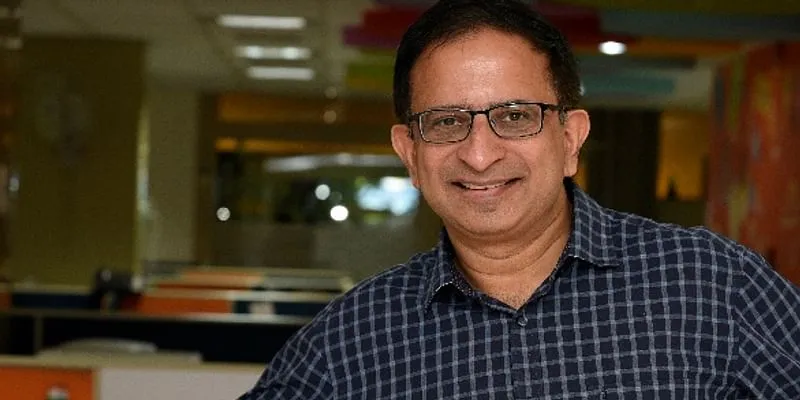
Satya Prabhakar, CEO and Founder, Sulekha.com
The COVID-19 pandemic dealt its most lethal and devastating blow on service sector SMEs which were locked out of work for several months and had to face a sharp decline in business even after the lockdown was lifted. The government, taking into consideration that the service sector SME has become the backbone of our economy, must provide relief to this sector in the form of fast-approval guarantee-free loans and allow them GST-free spending for their marketing to start building their business back up.
Create Open Digital Ecosystems - Roopa Kudva, Managing Director, Omidyar Network India

Roopa Kudva, Managing Director, Omidyar Network
We hope to see the upcoming budget prioritise building robust and responsible digital infrastructure, especially in sectors like health and education, where physical systems have been under a lot of pressure during the pandemic. We have seen commendable efforts to create Open Digital Ecosystems (ODEs) in these sectors, through the National Digital Health Mission, and the DIKSHA platform. ODEs can improve service delivery by enabling transparency, interoperability, and spurring innovation.
Similar to how UPI brought about a paradigm shift in the way financial services are delivered and facilitated financial inclusion, digital ecosystems for health and education can ensure that every Indian has access to affordable and quality healthcare and education opportunities. Using the ODE approach, the government can further strengthen digital benefit transfer mechanisms, as many more households rely on these social safety nets in the wake of the economic shock caused by the pandemic. In particular, the budget should ensure that funding is allocated not only for building the technology infrastructure, but also the critical non-tech layers of these Open Digital Ecosystems, such as putting in place accountable institutions with the right capacity, governance frameworks to safeguard citizens’ rights, and community engagement.
Regain business confidence - Kunal Varma, CBO and Co-founder, MoneyTap

Kunal Varma, CBO and Co-founder,MoneyTap
With the COVID-19 pandemic causing a large pause in the global economy, Budget 2021-22 hopes to regain business confidence.
With citizens’ incomes being drastically affected, tax relief would be a welcome move this year. An increase in the limit for tax deductions under Section 80(C) would be good. Considering inflation in the recent past, the previous limits are no longer relevant. This will boost spending or ability to invest, which the economy needs right now. The focus should be to first support existing businesses and additionally encourage entry by newer enterprises into these industries.
Retail investors could do with indexation benefits, along with some actual relief in the capital gains tax structure, which is long due, particularly for long-term capital gains taxes. This could be done by either reducing the threshold holding period for long-term capital gains, computations, or eliminating the minimum holding period requirement.
We hope for continued ease of borrowing for our customers, with a focus on policies around enhanced digital-KYC measures for credible borrowers who are borrowing for amounts below a certain threshold. All things considered, we hope to see a balance of inflation control and growth from this budget, both of which are needed to kickstart the post-pandemic economy.
Invest in electric vehicles - Greg Moran, CEO, and Co-founder, Zoomcar

Greg Moran, Co-founder and CEO, Zoomcar
The economy is on the road to recovery and the Union Budget 2021-2022 will be crucial for the auto sector as it can facilitate the industry’s effective revival. We are confident that with the right policies and support, the sector is poised for growth. One of the key areas for both the government as well as the auto sector is electric mobility. With several Indian and international groups keen to invest in the Electric Vehicle (EV) segment, the government should focus on bolstering the infrastructure to enable easy manufacturing, and the usage of EVs and EV-related elements such as charging kiosks to boost demand.
With regards to technology, we are in the midst of one of the biggest tech-led transitions in India and the world and we expect that this year’s Union Budget will focus more on tech-led developments in the auto sector. It presents the perfect opportunity for the industry to capitalise on and boost growth.
Need infrastructural investment - Tamanjit Bindra, Co-founder, Kaagaz Scanner
In the budget, would like to see more concrete steps on infrastructural investments around ease of doing business, clean-tech and connectivity. Connectivity – especially in Tier II and III cities has a massive scope of improvement, now that most startups have started remote operations, and most people have moved back to their hometowns.
Build a secure Digital India - Saket Modi, Co-founder and CEO, Lucideus

Lucideus Technologies’s CEO and co-founder Saket Modi
The year 2020 has been an unprecedented year and we expect the government to focus on accelerating economic growth, which has been muted due to the impact of the novel coronavirus in the Union Budget 2021-22. One of the key imperatives that will help to accelerate our growth is continued investments in healthcare, education, infrastructure, technology, and ensuring that businesses are prepared to deal with the growing sophistication of cyber attacks.
We expect the government to continue its focus on building a secure Digital India, and most importantly, bring policies that will help businesses better manage their cyber risk in the digital era. Further, we urge the government to standardise the way businesses measure their cyber risk posture through Dynamic Digital Business Risk Quantification platforms that should be accepted by the government, regulators, boards of companies, customers, and all other stakeholders in the business ecosystem. Cybersecurity should not be measured through point-in-time audits, but through continuous, and objective risk quantification models.
Promote India-specific solutions - Anuragi Raman, Co-founder and CEO, CollegeDoors
Tech-enabled education is no more an innovation. It's a necessity. To fast track the growth of a strong local ecosystem of India-specific solutions for Atmanirbhar Bharat, the government should support local startups in this field with direct grants and tax exemptions for the next two or three years.
Revive medical tourism - Danish Ahmed, CEO, Hospals
The travel and tourism sector has been badly hit by the COVID-19 pandemic, and medical travel is the surest way to take this worst-hit sector on the recovery path. Millions of people in Asia and Africa consider India as the healthcare centre of the world. Thousands of patients have applied for visas, despite COVID-19, and are waiting for flight volumes to increase. These patients contribute to revenues of hospitals, hotels, pharmacies, restaurants, airlines, taxis, and indirectly provide employment to over two lakh people. We hope the Budget will allocate significant funds to promote medical tourism to India for allopathic and AYUSH-related treatments. Governments in Turkey, UAE, Korea and Malaysia are spending millions to develop their medical tourism sector, and give tough competition to India. We hope the India government will earmark a fund of Rs 1000 crore for investment and promotion of medical travel companies and medical value travel startups across India, enabling them to go out and attract foreign patients to India.
Encourage new trends in the auto sector - Tarun Lawadia, Founder and CEO, PumPumPum
The auto industry has always been a key contributor to India’s economic growth and job creation. We expect the upcoming Union Budget to be a game-changer for all the sectors, but especially for the worst-hit auto sector. Relief in direct and indirect taxation, reduction of GST rates on vehicles, enhancing the disposable income of the salaried class, further incentives to make the auto manufacturing Atmanirbhar, incentivising EV manufacturing along with various policy-level initiatives can spur consumer demand and motivate the sector to drive faster on the road to recovery. Steps to curb rising raw material and fuel prices will aid both vehicle manufacturers and auto component makers in the long-term. In addition, the Budget should encourage the startup ecosystem for new consumer trends such as used car leasing, car rental, car subscription models etc. which are going to be the promising industries of the future and can boost the growth of the Indian auto sector. As the pandemic has pushed the need for personal mobility, a huge population of first-time vehicle buyers can be attracted by making cars cheaper by temporarily reducing the GST rate to 18 percent from the existing 28 percent and reducing the compensation cess rates. The government’s recent announcements on the promotion of EVs in India, especially for government use and public transport, is encouraging. The need of the hour is to put right policies, incentives, and charging infrastructure in place so as to introduce more and more EVs on the road.
Incentivise the edtech sector - Sparsh Garg, Founder and CEO, Educlouds
According to a KPMG estimate, the number of edtech startups in the country grew to 3,500 in the previous year. As per government projections, India’s edtech expenditure could rise to $10 trillion by 2030. The ‘everything virtual’ norm set by the pandemic has ushered a new era of edtech growth and online education in India. Penetrating deeper into urban and rural India, these unique tech-enabled platforms are consistently shaping the future of education in India. To bridge the digital divide and strengthen India’s promising edtech startup ecosystem, we expect the government to provide better internet infrastructure, robust data protection systems and more tax exemptions in the upcoming Union Budget. By ensuring round-the-clock reliability of electricity supply, accessible and affordable high-speed internet, deeper penetration of cheaper connectivity devices such as notebooks, laptops, smartphones etc. to every nook and corner of the country, the government can support India in becoming a global hub for digital education. By creating a unique ecosystem combining traditional and online learning, the government can take Indian education system to newer heights. By incentivising the edtech sector, Union Budget can strengthen its roadmap of offering quality education accessible to all through simple and affordable tech innovations. 100 percent FDI in the inventory-based model will encourage capital for RandD investing disrupting new tech platforms for parents, students, teachers and educators. Considering the huge contribution of the edtech sector in assuring accessible and affordable education amid the pandemic, the existing 18 percent GST slab for the edtech sector can be further reduced to make quality digital education a reality for every Indian student.
Extend credit facilities to MSMEs - Amit Gupta, CEO and Founder at Rapyder
The unprecedented COVID-19 pandemic has, without a doubt, adversely impacted the world economy at large. Almost every industry has borne the brunt, and MSMEs are severely affected with many closing down, probably permanently. However, IT and ITeS sectors have seen a spike in growth across some industry verticals in the wake of the pandemic. Sectors such as edtech, fintech, healthtech, HRtech, amongst others, have seen significant boosts. This will continue to fuel growth of cloud-tech, AI-based and other new-age technologies across business domains.
Knowing well that MSMEs are the biggest growth drivers to the economy and the second-largest sector after agriculture, government should extend credit facilities for them and provide means for new-age technology adoption. Rigid regulatory compliance and tax burdens should be revised, which can provide an impetus for growth and expansion. This will increase hiring and businesses can largely contribute to the GDP. Revised tax policies, less complex GST structure and relevant policies that provide thrust for digital innovation can incentivize home-grown startups and brands. Such a solution can help MSMEs to operate in a more level-playing field which has MNCs and other established players.
Ease retailers' access to capital - Pronam Chatterjee CEO, BluePi Consulting Pvt. Ltd.
The retail industry came to a virtual standstill during the pandemic, and was one of the worst-hit sectors. The cascading effects impacted the entire value chain that serves the industry. The festive season has shown signs of recovery with major retailers recuperating around 90 percent of pre-COVID-19 sales. But the recovery is still nascent and not strong enough to carry on without support. A few things that we expect from the Budget are measures to improve the disposable income in the short term, by reducing the tax burden and thereby spurring demand. The supply side of the value chain also needs to be supported by easing retailers' access to capital.
Ease of doing business and access to capital should be the focus area for the retail sector in this Budget. MSME does not cover the retail trading that constitutes a bulk of the retailers if they are not manufacturing. On the other hand, garment manufacturers are considered MSME, but without a special package that assists them with working capital, they would also be left high and dry. So we expect the government to broaden the MSME umbrella and announce special packages for retailers under MSME so that they can tide over these challenging times."
Prioritise homegrown brands - Gaurav Mehta, Founder and CEO, Jaipur Watch Company
As an entrepreneur, I hope this year's Budget prioritises growth-oriented measures and includes incentives for homegrown brands. From a watch industry perspective, considering the hit that we've all taken following the pandemic, tax concessions, reduction in GST rates encouraging consumers to spend more is of utmost priority at the moment. Especially since the demand for bespoke gold watches are at an all-time low, what with gold prices soaring, we are looking forward to the Budget addressing the issues of high Import/Custom duties on gold and thus helping bring stability to the market. Also we are hoping the government comes up with a special mark for "Made in India" products to distinguish them from imported products.
Reforms for the real estate sector - Anand Shukla, Managing Director, Ocean Infraheights Pvt. Ltd. (Golden I)
This pandemic has wreaked havoc on the real-estate sector too! Considering that real-estate is the second-largest job creating sector in the country, we are hoping that the government looks at doing something concrete for the sector, keeping customer sentiments in mind. Especially from a commercial real-estate perspective, we are looking forward to reforms and incentives that provide encouragement to the manufacturing, startup sectors, etc., and offer interest or capital subsidies on systems and equipments for all players looking to invest in technology, sustainable building and digitisation of operations.
Furthermore, we hope that the central and state governments can work together and take a look at reducing GST, stamp duty and circle rates.
Protect consumer interest - Jitandra Singh, Co-founder and CEO, eJOHRI
As part of the gem and jewellery industry, we expect reduction in customs duty on gold to percent, and cut in import duty on polished precious and semi-precious gemstones, in the upcoming Union Budget 2021-22. Though it has now become mandatory for all jewellers to hallmark gold jewellery, the government still needs to address issues for smooth implementation of mandatory gold hallmarking. We also would like the government to protect the consumer interest by providing them with a uniform gold rate across the nation.
The year 2020 has also set the base for digital transformation and innovations, and 2021 policies must work towards scaling them, increasing digital inclusion in the remotest corners of the country.
Develop FMCG infrastructure - Shrey Kumar, Co-founder, Aadvik Foods
I think we should spend more on creating awareness about why preventive healthcare is important, more so with the ongoing pandemic. Food as a medicine should be promoted as much as possible. Benefits of making positive changes in your diet should be advertised. This cannot be achieved without a nationwide program of educating the masses. Developing better infrastructure for the FMCG industry will enhance the availability of these kind of healthy and fresh food items.
Ban non-biodegradable packaging - Ved Krishna, Vice-Chairman, Yash Pakka Ltd
Our Prime Minister has clarified his intent to make the country single-use plastic-free. The same needs to be put into action. There need to be effective bans on non-biodegradable packaging and impetus for compostable packaging. Funding needs to be provided for the development of alternates and taxation needs to be aligned for promotion of the same.
Favourable environment for ecommerce - Shabna Salam, Founder and Director, Pune-based Maneraa
This being the first Budget post COVID-19, we are hoping our government will create more startup-friendly measures to revive the economy, measures like incentives for homegrown brands. Also we hope that the government shall implement a holistic policy with a regulatory body that oversees the implementation of a favorable environment for the ecommerce sector to sustain and flourish. There should be more clarity on policy guidelines pertaining to ecommerce. We are also sure that this year’s Budget will address the low consumer spending and simplify GST for ecommerce vendors to support small vendors.
Focus on clean power - Harshit Poddar, Co-founder, Ranchi-based SafEarth Clean Technologies
After the renewable energy space reached a stage of prominence by 2019, the year 2020 has been a terrible year for the renewable energy industry in India. It was a year driven by coronavirus, a shortage of key components, and policies that hampered the industry. However, it also showed us what is needed to be done in order to make India a global leader in renewable energy. First, we need strong government support to boost domestic manufacturing of critical components of the solar industry such as Solar Panels. Heavy dependence on China has cost the industry dearly over the last few years. This will not only create safe, high-paying jobs in the long run but will also create large tax and export revenues for the country. Next, we need structural reforms in our distribution companies (DISCOMs). The Ayush sheme has produced mixed results and the financial stress of our DISCOMS continue to be high. There is an immediate need for the re-structuring of the Distribution companies around India with a focus on restructuring their pricing schemes. If this re-structuring is done, then the country can create financially strong Distribution companies and develop better infrastructure over the long run. Lastly, to boost ground level adoption of clean power, the consumers require financing support from their financial institutions. Although solar is a priority sector lending, most banks and NBFCs have been slow and ineffective to lend for solar projects. We hope that. the Budget would create incentives for them to prioritise lending for solar projects to consumers.
Support telemedicine - Ayush Mishra, CEO and Founder, Tattvan E-clinics
Over the last few months, millions of people have relied on video or telephone calls to talk to their medical professionals and doctors for discussing their medical issues. We believe that telemedicine will continue to exist and expect that in the post-pandemic era, around 40-50 percent of their OPD will continue to be conducted through teleconsultation together with other innovations in the industry including AI, ML, Tele-mobile operator services, etc. Telemedicine has not only helped people during COVID-19 but for the people especially the elderly who are more prone to any kind of infection tele-consultation has emerged as a boon, and follow up consultations through tele-consultations will be a great step towards geriatric care as well. Tattvan itself did a huge telemedicine camp during lockdown for geriatric care in a senior living project at 5 different locations of Rajasthan, Haryana, Maharashtra and Karnataka and it was a huge success, so we have realised that the telemedicine sector will definitely be here to stay. The Union Budget 2021 will be tabled in just over a month’s time and the health sector is expecting more specific allotments in this year’s Budget to mitigate COVID-19 and growth of the telemedicine sector. The government should also support startups and private players in this segment to increase the current coverage of the locations including Tier-II and Tier-III cities to provide the advanced healthcare facilities in these areas.
Digitise MSMEs - Rajesh Gupta, Co-founder and Director, Busy Accounting Software
In the upcoming Budget, the government should factor in a GST rate cut for the MSME sector and also extend some incentives for filing GST returns timely. Even the process of providing GST refunds should be improved as this has a direct bearing on the working capital available with MSMEs. The ongoing pandemic has made digitisation imperative at each stage of the business cycle at large. Similarly, MSMEs were pushed to adopt digital technology for their operations owing to the repercussions of COVID-19. For instance, accounting software changed the method of traditional accounting, enabling accountants to move to digital accounting methods. Technology is definitely the enabler that can place Indian SMEs ahead of the curve. The government can introduce strict compliance rules regarding the digitisation of accounts, processes, deliveries and trade, to encourage further transparency. BUSY has also witnessed significant growth in the demand of accounting software in Tier-II and III cities, so at the grassroots level, a large section of the population needs to understand digitalization and require basic upskilling to meet the demands for skilled professionals in upcoming fields like big data and machine learning. Introducing digital lending can enable small-sized businesses to be financially sufficient as they will get easy access to loans. The Union Budget is likely to be a turning point for the SMEs, if the government fulfils these expectations.
Offer exemptions to SMEs - Rajiv Kumar, Founder and CEO, StoreHippo
This has been an unprecedented year for businesses as well as humankind. So, we expect the government to focus on helping businesses cope with the challenges and effects of the pandemic. Since offline businesses are hit badly and every business owner is planning to go online, we expect the policies that make it easy for businesses to go online and manage their online store and marketplaces. Not all businesses have resources to meet the tedious compliance requirements like GST or going with the paperwork needed for starting an online venture.
The government should ease rules and also offer support/exemptions to small and medium businesses from certain mandatory compliances. Overall the Budget needs to facilitate easy access to capital to businesses that are reeling from after-effects of COVID-19. Apart from this, there should be some relief for businesses that have suffered significant losses during the lockdown and thereafter.
Build digital health infrastructure - Anmol Arora, CEO, Docvita
During the pandemic, telemedicine helped countless people in India seek timely care and ensured the continuity of care for many under lockdown. Besides, telemedicine has long been viewed as India's solution to bridge the rural-urban mismatch in demand and supply of healthcare services. The lockdown helped telemedicine demonstrate its potential for impact, growth and expansion.
There's no better time for the government to give the industry impetus to bridge the gap between healthcare accessibility and affordability. The post-pandemic Budget is expected to keep health as a top-notch priority. Increased allocations in the Union Budget 2021 for telemedicine and NDHM can benefit our healthcare infrastructure and build a strong backbone for our country's digital health infrastructure. Telemedicine can help address inequity and lack of healthcare access and make healthcare expenditures more predictable for all Indians.
Mobilise funding for startups - Vikram Wadhawan, Founder and CEO, Vasitum
With the upcoming Union Budget, we are looking forward to the government’s decision to elevate the startup ecosystem including the MSMEs, which are one of the biggest growth drivers of the economy. One of the major problematic areas for them is the availability of working capital. Thus, a framework which can mobilise funding for startups and MSMEs will be a great initiative and will drive serious growth for both the sectors. In addition, we are anticipating the government to focus on extending credit facilities to MSMEs by re-leveling the banking and NBFCs to the same ground to ensure consumers get benefited.
Furthermore, we are also confident that an easy to maintain compliance agenda will provide the required impetus to various startups to stick to their homeland. We are also expecting the government to introduce new policy incentives that will accelerate the business growth of startups and MSMEs; thereby helping them to expand, hire resources, generate employment opportunities and contribute to the GDP.
In short, we feel a stronger and simpler framework for startups and credit/grants to the MSMEs should form a part of the Union Budget along with other usual announcements.
Facilitate quick financing - Satya Yerramsetti, Founder and CEO, Telebu
The Indian economy is reeling from the ramifications of the COVID-19 pandemic, which is still far from being over. Amidst this, we have our eyes pinned on the forthcoming Union Budget. We expect the government to take proactive steps towards introducing schemes that promote the ease of doing businesses and allow easy access to working capital. Additionally, creating the right environment to boost the startup and MSME ecosystem and facilitating quick finances for this segment should be a priority. Indigenous schemes promoting newer technologies like Artificial Intelligence and Machine Learning should be initiated. Adopting measures for data and information security, devising privacy control framework and guidelines in India and increased access to net connectivity in rural areas should also be some areas of focus to fill crucial gaps in the tech space.
Furthermore, we are also hoping the government to invest in infrastructure policies in both rural and urban areas that will boost employment opportunities in the country.”
Modernise the agriculture sector - Sanjeev Gupta, MD, Kanchan Metals
Our nation ranks second in food production and first, in milk and spice production globally. Consequently, there has always been an undeniable domestic demand in its supplies indicating great opportunities for the food processing industry. The food processing machinery sector has humongous potential too that must be recognised as a major part of the food processing industry. The food processing machinery industry refers to processing systems and machines extensively used for the commercial production of baked goods, meat, salty snacks, drinks, dairy products etc. This sector must receive equivalent status to the food processing industry and strong government policies should be even applied to it. Financing must be provided at a reduced cost and linked to equivalent terms applicable to the agricultural and farm sector. It will aid the food processing machinery sector directly by offering automation which increases efficiencies further reducing wastes. Every database of Indian manufacturers must be aggressively marketed in the global market by government agencies and foreign missions to invite collaborations with technology transfer. It can be a boon to reduce imports and offer world-class technology by manufacturing in India.
Boost the startup ecosystem - Amol Roy - Founder, Shutter Cast
The Indian economy is reeling from the ramifications of the COVID-19 pandemic, which is still far from being over. It will be a feat to overcome the impact of the current slowdown and technology is expected to play a huge role in the recovery and revival process. Hence, we have our hopes pinned on the Union Budget 2021 wherein we expect the government to make significant investments in the latest tools and technologies. Creating the right environment to boost the startup ecosystem, adopting measures for cyber and information security, higher internet penetration to push companies in Tier-II and III cities, and increased access to net connectivity in rural areas should be some areas of focus to fill crucial gaps in the tech space.
Extend FAME II scheme - Rajat Verma, Founder, Lohum

Rajat Verma, Founder, Lohum
We believe import substitution is critical if we want e-mobility to be sustainable. Over 5-10 billion dollars can be saved if we produce raw material from recycling. The government should adopt fiscal policies that encourage recycling. Further, we see gaps in the battery ecosystem which is one of the costliest components of EV. Lithium-Ion Batteries need to have a five percent GST regime to normalise them with EVs. Finally, we absolutely appreciate the government's execution of FAME II (Faster Adoption and Manufacturing of Hybrid and Electric Vehicles). Subsidies are helping the ecosystem considerably and we would want the government to extend this scheme to 2025.
Review ESOP precodsitions for startups - Ankit Prasad, Founder and CEO, Bobble AI

Ankit Prasad, Founder and CEO, Bobble AI
India’s startup industry has a crucial role to play in 2021 as the economy recovers and businesses return to pre-pandemic levels. The primary expectation is to provide more tax incentives to startups in the forthcoming Budget to support their growth trajectory. It is equally crucial to revisit taxations on ESOPs given by startups. They are extremely beneficial for most players who have limited financial resources and want to attract the best available talent in the industry. They also give a great sense of ownership and entrepreneurship. At present, startup employees are required to pay tax whenever they sign up for ESOPs with a vesting schedule and also pay taxes on capital gains whenever they redeem their ESOPs. Budget 2020, however, deferred TDS requirement for such ESOPs share allotment for registered startups.
This deferment also has two preconditions which has to be made more attractive. First, it is primarily limited to a five year period. Most startups, irrespective of the sector they operate in, typically take more than five years to list themselves in the stock exchange and become a listed company or carry out an exit or sell-out. Second, it does not apply to an employee who is exiting a company as an employee. So, a person who has already spent several years in a company and wishes to move on, his ESOPs earned during employment will not be eligible for deferment of taxes. In crux, I would urge the government to review these preconditions to support the startup industry at large.
Make investments tax-free - Gautam Das, Co-founder and CEO, Oorjan Cleantech Private Limited
Entrepreneurs add value to consumers and create jobs while solving problems. They take risks and are pioneers in introducing new technologies, set trends and push the boundary.
The ease of doing business is crucial, especially for startups. There have been many pro-business announcements by the government but implementation has been a challenge. Transparent and time-bound implementation is key. Entrepreneurs run on lean resources and access to low-cost financing and/or equity investment would be of help. Suggest the government should make an investment in startups up to a certain amount tax-free as the investor takes risks on new business.
I run a renewable energy business. Economic growth has to go hand in hand with environmental sustainability. Traditional sources of electricity cause irreversible damage to our environment. Renewable energy is the solution - it is commercially viable and environmentally responsible. Distributed solar policies and incentives should be pro-consumer. To ensure hassle free adoption of alternative energy, we expect the government to facilitate access to low cost financing and implement transparency in policies. Net-metering in distributed solar should be immediately allowed to encourage widespread adoption of green energy. Charges pertaining to open access projects need to be rationalised and the approval process streamlined for easier implementation.
Make digital education accessible - Charu Noheria, Co-founder and COO, Practically

Charu Noheria, Co-founder and CEO, Practically
Though the edtech industry was witnessing consistent growth over the last few years, the pandemic has propelled the growth many times over. Given that there has been significant surge in e-learning, government must support us by allocating sufficient funds and devise strategies to make digital education accessible by ensuring availability of internet connectivity, laptops, tablets, smartphones etc. either thought direct government programs or through Public Private Partnership (PPP) model. The new National Education Policy (NEP 2020) will provide the impetus required for upgradation of school infrastructure with state-of-art technology and will help to meet the demands of jobs in the future.
To perceive India as one of the most preferred higher education destinations in the world, the government should also focus on reskilling of education fraternity to equip them use new age e-learning solutions as well as providing tax benefits to schools and teachers who invest in such solutions.
Promote indigenous art - Nengneithem Hengna, Founder of Runway Nagaland, GIZ Project Her&Now entrepreneur
It would be great to see the upcoming Budget focus on allocating more funding to women-led businesses that are promoting and preserving indigenous art and craft, that create direct employment and build resilience amongst local communities.
Boost the economy - Akshay Singhal, Founder, Log 9 materials
I think for startups there are already a lot of initiatives in action, improved mechanisms for the execution of those schemes is extremely important. However, I am more concerned about the economy as a whole. To boost the economy, I suggest increasing the spending under Swachh Bharat Scheme, may be via MNREGA, to get Indian cities clean by employing the bottom of the pyramid.
Reduce compliance burden on startups - Roma Priya, Founder - Burgeon Law

Roma Priya, Founder, Burgeon
The Budget should look at reducing the compliance burden on startups to allow ease and simplification of operations. Indian startups are now competing globally and need to be flexible. The rigorous filings and scrutiny of cross-border transactions can be eliminated by introducing certain reporting standards.
Offshore investment plays a big role in the empowerment of India's startup ecosystem, and there has to be a push to increase the inflow of foreign investments. The Budget should aim at bringing uniformity to the policies which allow for an easy flow of capital and an increase in FDI. As the investment sector recovers, we can also expect a rise in the employment levels across India.
The relaxation of the tax rules surrounding startup valuations and funding can be very helpful for a lot of sectors. The MSMEs who have been badly hit by the pandemic could use a year of tax-holiday and reduced interest rates to recover. The government should consider simplifying the GST to further boost the local manufacturing units and export sector.
There is also a requirement for ESOPs not to be taxed unless they are used, which means that the employees would not be obligated to pay taxes without getting direct cash inflows. This has been an issue with the ESOPs of unlisted companies as their shares do not have an available market for resale.
Simplify GST - Dipali Mathur Dayal, Co-founder and CEO of Super Smelly

Dipali Mathur, Cofounder, Super Smelly
There are some basic expectations from the upcoming Union Budget for 2021, especially in these pandemic stricken times. The year 2020 was tough and a good, strong Budget will come as a relief. We hope it is consumption-friendly, leaving more money in the hands of people to catalyse demand in the economy. Moreover, for startups, we look forward to the simplification of GST and tax relaxation in ESOPs.
MSME and startups would need government support to revive businesses and to continue to generate employment therefore easy and cheaper access to the credit would certainly bring relief.
The personal care sector, in particular, needs steady Budgetary support. There is a nationwide movement to transcend from large-scale toxin-based products from international brands to natural, homegrown, and toxin-free brands. Therefore it is important to emphasize the importance of Make In India and vocal for local to strengthen the country’s economy.
Invest in Ayurveda - Vishal Kaushik, Co-founder and MD at Upakarma Ayurveda
During the pandemic, PM Modi has given the much-needed push to the domestic Ayurveda sector as he encouraged the world-class RandD enablement and manufacturing capabilities of India.
The healthcare sector is looking forward to more promising announcements from Budget 2021. We are expecting the GST to be brought down from the current 12 percent which is levied on products that have the license to sell as branded Ayurvedic medicines. This will further help with cost reduction and easy accessibility of the product. The government can also look at providing funds for Ayurvedic practitioners and centers, which will further encourage the domestic and offshore investors to put faith in India for new product developments.
Regulatory changes for BFSI - Lalit Mehta, Co-founder and CEO, Decimal Technologies
The lockdown brought with it an economic downturn for enterprises of all sizes, which urged the government to offer loan moratorium to borrowers amidst a liquidity crunch. While this helped kick-start the economy, the government must introduce a long-term stimulus in its upcoming Budget to ensure cash-flow for the BFSI industry. In the post-COVID19 economy, credit is going to be the enabler of businesses, we expect the government to introduce credit schemes that will provide a fillip to the sector. Schemes that would ensure continuous availability of credit as and when needed will provide a great boost, especially to the lending industry. During the lockdown, borrowing, for both commercial and personal purposes, increased, facilitated by fintech players. We expect the government to announce necessary regulatory changes that would create an easy line of access for fintech players to secure credit from conservative banks and further disburse loans to borrowers.
COVID-19 catapulted India into a digital economy and the fintech startup ecosystem witnessed some high-value investments in 2020. While the PM has already announced a Rs 1,000 cr Startup India seed fund, the fintech startups can further benefit from the launch of a fund focused on equity capital requirements of startups in the lending space. This will help give steam to India’s $ 5-trillion GDP target by 2024 and fill the $380-billion MSME credit gap.”
Digitise the auto industry - Sandeep Aggarwal, Founder and CEO, Droom

Sandeep Aggarwal, Founder and CEO, Droom
The aftermath of the COVID-19 pandemic has not only accelerated the need for own vehicles but also pushed people towards online buying of even automobiles. No country has ever created economic growth unless it has given transportation freedom to its people. With that, we hope the Indian Budget 2021 continue to invest heavily in road infrastructure and don't criticize automobile for pollution because great road infrastructure will result in no pollution and no congestion on roads.
In India, only 5 percent of Indian households have a car, and 25 percent of Indian households have 2-wheeler vs 60 percent of households with cars in developed economies.
The auto industry expects relief from the Union Budget 2021-22 in the following multiple areas also -
· Demonetisation, GST, and confusion around EV and BSVI have really tempered automobile demand last several years. The government should aim to announce things in this Budget that can simplify the automobile industry including direct and indirect taxation, whether making it more complex.
· I really hope that government makes enough rules so that inter-state transfer of vehicles has a very low entry barrier and digitisation of extremely important industry for the economy.
All-in-all, the time is now ripe for the government to take initiatives to digitise the automobile industry.
Push towards skill development - Ahaan Aggarwal, Founder and CEO, Junoon.
In the last year, the COVID-19 outbreak in India impacted the blue-collar sector, and about 100 million blue-collar workers got displaced in the country. To sustain our economic growth, government should aim for a provision of the advancement of skill development and skill enhancement and more job opportunities so that we can bring this important segment of our society back to the mainstream, and I also hope that government can allocate some Budget for training these people with more digital resources so that they can be trained at scale and training is location agnostic. It will be great if the government can allocate resources for the digitisation of industry-relevant skill training to help people secure a better livelihood.”
Inject funding into health sector - Rohit Bhayana, Founder and Managing Partner, Lumis Partners

Rohit Bhayana, Founder and Managing Partner, Lumis Partners
The upcoming Budget’s focus will be on the health sector, in terms of expanding capacity; putting in place a more shock absorbent groundwork; injecting funding in biotech and pharmaceutical research and development, as well as bolstering recovery in other sectors, especially on improving infrastructure across the country.
I cannot stress enough on the need for senior care as a sector with appropriate regulations and standards, policy support, tax structures, insurance for ease of cover, and care at home.
In the supply chain, besides the PLI Scheme to remunerate the manufacturers, the government should simplify the GST mechanism in the interest of ease of doing business, particularly doing away with the anti-profiteering clause, which has outlived its purpose of a smoother transition. Although we believe automatic stabilizers should be the bedrock of consolidation, this year, the interplay of monetary and fiscal policy will set the ball rolling for the next five years.
Rights to gig workers - Sandeep Sinha, Founder and Managing Partner, Lumis Partners
On the human capital front, there is a need to strike a balance between flexibility and security. The government could push to offer certain employee rights to the gig workers, which secures them about their future. Promoting platforms which are in the business of offering such benefits to gig/contingent workers should also help.
Quick recovery for the food sector - Farman Beig, Founder and CEO, Wat-a-Burger
Due to the coronavirus outbreak, food and beverage industry has suffered a major blow. This particular sector employs a huge number of semi-skilled and under-skilled workforce, and the government should enable fast recovery. For a food service provider, it takes multiple licenses to establish a business and this procedure needs to be simplified. Secondly, the sector requires reintroduction of the inputs tax credit. Hence, the Budget is expected to provide the sector with smooth compliance, regulatory procedures and credit flow streams to accelerate the recovery.
Strong capital support for automobiles - Vivek Sharma, Founder and CEO, Fixcraft
The automobile industry has been suffering for quite some time. Due to COVID-19, the situation has become even more challenging. The upcoming budget is expected to address this long-standing situation. Also, for the startup community, it is imperative to maintain strong capital support. Investors have become very cautious about investing in the sector, hence a major fund allocation is required. There is also a need to ensure the ease of business at all levels.
Tax parity for startups - Neeraj Tyagi, Founder and CEO, We Founder Circle
The expectations and requirements of the startup ecosystem have been to include working capital crunch, tax parity on capital gains, etc. This time, the expectations are more due to the pandemic. After the COVID- 19 outbreak, startups are leading the technology adaptation across multiple sectors. This has further built an interest among corporates to invest in startups and technology-oriented projects.
Therefore, this is the right time for the government to incentivise the startup funding, and work towards relaxing the policies to encourage angel investors to invest more. Also, the government needs to push major fund allocation and also lower the GST, which currently has narrowed the scope of manoeuvring for startups.
Don’t overregulate cryptocurrencies - Kumar Gaurav, Founder and CEO, Cashaa
Co-operative societies and NBFC who financed most of the microloans should get a compensation package or liquidity for faster recovery of the economy.
As the Supreme Court has already removed the ban, the crypto industry will need some time to foster innovation in cryptocurrencies in India. At this stage, the only good thing which can be done to overcome the damage is to not over-regulate it.
Facilitate capital inflow - Kushang, CEO and Co-founder, SupplyNote
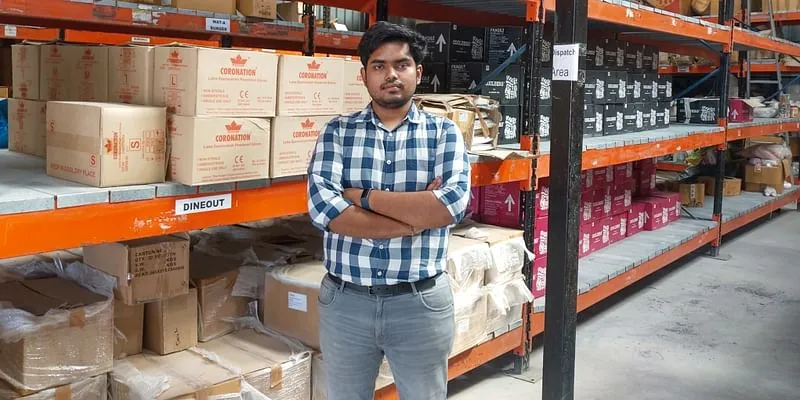
Kushang, CEO and Co-founder, SupplyNote
The startup ecosystem needs funds and capital now more than ever. The government needs to facilitate capital inflow from all possible channels. The budget should remove the corporate dividend distribution tax or levy DDT at a low rate to encourage foreign investors. Secondly, startups should be able to get easy loans at low-interest rates.
Spend on infrastructure - Prasoon Shrivastava, Founder and CEO, Zepth
India is committed to spending $1.4 trillion on infrastructure from 2019-23 for sustainable development. In line with this vision and poor economic growth, the government must enhance its spending on various infrastructure projects in transport, freight, railways, energy, etc. Also, PE funds should be encouraged to invest in infrastructure projects with better investor-friendly policies by the government.
Focus on growth-oriented measures - Rohit Kapoor, CEO, OYO - India and South Asia
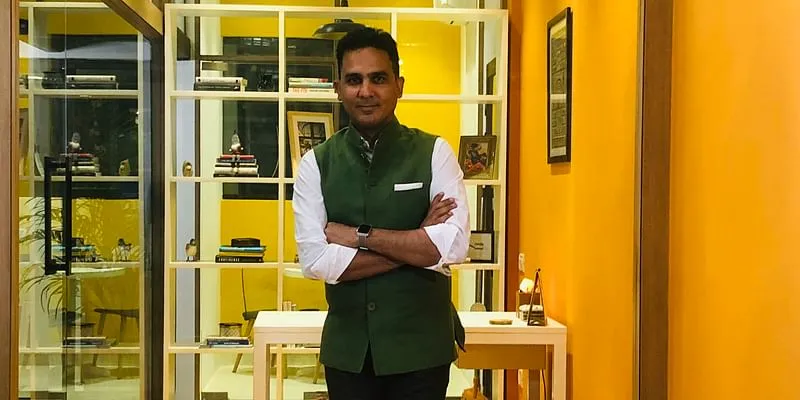
Rohit Kapoor, CEO, OYO - India and South Asia
This year’s Union Budget is expected to be truly reformative. As the entire country prepares for the upcoming budget, a focus on growth-oriented measures, economic reforms, and inclusive growth will be critical to bringing the COVID-battered economy back on track. With turbulent economic recovery trends, we expect further streamlining of regulations in the travel, tourism and hospitality industries to spur greater demand amongst domestic and international travellers for accommodations. We are hopeful for some financial support/stimulus package, rationalisation of taxes/uniform taxation, an extension of the moratorium period so that our small hotel partners can benefit from the required working capital to sustain these challenging times and thereby, meet their operational costs, retain jobs and boost domestic tourism – an integral contributor towards India’s robust revival story.
The government should continue to promote entrepreneurship to foster a culture of innovation using emerging technologies like making regulatory processes easier and offering incentives to those who set up their startups in remote towns.
Streamline the supply networks - Siddhant Wangdi, Founder, Meatigo.com.

Siddhant Wangdi, Founder, Meatigo.com
From the food startup sector perspective, we are expecting the government to simplify policies and help with streamlining of the supply networks. The government has always been generous towards our sector, however, considering the new innovative digital growth, we hope that our government extends additional support towards our industry in terms of investment, expansion, and transformation.
Extend tax benefits - Amit Agarwal, Co-founder and CEO, NoBroker.com

Amit Agarwal, CEO and Co-founder, NoBroker.com
The government has already extended the deadline for the PMAY’s Credit Linked Subsidy Scheme (CLSS) for the MIG category till March 2021. This subsidy can be further extended by another year till March 2022, not only because of COVID-19’s impact on the economy, but considering that the Economically Weaker Section (EWS) and the Lower-Income Group (LIG) have time till March 31, 2022, to avail the CLSS subsidy.
Apart from this, a tax holiday was provided by the government for affordable housing developers, under which 100 percent tax deduction under Section 80IBA was allowed until March 2021 for affordable housing projects. Both these tax benefits should be extended by another year to boost affordable housing.
The stamp duty cut in Maharashtra till March 2021 should be announced in key metro cities where the housing cost is high. This will further boost consumer confidence and help in reducing piled up inventories.
We also expect the government to announce tax rebates to mobilise homebuyers and investors as the Rs 2 lakh tax rebate on housing loan interest U/S 24 should at least be made to Rs 5 lakh to bolster demand in affordable and mid-level segments.
Last-mile credit access for businesses - Nityanand Sharma, Co-founder and CEO, Simpl

Nityanand Sharma, Co-founder and CEO, Simpl Technologies
We hope that this year’s Union budget will include provisions to support and strengthen the fintech ecosystem. Recently, there has been a widening scope of the RBI’s co-origination model, and now our Finance Minister is asking banks to use this model to collaborate with fintech companies and share lending risks equally. If this measure comes into effect, it’ll reflect a growing and necessary acceptance of the key role that fintech companies play in the world of banking and finance.
As a result, we anticipate that large, traditional banks and financial institutions will partner with fintech firms. These institutions will benefit from our new-generation digital lending technology expertise, and we, in turn, gain the advantage of solid structural backing and regulatory competencies that such large organisations provide. We also expect a concerted focus on increasing last-mile credit access for businesses, that will enable us to make a tremendous impact on end-users, just like UPI payments.
A key result of the pandemic was a huge upsurge in digital payments, leading to the need for quicker digital transformation through building relevant infrastructure and capabilities. Piecemeal solutions are not the answer, as they are not scalable in the long-term. So, with support from the government, fintech companies will play an important part in fast-tracking digitalisation comprehensively.
Ensure large-scale penetration of credit instruments - Ankit Gera, Co-founder, Junio

Ankit Gera, Co-founder, Junio
In the upcoming Union Budget, we hope that favourable policies are introduced to ensure large-scale penetration of credit instruments and spur demand in the economy by supporting consumption.
Further, we hope that the KYC formalities are relaxed since this comes as a huge challenge for fintech players in terms of their scalability. We also hope that there is a reduction in GST for the financial services industry to boost the entire ecosystem and transfer the benefit to consumers by lowering the overall transaction cost.
With the pandemic providing the necessary thrust to digital payments, there is an increased need for advancement of end-to-end infrastructural as fragmentary solutions may not sustain in the long run.
Debt fund for financial institutions - Sameer Aggarwal, Founder and CEO, RevFin

Sameer Aggarwal, Founder and CEO, RevFin
We expect the Budget for FY2022 to enable the EV industry to grow and become one of the largest contributors to the GDP. For the industry, the biggest challenges are access to credit and the cost of credit. Therefore, it is now time to make credit available in the market through budgetary intervention. To support this, a debt fund should be created at low-interest rates to provide to all financial institutions lending in the space and synergies to be created for public sector banks to collaborate with fintech platforms for delivery of loans for EVs.
One other measure to increase credit supply is to make capital more accessible to NBFCs, including those that are not highly rated. This is crucial for smaller and newer NBFCs that are providing finance to individuals and small businesses. Ideally, the government should create a guarantee scheme for banks to lend to such NBFCs, ensuring protection for the banks. A structure will be needed to provide loans to such NBFCs, which can be uniformly followed without the fear of making incorrect decisions.
One-time tax breaks for small businesses - Meghna Suryakumar, Founder and CEO, Crediwatch

Meghna Suryakumar, Founder and CEO, Crediwatch
There is a need for one-time tax breaks for FY21 to small businesses to spur revival post the pandemic. The current GST consent architecture is complicated and cumbersome to small businesses. Consent is required every time there is a need to extract invoice related data – we recommend a more seamless architecture where a one-time consent can be provided (with limited validity) to access GST data.
The new Udyam registration portal for MSMEs launched in July 2020 along with the new MSME definition has seen registration of almost 11 lakh MSMEs till November. Given that Udyam is integrated with CBDT and GST, we see such integrations to be a driver of data transparency for small businesses in India. In particular, for GST, we expect to see more disclosure by the GST network to help lenders and partners assess this financial data source with much ease.
Focus on the elderly - Saumyajit Roy, Founder, Emoha Elder Care
The primary expectation from the government is to give special focus to the elderly and address the pressing issues pertaining to their physical and mental wellbeing by creating a robust health infrastructure and make more investments in mental health programmes.
Create a robust digital infrastructure - Rishi Bhatnagar, President, Aeris Communications
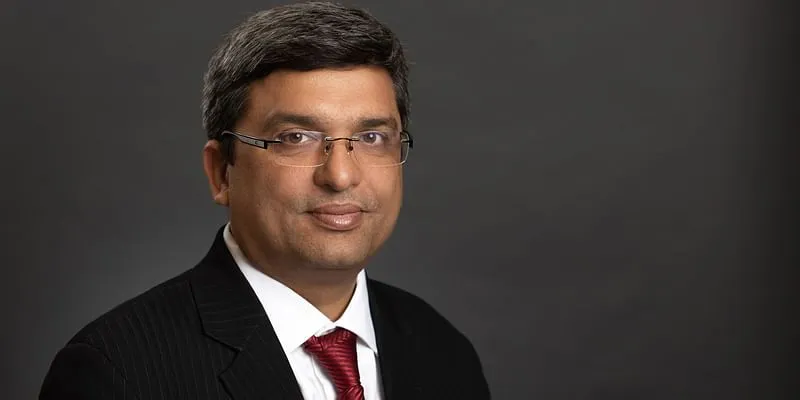
Rishi Bhatnagar, President, Aeris Communication
A robust digital infrastructure is required to sustain large, medium and small businesses. The outlook needs due diligence to promote more local innovations under the ‘Make in India’ and ‘Atamnirbhar’ campaigns.
Though the government made few announcements to narrow the digital divide in 2020, for enabling a global competitive edge with natural growth, the government needs to support with special investment package for facilitating the small to medium enterprise sector’s technology adoption and implementation. This will go a long way in making India Atmanirbhar and a global leader. The upcoming budget needs to focus on integrating technology with data privacy and security designed at the core, across multiple sectors like manufacturing, automobile, and healthcare.
Invest in online learning and training - Surabhi Goel, CEO, Aditya Birla World Academy

Surabhi Goel, CEO, Aditya Birla World Academy
We believe one of the sectors that requires some focus in the upcoming Union Budget 2021 is education. With the pandemic and the ensuing lockdown having disrupted the sector to a great extent, students and teachers were not prepared for the sudden shift to online forms of teaching and learning. This new normal in education calls for a renewed focus and investments for our educational institutions to be at par with their global counterparts. There is an increased need for investing in virtual forms of education and training through digital tools, upskilling and digital training for teachers through interactive mentoring sessions, leadership training, and more.
Further, the government can also bring to light the importance of easing the challenges faced by students with learning disabilities to build a conducive learning atmosphere that fuels their growth. We hope the government increases the funds allocated to the education sector, especially when it comes to resources such as the internet, as this will open up countless new opportunities for the sector to grow and thrive.
Ease PSU loans - Amit Monga, Co-founder, ANS Commerce
This is the perfect time for the government to ease PSU loans to help the startup ecosystem recover from the losses incurred in the last year. We also believe that removing ESOPs taxation till liquidity will help attract young talent. We expect incentivisation in the budget to fuel the ‘Make in India’ initiative. Furthermore, we hope the government will simplify the process of GST and other filings. Consistent and stable policies in the ecommerce segment have become the need of the hour as ecommerce penetration in retail is still less than 5 percent.
Overhaul the banking system - Raj N, Founder and Chairman, Zaggle
It is important that the government considers and provides for the fintech industry in the budget to create a balance between revenue generation for the exchequer and ensure an enabling economic environment for the fintech industry.
We expect the government to rise to the occasion and further intensify the stimulus, especially for the industries which were more or less crippled because of the pandemic.
What India needs is an overhauling of the existing banking system and believing in fintech platforms to reach the last mile and make India a fully digital payments country.
With freedom comes responsibility; regulating the necessary processes is necessary but allow the businesses to operate with freedom, especially the neobanks.
Special incentives for construction industry - Subhal Garg, Director- Finance and Strategy, E5 Infrastructure Pvt Ltd
The construction industry is the second-largest employer in India after agriculture and is the largest consumer of steel, cement, and other key industries. We are expecting:
- Higher allocation of work under EPC model, facilitate liquidity for HAM, BOT projects.
- Rationalise the pricing of key input materials, any abnormal increase will adversely hit the infrastructure goal
- Make an announcement around special incentives and weighted deduction under income tax so that construction companies start spending into research and development, with an objective towards fast execution and reducing the environmental impact.
- GST on rental income is 18 percent. Once the assets become operational under SPV, there is no/almost negligible input tax credit. An option of a composite scheme under GST should be introduced for rent/annuity yielding SPV.
Reforms for sports and health - Aman Puri, Founder, Steadfast Nutrition
The sports industry requires attention from both the government and the corporate sector, which will aid in achieving our goal of making India the Sports Capital of the world. Additionally, enough reforms in the field of sports and health must be made to bridge the gap between the common man and their access to high-end nutrients and supplements thereby aiding their sports journey.
Subsidies for the EV industry - Akash Gupta, Founder and CEO - Zypp Electric
In the Union Budget 2021, we expect the government to invest significantly towards the growth of the EV industry. We wish some schemes for easy EV vehicle financing and subsidies for EV fleet operators. Further, we are also looking forward to the government’s decision to elevate the startup ecosystem. We are also expecting the government to introduce new policy incentives that will accelerate the business growth of startups.
Strengthen emerging technologies - Vinayak Shrivastav, Co-founder and CEO, Toch
Artificial intelligence is one of the crucial elements contributing to the growth of the startup ecosystem of the country. In the Union Budget 2021, we expect the government to bring more progressive reforms for startups. Further, we expect the government to make significant investments in technology to help strengthen emerging technologies such as artificial intelligence, machine learning, and IoT.
On-ground support for MSMEs - Gaurav Hirey, Founder and CEO, GoEvals
As we approach the Union Budget, we hope special initiatives are introduced to ensure the survival of the micro and small enterprises, many of whom are bootstrapped and will need more time to raise funds to support themselves. The government must provide on-ground support in terms of extending short-term liquidity and availability of funding. The government must focus on removing barriers and providing incentives to startups which have the potential to grow.
The number of compliances needed is often unreal and totally unnecessary. This needs to be simplified as it diverts attention from the core focus to non-value adding activities.
It would really help if there is a proactive attempt to help startups and small businesses by educating them more and supporting them on the ground in real terms by putting the workforce on the front to do this. It would help more startups to survive and grow.
Timely infusion of seed funds - Balkrishna Hari Singh, Founder and CEO, Frenzi
To make the government’s mission of “Atmanirbhar Bharat” a reality, it’s important we have our own homegrown solutions and entrepreneurs catering to this market demand.
“Atmanirbhar Bharat” would not be possible without the timely infusion of seed funds to these emerging business solutions. Budget 2021 should specifically cater to catapult the startup ecosystem at the centre stage of the Atma Nirbhar economic growth.
A few expectations from the government in this year’s budget would be:
1. The government should set up an innovation fund for each sector.
2. Create PPP institutions to upskill the small and micro business owners to be able to take their businesses from offline to online mode.
3. Open up the capital market to the startup and SME sector.
4. GST waiver or reduced tariff for early-stage startups on setup costs.
Replace legacy technologies - Murali Nair, President, Banking at Zeta
We expect 2021 to be the year where the digital payments landscape will receive a boost with fiscal policies that encourage banks and financial institutions to partner with fintech platforms to further accelerate the move to a completely digital economy. We hope that fiscal policies encourage both Private and Public Sector banks, FIs and fintech firms to adopt modern technology to replace legacy technologies so they can provide modern, mobile-first, secure, and state-of-the-art digital products and services to customers.
Make toys and stationary essential - Vic Rana, Group Chairman, Red Ridge Global

Vic Rana, Group Chairman, Red Ridge Global
Making toys and stationery articles as essential items will be the much-needed start, which will route the manufacturing and tax holiday benefits to Indian companies help them scale their operations and invest in precision machinery to roll out international and compliance-adhered quality toys.
Make sustainable policies for MSMEs - Anurag Rai, Founder and CEO, BuildWorx

Anurag Rai, Founder And CEO, BuildWorx
With the Budget 2021, we are expecting government support for the startup ecosystem, including MSMEs, which are one of the biggest contributors to the Indian economy. The government should come up with policies that inspire them to focus on profitability and sustainability for themselves, without riding the investment and valuation bubble. The government needs to encourage entrepreneurship because it is one of the best ways for job generation and economic progress. The startup-friendly policies should be made simplified to register and there should be a relaxation in the taxation policies and simplified GST returns as well. We are expecting a provision for a collateral-free loan and further remove roadblocks for foreign investments.
Introduce structured tax reforms - Sourjyendu Medda, Founder, CBO and CFO, DealShare
As the startup ecosystem significantly contributes to the GDP of the country and is a key employment generator, more strategic initiatives are expected from the budget to boost the segment.
Firstly, the budget needs to look at structured taxation reforms like providing startups with a no dividend and no capital tax mechanism. This will enable companies which are funded by VCs to infuse more working capital into R&D as well as provide companies with more incentives, which in turn will boost the growth. Apart from this, the budget should also create a single window clearance framework for startups and small businesses for company registration, GST registration, company incorporation, shop establishment, etc. This will reduce the compliance cost burden for companies and give them more working capital.
The budget also needs to focus on introducing regulatory reforms or improve current rules, wherein the user data is protected. Additionally, the budget should also look at creating avenues which can boost indigenous brands which will further lead to creating more employment opportunities in the sector.
Reduce GST for online education - Prateek Shukla, Co-founder and CEO, Masai School
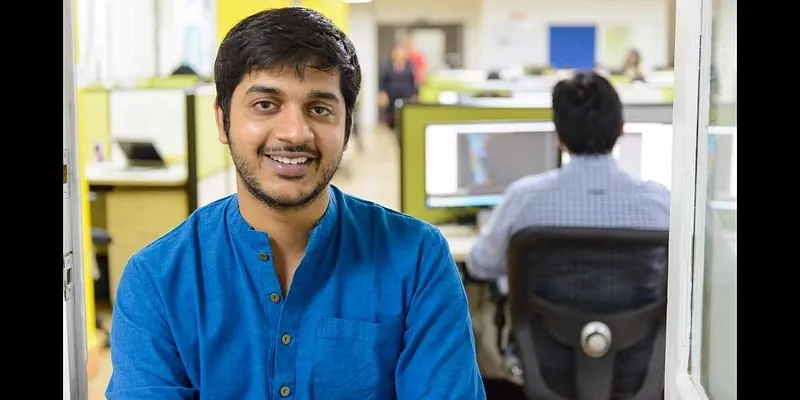
Prateek Shukla, Co-founder and CEO, Masai School
Keeping in mind the pulse of the nation on online learning, along with a larger agenda of skilling and making the Indian workforce job-ready, the government should consider implementing steps that will encourage investor interest to boost the growth of the sector. We would like to urge the government to reduce the GST on online education services in the 2021 budget. This will help us in providing quality education to more students. In addition to this, we also expect full support from the government in terms of fund allocation to further rise in 2021.
Take measures to control inflation - Vikram Agarwal, Managing Director, Cornitos
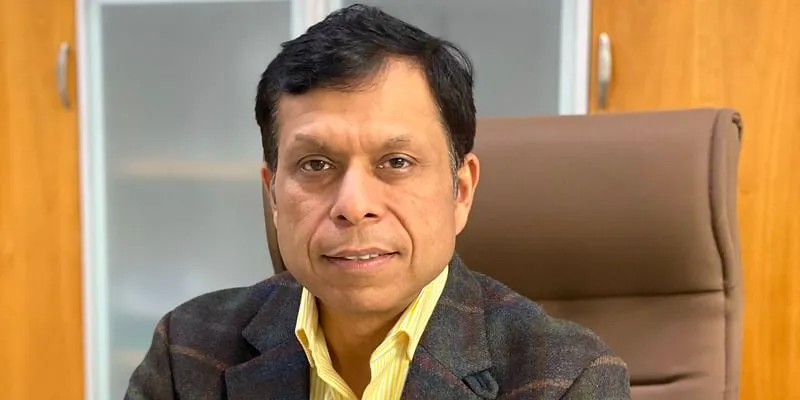
Vikram Agarwal, Managing Director, Cornitos
The government should reduce Individual Income Tax so that the individual spending increases. Currently, there is up to 47 percent income tax on individuals and 18 percent GST on products, hence we are paying 65 percent taxes in total.
Secondly, GST categories in food products have not much clarity and don't cover all types of products. The government must make the GST categories vast and clear. Categories 1905 and 2106 have a lot of confusion and hence, industry is penalised by paying higher slab of GST tax, which can be reduced.
To position India as the food factory of the world and promoting value-added processed food products abroad, Budget 2021 should provide a higher allocation of funds for food processing units and tax incentives for exports of food items. To facilitate investment in the food processing industry, any additional capital investment of more than 50 percent of the existing book value of plant and machinery should be treated as new investment and should also be eligible for a five-year tax holiday, under Section 80IB(11A).
Extend capital support to MSMEs with co-lending models - Harshvardhan Lunia, Co-founder and CEO, Lendingkart
Considering the pace of evolution and associated large scale benefits delivered from fintech ecosystem to support the government’s vision of inclusive growth, the industry is best placed to gain elevated focus in the upcoming fiscal priorities through various grants for technology investment and innovation, ensuring allocation of funds to digital lenders to encourage developing new solutions, extending digital reach for them to service deserving small businesses, and to help achieve the dream of $5 trillion economy.
The government’s sustained support to fintechs serving MSMEs will help transform initiatives such as “Atmanirbhar Bharat” into successful realities, and will also help set up the hub of opportunities in this industry. The government’s push will, in turn, support increased capital for the fintech sector, working with a dedicated focus to empower India’s micro and small businesses, and operating as extended arms of large banks and financial institutions.
The government should also push the collaborative approach decided by the RBI to incentivise the banking sector to partner with fintech lenders on various risk-sharing, co-lending models to extend capital support to MSMEs, leveraging fintech’s well established widespread origination, underwriting, and seamless delivery capabilities.
Focus on the growth of rural fintech - Dilip Modi, Founder, Spice Money
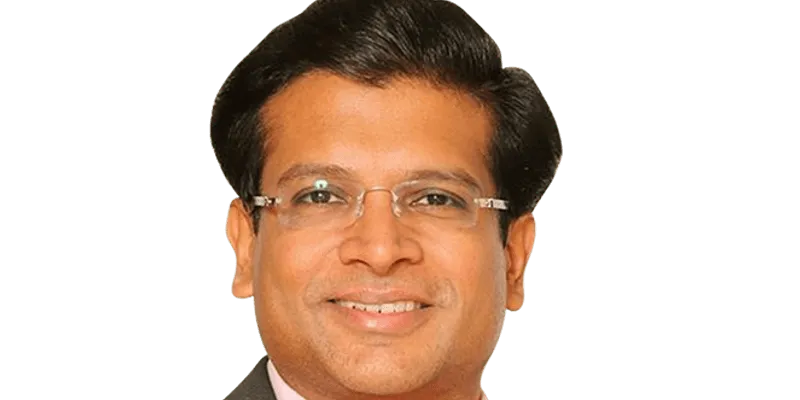
Dilip Modi, Founder, Spice Money
While encouraging initiatives such as PIDF by RBI have already been announced, in the upcoming Union Budget, we expect the government to announce a subsidy on MDR and PoS devices. Waivers on MDR and PoS are pertinent to encourage the expansion of these services via the BC network. Accessibility of financial services is a major gap in financial inclusion, and PoS terminals would be more sustainable than ATM infrastructure in semi-urban and rural areas.
Another key aspect, like many have echoed, would be the taxes. The earnings of the underbanked population are hit with taxes levied on basic money transfers. The government should consider providing some GST relief on smaller transactions conducted on the BC network. A special provision on GST and TDS for the BC model will help create visibility for this business. Further, tax benefits to the rural end-customer on digital purchases will also help boost adoption of digital financial services in low-income groups.
The government showed support for the rural areas by deploying DBT schemes with the BC networks backing them by providing withdrawal services. The government should further this support by building BC networks as it will spell growth for the vision of Digital India beyond simple internet connectivity. It will allow more financial products and services to reach the remotest parts of India and accelerate the bridging of the gap in access to banking services in India.
Improve digital infrastructure in Tier II and III cities - Saahil Goel, CEO and Co-founder of Shiprocket
India’s offline retail market has been heavily impacted by the COVID-19 pandemic. However, the crisis has fuelled the growth of ecommerce and the Direct-to-Consumer (D2C) sectors. We expect that the Union Budget 2021 will focus on improving digital infrastructure in Tier-II and III cities. Better internet connectivity in rural regions will further stimulate ecommerce demand. The industry requires the introduction of the National Retail Policy that will boost the sector to a higher level altogether.
Measures such as streamlining approvals, compliance for ease of doing business, enhancing access to capital, quicker adoption of technology, automation by traditional retailers, and setting up a well-connected logistics and supply chain network, would be immensely favourable to the industry. Furthermore, measures to enhance warehousing would also greatly benefit the sector. These steps will allow the industry to grow rapidly, and will also help in job creation during the year.
More focus on edtech growth - Payal Gaba, Founder and CEO of BeyondSkool
Edtech is a very young sector. It needs support from the government in many ways.
Firstly, GST on edtech is at 18 percent, which is completely unwarranted since the sector focuses on education. This sector should be GST free or at the lowest GST slab so the costs are reduced, which will lead to more parents adopting online classes.
Similarly, GST and duties on computers for students need to be reduced so that more parents can give computers to their children.
The government should also pay attention to building digital infrastructure across the country so that there is better adoption of digital learning.
Online education needs greater support from policymakers – it’s much more accessible and scalable than rebuilding our offline infrastructure, which is broken and often non-existent in education.
Lastly, access to working capital for startups is critical.
A better tax regime for skilling startups - Pratik Agarwal, Co-founder and Chief of Growth at SOAL
While the edtech sector has seen a great boom during the COVID-19 pandemic, we have seen large numbers of individuals going out of jobs. We have seen a strong push from the Indian government for the upskilling and education industry. We expect that the Union Budget 2021:
- Will focus on reducing the GST on education and online programmes from 18 percent to five percent.
- Tax deduction under Section 80E on loan interest should be extended to loans for skilling and online programmes by DIPP recognised startups.
- This, along with an exemption for expenses, such programmes for working professionals in their ITR will ensure individuals of all ages are looking to continuously learn and upskill.
- It would be great to see something like an Income Share Agreement being recognised under the NIA 1881. The move will work for both — the education institutes and the students at large. It will make more education institutes adopt this fee model, where they are invested in the success of their students.
- A large scale adoption of such a model will additionally ensure that cost is no longer a barrier to quality education. Such a move will enable individuals from Tier II and III cities to be on par with everyone else at the top programmes and institutes.
Double the education spend - Suman Matcha, CEO, Online Adaptive Learning System (OAKS)
As per the new recommendations of NEP 2020, doubling the education spend is essential to transform the knowledge-based economy to a skill-based economy. Making the education share to be six percent of GDP caters the needs of many underprivileged children to bridge the gap for accessibility of digital infrastructure, and also edtech solutions, which help them to gain the requisite 21st-century skills needed to reach the zenith of the world.
Apart from investing in the infrastructure, it will be applauded if the funds are provided for improving the quality of education, according to the learning outcomes promised. Making a path for public-private partnerships will emphasise on improving the quality and metrics of education.
Expectations for MSMEs - Alok Bansal, Managing Director and Country Head, India at Visionet
With technological disruption gradually becoming a catalyst for the rise of MSMEs and startups today, it is expected that the government will make the necessary investments in technology hubs, which, in turn, will help in strengthening emerging technologies like AI, ML, and the Internet of Things (IoT).
As the country is amidst a boom in digital technology adoption, this year’s Union Budget needs to make way for relevant measures to ensure that the right amount of thrust is given to tech build-up, favourable tax policies, and other opportunities will spell progress for the MSMEs.
The government also needs to make substantial efforts to set up a robust digital ecosystem for encouraging budding entrepreneurs and introduce measures that make it even easier to conduct business in India. This will be highly beneficial for startups and SMEs. It will further attract more companies and organisations to set up their offices or invest in India.
The government should pay attention to employing technologies that can be used to upskill or reskill the workforce employed by India’s MSME sector. Specialised tech centres can be set up and operated by the government and industry groups to equip the workforce with the required skills and perform AI-empowered hybrid jobs. Such interventions by the government have numerous upsides to them — starting with increased earning potential that will pave the way towards the strong economic growth of the MSME sector.
Make technology more accessible to persons with disabilities - Sameer Garg Founder and CEO, Billionables.
Many tech startups have developed, or are working on Assistive Technology (AT). Even the government under its Accessible India Campaign has been supporting technological innovations in this regard. Thus, we hope for more continued government support, especially towards the research and development for making technology more accessible to persons with disabilities (PwD). The pandemic has been tough for all of us, but it was far more taxing for the disabled persons. Hence, transformations in technology, that can help people with disability to live a more independent life, is the need of the hour. Innovations like devices converting text to braille, smart walking sticks that alert about the nearby obstacles, and even intelligent Bluetooth speakers have been a great help in this sector. In the past two years, there has been a significant increase in investment towards AT, and many startups are working to make a difference. We hope the Indian tech startup sector, brimming with potential, can spearhead this novel sector of Assistive Technology.
Better regulation for the startups dedicated to Bharat Finclusion - Shubhradeep Nandi, CEO and Co-founder, Pihchain Labs
There is a need to integrate technology-driven startups in its action plan to boost the financial wellbeing of rural India. This year’s Budget gives us hope of better regulation for the startups dedicated to Bharat Finclusion, which will help in attracting more foreign investment. We believe that an increase in expenditure to further the financial accessibility to unbanked and underbanked is crucial at this juncture, and India, currently, is lagging. Bharat needs equal, easy, and affordable access to quality financial products, customised and built for rural India.
As far as taxes are concerned, today, the GST we are paying is as high as 18 percent. But, in the upcoming Budget, we hope that this is corrected, given the increasing importance of financial wellness becoming a lifestyle as opposed to a vanity metric. The provisions drafted must require no major changes for at least five years. This would reduce the compliance burden on startups and make management easier. Wherever needed, corrective changes need to be made to make implementation easier.
Encourage farmers to adopt agritech - Nikhil Das, Founder, Agdhi

Nikhil Das, Founder, Agdhi
Although fairly nascent in India, the agritech sector has the potential to improve productivity by manifold, if provided with the right kind of incentives and opportunities. At a time when the farmers are not entirely convinced about the new farm laws, it is the perfect opportunity to provide them with avenues that would improve productivity significantly.
For this, the government can either announce subsidy or cutback on taxes to farmers who opt for agritech products, thereby encouraging farmers to adopt agritech in a big way than in the past, when there wasn’t enough awareness of technological interventions in agriculture.
Besides this, agriculture was the only sector that has shown resilience during the COVID crisis to grow by 3.4 percent in the current fiscal year. This remarkable achievement amidst overwhelming odds shows the unmatched potential of the agricultural sector. This growth trajectory could be acknowledged by the government through agricultural-centric policies that provide the necessary boost to the overall economy. Such policies would also help associated sectors like agritech that are closely aligned with agriculture.
In the current scenario, when the world is taking note of India’s efforts in combating the COVID pandemic, the government must present a budget that paves the way for economic revival. On behalf of the industry, I would like to request the government to put policies in place that allows farmers to be better aware of technology-centric approaches in farming. This can be done as an offshoot of the much-publicised “Digital India,” where there was added impetus on the adoption of digital technology.
We envision a future where technology has a significant role in providing the average farmer with the best productivity from their limited means. Hope the government gives agritech the necessary opportunities and incentives to grow as a robust sector within the Indian economy.
Consider fiscal incentives for OEMs - Rahul Garg, Founder, Moglix
The first paperless budget is symbolic of the offline-to-online shift that has already accelerated. Beginning with the massive supply chain marvel of distributing the COVID-19 vaccine to 1.3 billion people, 2021 will be an inflection point in India’s supply chain transformation journey.
The outlay and the fiscal prudence in the execution stages of the National Infrastructure Pipeline will set the stage for a continuous improvement programme for the manufacturing supply chain. It will also be important for the government to consider fiscal incentives for OEMs that source goods made in India from the local MSME supplier ecosystem, and unlock new avenues for local demand generation and distribution of industrial goods and manufacturing services.
The government should consider fiscal innovations like supporting investment by large enterprises in long-term digitisation projects and technology collaborations to sustain the momentum gained in the Digital India initiative.
Continued acceleration to policy incentives for startups - Khadim Batti, CEO and Co-founder, Whatfix
As we gear for the post-pandemic world, we expect the Budget to enable continued acceleration for startups through policy incentives. Although investments in startups may return to pre-pandemic levels soon, the availability of working capital is a serious matter of concern at the moment. Therefore, mobilising funding for the ecosystem would serve a great boost to help add more resources, retain employees, and plan expansion. Further, easing FEMA legal guidelines and simplifying compliance procedures could offer some flexibility to startups to drive serious growth and get back to being one of the key GDP contributors for the economy.
Ajay Kaushik, Founder and CEO, Panacea Infosec
After the Digital India Initiative, digital innovations are on fast-track, and data became a new fuel for the digital economy. The government has to ensure that data is not an asset of an organisation, but it is a responsibility, and eventually, a liability. We need a robust cybersecurity policy. The government should accelerate the enactment of the Data Protection Act and set up a strong and effective Data Protection Authority. Few key areas where we are expecting reform is ensuring predictability, consistency, and rationalisation of levies and taxes to promote innovation and investments in the sector to achieve Indian government's Digital India vision.
Post the pandemic, empowering startups can help to overcome some economic headwinds, and create a culture of entrepreneurship to facilitate sustainable economic growth and generating large-scale employment opportunities. As the digitalisation of the economy is taking place, the focus of policymakers should be on building superior trust in technology. Allocation of 10 to 20 percent of the technology budget for cybersecurity initiatives should be a priority of the government. In this budget, the government must add simulation-based cybersecurity training solutions in the Skill India campaign.
We are expecting from the government to create a strong compliance culture for Payment Data security, as well as PII security. Although we have practices such as PCI DSS, ISO 27K, and a few others prescribed by CERT-In and NCIIPC in India, we have to analyse these practices with the point of view of its practical implementation and orientation along with its interoperability with the international frameworks.
The government should give policy support for cybersecurity services with the proactive application of policy mandates. All guidelines for data protection and risk assessments should be enforced very strictly, just like the government enforces income tax and GST filings. It will make the nation safer from a cybersecurity perspective.
Harshil Mathur, CEO and Co-founder, Razorpay

Harshil Mathur, CEO and Co-founder, Razorpay
The pandemic has impacted all sectors and businesses of all sizes. While some industries have seen a bit of turnaround in the past few months, it is essential to have inclusive policies that will enable ease-of-doing-business in this new order, while allowing small businesses to prosper.
It would be desirable to have increased loan limits for unsecured loans, thereby helping small businesses have better access to credit and working capital. Hassle-free loan disbursements, automation of tax and compliance, paper-less approvals, and incentives to adopt digital banking practices will be critical changes to look for.
We’ve seen a substantial spike in the adoption of digital payments in the last few months of COVID-19, and the need of the hour is to explore ways to further this adoption.
I’m hoping that in the upcoming Budget, the government will think of alternatives to the Zero MDR policy. One of the alternatives could be providing tax incentives for MSMEs towards accepting digital payments as that will help promote e-payments and drive significant digital adoption among businesses. Initiatives like these will also lead to innovations in the payments infrastructure, thereby creating solutions and tools that respond to both shifting customer demands and need for customised solutions for MSMEs.
Amit Nigam, Executive Director and COO of BANKIT

Amit Nigam, Executive Director and COO, BANKIT
The beginning of 2020 showed a great downfall in the business across all the sectors. But, it was a great year for entrepreneurs to take control of various situations. The fintech industry has seen more small businesses igniting at the remote level. More adaptability in people is seen in digital mediums for payments and financial management. This year. we expect our government to build strong policies to encourage banks and financial institutions, where rural areas work with fintech companies to expand their business digitally.
The Indian startup ecosystem has seen various ups and downs throughout the year. We, as a fintech startup, expect some special measures to revive the economy and help the startup with growing financially. The major pointer to look forward to in the upcoming Budget is the ease in taxes, which can help lessen up the burden from small and new businesses.
With the upcoming budget, we look forward to the exemption of income tax for retailers from the income coming through financial businesses. Also, business correspondent (BC) agents must be exempted from GST charges that apply to the BC business.
We feel that these agents and BCs facilitate the financial inclusion process and thus, act as a helping hand to the government in making India digital. This step will encourage more retailers to join the journey. Another change that we look forward to, that can help towards the same cause, is subsidies on devices like mATM, MPoS, etc., to help entrepreneurs encourage to come forward for the cause.
Rohan Bhargava, Co-Founder CashKaro and EarnKaro
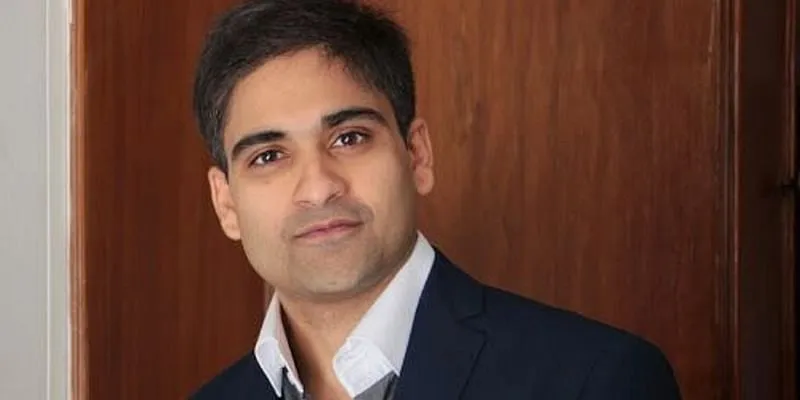
Rohan Bhargava, Co-founder CashKaro and EarnKaro
We have many expectations from the upcoming Union Budget, with Finance Minister Nirmala Sitharaman promising major reforms to revive the economy, after a tumultuous 2020.
With India now occupying the third spot globally when it comes to startup generated economy, the government must consider introducing more tax benefits for startups. This is of even greater consequence now that businesses are trying to come out of the COVID-19 caused eclipse and work towards economic recovery.
Also, as we expect the investment scenario to gradually bounce back to the pre-COVID phase, a systematic yet simpler process for raising funds would help attract more foreign investment. This will also have a positive impact on the sluggish job market and improve the current employment scenario.
Secondly, with ecommerce being the backbone of India's economy for many years, and even during the pandemic, its continual growth should be one of the areas of focus in the new budget. Among other measures, the government should consider reducing GST rates to boost the purchasing power of consumers. This step will not only ensure ecommerce continues being a positive quadrant, but will also help businesses in other sectors significantly curtail expenses and maintain healthier cash flows, which is vital right now.
Lastly, reduction in personal income tax rates should be made to mitigate the financial strain the whole country is experiencing right now. This will help people cope relatively better with the dent in the income levels, caused last year.
Asheesh Grewal, Founder, MyHealthBuddy
At the onset of COVID-19, the Prime Minister had shared a strong vision for a "Fit India" and has reiterated the importance of it time and again. To realise this vision across income-levels, the government should consider reducing GST rates on health and fitness services in the upcoming budget.
Governments across the world have acknowledged that the cost of an unfit workforce is significantly higher than that of a slight reduction in the tax rates.
In keeping with the recently launched skill-development schemes by the government like Pradhan Mantri Kaushal Vikas Yojana, SANKALP Yojana, etc., there is a need to allocate better resources to train more individuals in the nutrition and fitness domains. Even today, there is a major lack of educational courses in the online fitness coaching/training industries and very few skilled professionals in this field, which is a major struggle for businesses like ours.
Lastly, since the country is set to see a surge in the demand for online health coaching in the post-COVID era, the government is expected to embed online health certification courses into the Pradhan Mantri Kaushal Vikas Yojana.
Remove GST on critical healthcare products - Gautam Chopra, Co-founder and CEO, BeatO
Nearly 85 percent of people who have died from COVID-19 had diabetes or blood pressure problems. With chronic conditions like diabetes and BP on the rise, and inflicting more than 300 million middle-class Indians, it’s crucial to make healthtech and monitoring products more affordable. Hence, in their new budget, we ask the Indian government to remove GST on such medical products and monitoring devices - as they currently attract 12 percent GST. Additionally, given the sensitivity of health data, there is a necessity to boost innovation in India. The government must give Indian companies a further push by incentivising manufacturing of such products, so they can be made in India rather than be imported from other countries.
Power up gig workers - Sahil Sharma, Co-founder and CEO, GigIndia
While the new social security code is a significant step intended to guarantee social security for gig and platform workers – it will increase costs for aggregators and gig platforms, which will inevitably reduce the gig workers’ earnings, and also lead to selective hiring. As the economy struggles to recover from pandemic-related disruptions, the impending Union Budget must include suitable schemes which empower gig workers but also minimise strain on gig companies and platforms.
Further, the central government must roll out schemes to support startups and small businesses with growth capital, policies are required that facilitate easy credit flow via fintechs to startups and MSMEs. It may be noted that MSMEs and startups are both robust job creators and should be supported, especially during this pandemic period.
Encourage inflow of foreign investments - Keerthivasan Subramanian, Founder and CEO, Playtoome
Due to the pandemic, the funding has dried up in the startup sector. This has already resulted in aspiring entrepreneurs deferring their businesses and launches. The situation is making it challenging for early-stage startups too which have just sprouted and need a constant working capital resource. Also, there has been a reduction in foreign investments. It is very important for the budget to take into consideration the difficult times that the new startups are going through, and announce steps that would encourage the inflow of financial support to put the wheel into motion again.
Take steps to boost retail sector - Mahesh M, CEO, Creaticity
As a home retail enabler, we would be keenly looking out for some sops given to the residential real estate to encourage more absorption, mainly in terms of home interiors. Secondly, we look forward to a reduction in the customs duty on furniture products and raw materials whose burden is currently shouldered by the end consumers. Doing so will make products more affordable while also strengthening the Make in India initiative. Finally, it would be interesting to see something like a work from home (WFH) allowance to encourage people to invest in furniture associated with the home office setup. As private sector companies are widely adopting this trend, this step would provide a major fillip to the retail sector.
Set up standard education curriculum - Rohit Jain, Co-Founder, DUX Education
We believe that the need of the hour is to provide tax exemption on educational expenses, which would encourage the parents to spend not just on regular tuitions but also towards building co-curricular and extra-curricular skills in the children. We also expect the government to significantly reduce the GST on education companies.
Online education is not the future anymore. We are living the change as we speak. Unfortunately, a lot of teachers are not equipped to teach in such an environment. There should be a pie of the budget towards education that goes into developing these skills for all tutors.
Yet another aspect that needs immediate attention is to have a standard curriculum in the country. We have more than 55 active boards in India today! Do we really need such a divide in the way children study?
Encourage investment in edtech - Bijaya Kumar Sahoo, Advisor to The Odisha Adarsha Vidyalaya Sangathan (Rank of Minister of State), Govt. of Odisha
In my opinion, the Union Budget 2021 needs should focus on varied fronts such as:
1. Tax break for child education expenses. The exemption for child education expenses should be increased from 1.5 lakhs to 2.5 lakhs.
2. Encouraging investment in education technology: Technology blended learning education is the new normal, so tax breaks for edtech will encourage blending of technology, and hence education will reach remote and rural areas of India.
3. Tax breaks for educational infrastructure: Education is a huge CAPEX operation for which presently there is neither any tax break nor PROPCO (Property company) and OPCO (Operating Company) models to raise funds and build quality infrastructure for the Education Sector.
4. Introducing voucher system in school education: While NEP 2020 talks of quality education, the real improvement in quality, both in government and private, can only happen with a level playing field. The best option is to create the voucher system rather than putting more spending into public schools.
5. Realignment of income tax slabs: The basic income tax exemption limit has remained static at Rs. 2.5 lakhs, it should be enhanced to at least to 5 lakhs.
6. Housing tax breaks: Housing sector needs a thorough boost which will also improve the employment, steel and cement industry. This can be done by giving increased tax breaks in standard deduction for increase from 30 percent to 50 percent of annual value, and deduction for interest value on housing loans for self acquired properties to Rs 4 lakhs.
Digital channels for SMB credit - Gaurav Kumar, Co-founder and CPO of OkCredit.
One of the biggest issues for SMBs has been lack of capital. And thanks to the pandemic, this problem has become more acute. The government should tap into digital channels for better distribution of credit. Today, a lot of SMBs have come online and OKCredit itself has a reach across 2800 locations. The startups working with SMBs can not only execute with speed but will also implement last mile delivery.
Last year, the government announced a stimulus package for MSMEs. We expect the government to sustain it through this year, given how vital SMBs are to the economy.
The increased impetus on "Aatmanirbhar" and loss of jobs has meant that individuals will be looking to start small businesses. The government should encourage them by empowering them with capital and by making it easier to start a business. As migration happened during the pandemic, SMBs have also been struggling with manpower crunch. It's an opportunity for the government to bring a formal structure to this form of employment, along with social security benefits. This will not only benefit the SMBs but the industry at large.”
Elimination of MDR - Ketan Doshi, MD, PayPoint India
For the Payments industry, the honorable Finance Minister should reconsider the complete elimination of merchant discount rate (MDR) on Rupay and UPI transactions, which will support a sustainable growth in digital payments.
To further the financial inclusion in the country, I feel all transactions happening under PMJDY should be exempted from the GST levy. Bank accounts opened under PMJDY are basically of low ticket size. However, the operating cost to service this under-served community is very high till it reaches a substantial base, hence the exemption.
This Budget should have enough measures to infuse liquidity, benefiting small and medium enterprises, especially those in the hinterlands. PSU banks must lead this mandate in partnership with Fintec’s - either through co-lending or lead-generation models.
Healthy regulations for crypto investors - Rahul Pagidipati, CEO, ZebPay
We’re optimistic that the government now recognises the huge potential of blockchain technology and of Bitcoin as a reserve asset for companies, individuals, and even central banks in the near future. Crypto assets, properly regulated, can bring tremendous economic benefit.
The government’s twin goals of promoting prosperity and protecting people from fraud and harm are our goals, too. That’s why we have world-class security, KYC, and AML policies.
We hope 2021 will bring healthy regulations for crypto investors, so they can know how to pay taxes correctly and access all the potential of this revolutionary new asset class.
Simplification of GST, easing of taxes and more - Rajat Jadhav, Co-founder, Bold Care
There is an increased need for simplification of GST structure and easing of taxes to help startups and MSMEs crusade through shortcomings caused due to liquidity gaps. Also, startups must be exempted from compliances pertaining to taxes, filings and the corresponding paperwork atleast for the first 20 months so that they can pivot their energies towards business and operations. Focus on ease of doing businesses will attract foreign and domestic investors and will create a well-cushioned environment for start-ups expediting their scope of growth, ensuring long - term survival and strengthening their footing in the market.
Additionally, with the pandemic heralding a new wave of digital transformation, emphasis on incentivisation and fortification of digital infrastructure will go a long way in ushering innovation and accelerating growth.
Work towards better penetration of financial services to masses - Sunil Kulkarni, CEO and Head of Business Correspondent Federation of India (BCFI)
While urban banked customers are reaping the benefits of UPI and mobile banking services, the Business Correspondents (BC) Industry - the last mile in branchless banking, is hoping that the upcoming budget will implement the recommendation of RBI constituted "Report of High-Level Committee on Deepening of Digital Payments-May 2019" headed by Nandan Nilekani for under-banked urban/rural population by making BC originated and terminated transactions of IMPS and AEPS exempted from GST, which is currently levied at an effective rate of 27 percent on these customers. Considering the business correspondent's fraternity serves the lower bracket of the income pyramid, the tax bracket is very high. Additionally, for better penetration of financial services to the masses, BCs should be permitted to offer products and services of more than one or two banks. The industry has already witnessed the critical role BCs played during the pandemic lockdown by helping deliver banking and financial services to the last mile. We hope our concerns get highlighted and resolved with favourable policies during the budget announcement.
Help businesses move online - Vaibhav Tolia, COO, Dukaan App
Our expectations from the 2021 Budget is the empowerment of SMBswith financial support, as well as weather-proof them from black swan events.
Digital first SMBs can weather such events and thrive in the consumer economy which is quickly moving online. Regulatory framework and compliances need to be thought from a SMB perspective, making it easier for them to do their business digitally and not be dependent on large ecommerce providers.
Government should also focus on incentivising businesses that are willing to transition to the digital era. India has millions of entrepreneurs fueling one of the fastest growing GDP globally, digital first should become the precursor to Digital India.
Increase liquidity in the market - Matthew Flannery, CEO and Co-founder, Branch Personal Finance App
2020 was a tough year for borrowers and lenders. Lenders saw a sharp increase in demand and subsequent delinquency rates. This in turn had tightened lending rules for most part of the year. With early signs of economic recovery, we are hoping the government stimulates spending and increases liquidity in the market. It would be an excellent move from the government if there are economic stimulus packages that can aid both individuals and industries.
More support to EV industry - Suhas Rajkumar, Founder, Simple Energy
The year 2020 was a never-seen-before scenario. We did see the GDP contract as the whole world came to a pause. Amidst the pandemic, a lot is expected from the government in terms of the support they can give to the auto industry. EV manufacturers would certainly hope for a few policy changes, ease of finance, and reduction of GST slabs from the upcoming Union Budget. These costs eventually increase the cost of manufacturing and of owning the EV, which again slows down its adoption. Undoubtedly, the government has shown its support with various initiatives to boost the usage and adoption of EVs like the National Electric Mobility Mission plan 2020, capital subsidies under FAME, etc to name a few, and we're expecting them to take more supportive steps on the policy framework which will help the EV sector in long term.
Single window clearance for street vendors - Bunisha Khajamohideen, Co-founder, Terabite Ekarts
The pandemic has made the startups see a lot of ups and downs in the previous year. It indeed pushed us to become self-sustainable. The government has taken a lot of measures to empower street vendors. But we also expect some more norms and relaxations like the single window clearance for the street vendors to get the compliances done and boost the street-commerce vertical as the nation is filled with lakhs of street vendors across various fields, with food and beverage topping the list. This initiative will certainly see the growth in the street food-commerce and ease their lives too.
Reduce GST for tech startups - Sudhanshu Sharma, Founder and CEO, RoboGenius
The government should look at reducing or removing GST altogether, which at present is a hefty 18 percent, from coding, robotics, and AI educational classes outside the formal school framework. It will be a big help to make this segment affordable and accessible for all. Learning to code, build robots and AI systems is essential for securing the future of India’s young people and making India “Atamanirbhar”. The future of India becoming a powerful self-sustained nation lies in the quality education and futuristic approach that RoboGenius takes. This sector will benefit from reducing the taxes and giving a breather to the parents who are taking the blow during the pandemic. Our kids and their future should not suffer irrespective of the economic ups and downs.
Tax incentive on R&D expense - Amit Singh, CEO, Teliolabs
With the upcoming Budget, we are looking forward to a major push towards the technology sector. After AI hubs, it is time for creating an ecosystem for 5G which can help sectors to reap benefits out of it. Also, IoT device manufacturers should be considered for lower taxes and import duties to actually push the whole new digital ecosystem adaptability. I wish there could be tax incentives on R&D expenses in deep tech startups and rebates on utilising Made in India technology in commercial usage.
New financing channels for NBFCs - Ashwin Reddy, Managing Director, Aparna Enterprises Limited
Despite the current challenges, the building material industry is one of the few who are on a faster recovery trajectory, and in fact the sector is poised to witness 5 percent to 10 percent growth in 2022. However, for this growth to become a reality, it calls for greater efforts from the government in the upcoming Budget. Union Budget should focus on fastening infrastructural development and infusing more capital into this segment. Government should introduce policies like single window clearance, uniform taxation, structured interest rates and quick implementation of schemes announced under the “Atmanirbhar Bharat” programme. This will improve the overall ease of doing business in the segment and open up new avenues of opportunities for the industry. The Budget should also look at introducing new financing channels both from regular banking routes, NBFCs and private equity. Financing alternatives should be made available for all tenures – short, medium and long term. Additionally, reduction in income tax rates will increase consumer spending potential and this in turn can improve the growth prospects of the industry.
Strong support for EXIM industry - Prem Kishan Dass Gupta, Chairman and Managing Director, Gateway Distriparks Ltd.
The year 2020 has disrupted and challenged the logistics sector in different ways. However, the logistics sector still serves as one of the key economic drivers because of its thriving infrastructure and improved connectivity. From Union Budget 2021, we expect strong support and initiatives for the EXIM industry, which will help in increasing volumes.
We hope the Budget will have enhanced allocation to the Indian Railways for completion of the Western Dedicated Freight Corridor (DFC) project at the earliest, so that the industry can benefit from the new rail infrastructure at this time when the focus is to increase manufacturing in India. This will immensely benefit ports, exporters, importers, shipping lines, container train operators and other consumers of Rail transport.
As a logistics company, we are looking at the government's increased investment in infrastructure, which will provide further impetus to boost the overall economy.”
Sourabh Deorah, CEO & Co-founder of Advantage Club
"Remote working is the new norm, and the upcoming budget should include a stimulus package centred around it. Working from home came with many new costs for employees and employers alike. To promote employee wellbeing in the current scenario, the government should allow a deduction for such expenditures subject to a certain maximum amount."
Tax incentives for parking payments through Fastag and other digital payment methods - Amit Lakhotia, Founder, Park+
Parking as a business got battered badly this year due to lockdown and restrictions on people on venturing out. It continues to remain a segment where digital payments still haven't penetrated much. Most of the payments are small ticket payments and still involve cash. This is the perfect time to move these payments digitally as people would prefer a contactless and touchless solution. Also with Fastag becoming mandatory for every car, it is possible to use the same for parking payments.
Providing a small tax incentive to users for a year would move the whole sector on the digital payment path very quickly. This will generate more revenue for the government and would also reduce a lot of stress and fuel wastage that happens due to people queuing in the parking to pay cash.
Kundan Shekhawat, Founder and Group CEO, Ascent Business Technology
The pandemic has proved that we are indeed living in a VUCA (volatility, uncertainty, complexity, and ambiguity) world. It’s an onslaught, and the impact it has had could not have been imagined during pre-COVID days. However, companies that were progressive and invested in the right technology and infrastructure to stay resilient bounced back with little effort, while others continue to struggle.
Startups, MSMEs, and vulnerable companies need all the financial support they can get from the government at this moment in time. They look forward to the Union Budget 2021 to seek tax breaks and holidays, moratoriums, and financial boost to uplift demand and strengthen the supply chain.
India holds the prestigious position of being in the top five startup economies of the world. However, this is a challenging time for all. Thus, a lenient budget would be a fair expectation from the government. We expect the following points to be considered for the fintech sector:
- Organisations attempt to regain market share and drive demand; they must be prepared and resilient for future disruptions. The government should consider investing in infrastructure and services that encourage business resilience.
- As the government is focussing a lot on the Indian startup ecosystem, encouraging investments, creating a conducive environment, and compliance requirements need to be relooked and eased.
- Tax breaks and incentives to drive further investments into emerging tech and innovation can be either in the form of subsidies or corporate tax reduction.
- Lowering of GST rates for services availed by startups.
- Making working capital available at a near-zero interest rate for two years for promising startups and MSMEs. This would help them stay afloat and give them renewed energy to succeed.
- With the new normal of work from anywhere, companies should be incentivised to offer employees to take benefit for working remotely.
- In the wake of the pandemic, people have moved into their hometowns, which could be in Tier – III and IV cities. The government should incentivise corporates, startups, and MSME to set up offices and infrastructure in these cities to ease congestion from bigger cities.
- Fast-track process for VC fund registrations and reduction of GST on investment fund management fees.
- Make ESOPs attractive by reducing tax incidence. Tax ESOP gains only once at the time of sale.
- Make in India incentives for startups and MSMEs that are not in SEZ and most likely not getting any benefits associated with it. The budget should allow provisions so that companies can derive benefits from core asset infrastructure.
Focus on improving the quality of healthcare in India - Devang Mehta, Partner at Anthill Ventures
The finance minister has a once-in-a-lifetime opportunity to make this a seminal budget for the early-stage industry in India, especially as it relates to the healthcare startups. There are a plethora of startups in healthtech and biotech, which given the right incentives, can fundamentally and permanently alter the quality of healthcare in India.
The ubiquitous availability of personal healthcare data, pre-empting disease through minimally invasive testing, completely personalised treatment options, and easy availability of financing options to the poor for even the most complex medical procedures are just some of the wonderful outcomes that can emerge from a well-crafted Budget.
The entire early-stage ecosystem can provide significant tailwinds in the push to create a $5 trillion economy — by catalysing non-linear growth in industries like medical tourism, R&D (and cures) in chronic diseases like diabetes, game-changing medical devices, and more.
Set up long-term financing institutions for NBFCs - Shachindra Nath, Executive Chairman and Managing Director, U GRO Capital

Shachindra Nath, Executive Chairman and Managing Director, U GRO Capital
The crucial challenge in reviving MSME sector would be to address lenders' risk appetite in the face of loan default fears. Lending can be encouraged by bringing the existing credit guarantee scheme in line with the ECLGS. Other measures include:
- The government must ensure that NBFCs can access liquidity. This, in turn, would give them the tools to support MSMEs.
- The 2021 Budget needs to set up a dedicated institutional framework for the same (existing or new), which would provide credit enhancements to NBFCs in different formats.
- A long-term financing institution for NBFCs would be the right revival strategy to tide through a liquidity crisis.
- There are several schemes and systems in place to democratise credit in India, including OCEN, account aggregators, and co-lending initiatives. The Budget should put into place a governance and oversight framework to protect customer interests.
- Provisions for the right framework and liquidity will empower them to digitise and make this the year of recovery for MSMEs.
More focus on Make In India initiative - Ankit Juneja, Founder, Tanisi Trading Company
As per my experience, businesses have been struggling with disruptions in income and cash flow since the time of lockdown due to COVID-19, and they have been looking at the banking sector for access to credit. MSMEs are considered as the backbone in the development of the Indian economy. The government should prioritise sustaining the growth that leads to an increase in profitability for the sector. As we enter 2021, more focus should be on the Make in India incentive, and big credibility should also be given to locals to be vocal to strengthen the economy.
In order to encourage MSMEs to leverage professional services for business growth, the government should reduce the GST rate on most of the professional services from 18 percent currently to five percent. Indians need to compete with China, and the government should focus on being a highly productive economy for the growth of the country.
The GST systems and export-import taxes should also be re-evaluated and relaxed in order to better and smoother functioning of the businesses, which, in turn, will result in increasing the profitability and better cash flows, which will lead to encouragement and motivation for Indian businesses, and eventually, reduce the goods imported from China, becoming an 'Aatmanirbhar Bharat.'
Create new infrastructure for learning - Pankaj Makkar, Managing Director, Bertelsmann India Investments
Budget 2021 should help create new infrastructure for learning by using an online medium such as online degrees to achieve a higher GER. Detailed policies on online degrees will be a welcome step for such an endeavour.
Better health infrastructure in Tier II and III cities - Amritah Sandhu, Founder and Director, CareIndia Health
About 69 percent of our citizens reside in Tier II and III cities, and despite this, most private healthcare players are congregated in metro cities. Our government must plan on how to improve primary healthcare infrastructure in Tier II and III cities. Other measures include:
- Work alongside private players to better ensure doctors are actually present in these facilities. Private players can be incentivised financially, and in terms of easier regulations to take up this challenge.
- Tighten the licensing norms for both existing and new pharmacies, where they inspect all staff selling medicines are certified pharmacists and keep records of prescription and schedule X drugs.
- Greater monitoring of drug manufacturing plants is essential to ensure only certified generics are manufactured and sold.
- Vigorous monitoring is also essential if India aims to revive its API industry, for which, the government has allocated Rs 7000 crore over the next eight years.
- As of 2019, India imported 70 percent of APIs from China, and to become independent, the focus must be given to building bulk drug parks, fermentation plants, and subsidies allocated.
- There are about 77 million diabetics in India, making us the diabetic capital of the world. Our government must stress the importance of holistic wellness to better manage lifestyle diseases.
- The country needs more general physicians (GPs), practising and residing in Tier II and III cities. A system should be created for GPs to be the first point of care before a patient directly consults a specialist. It is impossible to reduce our disease burden without a robust primary healthcare system, which requires GPs. Such facilities can then administer education towards PCOS, cervical cancer, HPV vaccine, sexual health, hygiene, and even better nutrition.
Increase infrastructure spending - Prof. Amita Vaidya - Director, Sarla Anil Modi School of Economics, SVKM’s NMIMS University
After the challenging events of 2020, all eyes are on Budget 2021. Sectors and people most affected by the pandemic must be given priority. This includes low-income groups, contact-intensive industries like hotels, tourism, restaurants, and the MSMEs. These are employment-intensive industries, and hence, reviving them would lead to the much-needed momentum in job creation.
In the pandemic year, the budget must also prioritise spending to give a fillip to the economy. One solution which ties up with past budgets is through increased infrastructure spending. This may increase the deficit, but the government could finance it through disinvestment, taking advantage of the upward trend the stock market is experiencing.
Taking the right steps to place India on global EV map - Jeetender Sharma, Founder and Managing Director, Okinawa Autotech
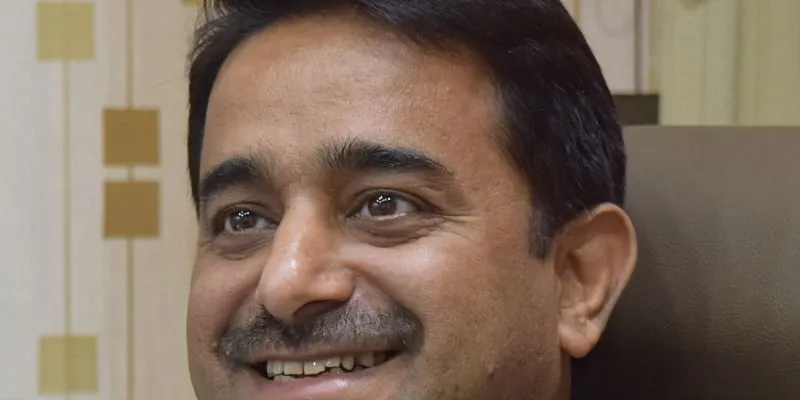
Jeetender Sharma, Founder and Managing Director, Okinawa Autotech
2021 can prove to be a revolutionary year for the electric vehicle industry. We have high hopes from the Union Budget this year and are optimistic that the government will continue to take the right steps to place India on the global EV map.
With that said, we urge the finance minister to reconsider the current taxation framework applicable to raw material and the final product, in case of EVs. While the GST input on raw material is 18 percent, the tax on outward supplies currently stands at five percent, leading to an implicit inverted duty structure for us (manufacturers). This move could help in optimising cash flows.
The central government’s recent move to extend the PLI scheme to the automobile sector, including for manufacturing of Advanced Chemistry Cells (ACC), is commendable. While this will definitely give a boost to local manufacturing, better yet, the government must also look at aggravating the domestic demand by further incentivising individual and commercial consumption of EV pan-India.
Such a holistic approach would create a thriving ecosystem for EVs, and cement India’s position as a global EV hub, offering abundant growth opportunities and attracting huge investments for further innovation.
Turning attention from rural to the urban middle-class - Chandru Kalro, Managing Director of TTK Prestige
For this budget, I remain optimistic that the government will continue on this upward trajectory to provide a further boost to the recovering economy. I would like to see the government turn their attention from rural to the urban middle-class. I believe tax breaks for the salaried class will be immensely beneficial, including steps to support the housing market. At this time, the middle-class need all the help they can get as they have been badly impacted.
I would also like to see the finance minister promote exports, in keeping with the ‘Make-in-India’ and anti-China sentiment. For our industry, I would welcome PLI schemes to provide an impetus to India’s manufacturing prospects and the kitchenware industry. Any support, when it comes to ease in GST compliance, is also something that I am looking forward to seeing in the budget.
Deena Jacob, Co-founder and CFO, Open Financial Technologies Pvt Ltd.
While the stimulus packages were definitely a step in the right direction, I would like to see fintechs or new-age startups play a more prominent part in rolling out solutions to the entire Bharat. Some specific measures that can be taken include:
- Creation of a simplified taxation structure and reforms in the space
- More focus on ease of business, particularly since it has implications when it comes to job creation and business growth
- Taking into consideration the liquidity challenges faced by new-to-credit startups or small scale businesses, or those that had to start afresh due to the pandemic. These fledgeling businesses need support measures such as quick access to capital
- Lending needs to be made easier for these entrepreneurs as they are vastly contributing to the vocal for local movement.
- Guidelines should be laid out for how banks and technology partners should work together
- A regulatory framework should be outlined that protects the interest of all stakeholders. This remains a critical aspect of the digital push, and these guidelines will further promote the collaboration between fintechs and banks
- If required, even cross-government bodies need to be set up for areas that require a completely new approach.
More focus on Make in India initiative - Akshay Hegde, Co-founder and Managing Director, ShakeDeal

Akshay Hegde, Co-founder and Managing Director, ShakeDeal
With an unprecedented pandemic-induced recession, 2020 has severely challenged MSMEs to sustain and survive. With a post-pandemic budget just around the corner, more focus should be emphasised on the Make in India initiative, and big credibility should also be given to locals to set the economy right on a growth trajectory. Further,
- The government should strive to increase the disposable income of the middle-classes so that discretionary spending will rise
- Concrete steps should be taken to improve the cash flows and reduce the working capital burden on startups and SMEs
- The current compliance and taxation laws for setting up an ecommerce entity are too stringent, especially for startups with limited resources. In line with the ease of doing business initiative, we expect Budget 2021 to bring about significant compliance and taxation reforms for such ecommerce players
- Budget 2021 should focus on enabling the development of MSMEs by providing them access to easy credit, reducing the income tax rate and GST tax rate, and offering rebates to MSMEs willing to adopt new technologies This will help in creating more employment opportunities.
- In the Union Budget 2021, it is for the government to ensure that the right push is given to build a strong tech ecosystem with favourable tax policies and upskilling or reskilling the workforce in the segment to pave the way towards the economic growth.
Long-term initiatives for the travel and tourism sector - Manish Rathi, CEO and Co-founder, IntrCity RailYatri
The COVID-19 pandemic breakout impacted the travel and mobility industry at large, and 2020 is a watershed moment for the industry. In order to provide the much-needed impetus to revive the travel and mobility economy in India, the industry is expecting long-term initiatives that will help infuse positivity and bring back growth to the economy. Some measures include:
- Prioritise the measures necessary to keep a check on pollution levels, and therefore arise the need to promote economical and eco-friendly electric, CNG, and H-CNG-based fuels
- Take measures to promote composite CNG cylinders, which can induce long-distance travel on a single refill, and reduce the wait time for a tank full, further easing the operations
- Measures that would augur well for the mobility industry in the upcoming budget would be to create a roadmap for ‘One India One Permit’ for intercity buses
- Streamline tax exemption or leniency wherever possible to compensate for the tough business environment for four to six months due to COVID -19 and the resultant lockdown.
Bring in channels for cost-effective capital - Anil Pinapala, CEO and Founder, ViVifi
One of the most pressing needs for the fintech sector is cost-efficient capital, with the banks literally sitting on piles of cash that haven’t made it to the hands of small and mid-sized NBFCs, either as a part of TLTRO 1.0 and TLTRO 2.0.
It would be a great step in the positive direction, if the Budget forces the banks to ensure the funds flow to NBFCs, especially the ones which are small and mid-sized, on one hand, while simultaneously easing the norms for getting foreign capital both as debt and equity.
As the fintech startups address the credit needs of individuals and businesses, which are not typically catered to by banks, greater foreign participation in the financial system will address a chronic shortage in domestic capital that is willing to address the underserved segments.
Focus on development of digital infrastructure - Satyam Kumar, CEO and Co-founder, Loan Tap
India’s economy is changing drastically with the evolution of the digital landscape across industries. The pandemic has given an upward push to the fintech sector and has also given big opportunities to create one-stop solution platforms for all the consumers.
As seen in the past budget sessions, the government and RBI are working together and taking several initiatives to boost the fintech ecosystem. In 2021, we expect that the government will focus more on the development of digital infrastructure to enhance customer experiences, credit quality, and also streamline the growth in FY21.
More budget for upskilling local businesses - Nikhil Arora, MD and VP, GoDaddy India
Digital technology has proven to be a key enabler for running businesses in 2020, and we hope that the government will facilitate the availability of robust technological solutions and improved digital infrastructure at a considerably lower cost to small businesses in the upcoming budget.
Along with PM Narendra Modi's recent announcement of Rs 1,000 crore Startup India Seed fund, we hope that FM Nirmala Sitharaman continues to build on the Aatmanirbhar Bharat mission, and introduce schemes to help encourage more local production and easier access to credit and working capital loans by MSMEs.
We are also hoping to see more support from this year’s budget for upskilling local businesses, and partnering with them to create more employment opportunities within the country.
Focus on reducing NPA’s - Anand Agrawal, CTO and Co-founder, Credgenics
In the credit segment, there has been a steep rise in the delinquent cases, which have risen to 43 percent in almost the past six months, thereby making a monster out of the existing 14 percent risen NPA. Encouraging e-mediation processes and digitalisation of recovery processes should be the way forward for fighting against the NPA rise, weakening the economy. Other measures include:
- Lenders should start to focus on collections driven by technology as the delinquency has multiplied during these COVID times, and unable to handle through manual processes. New-age collection stack will also help bring transparency in the collections, reduce unethical means of recovery, and reduce timelines by easily reaching out to the borrowers without demographic limitations.
- The focus needs to be brought back to the 4R strategy — recognition, resolution, recapitalisation, and reforms.
- Take steps for reducing the NPA with digital approaches and bring in a new set of regulations, boosting lending businesses by allowing them to continue reaching and serving financially underserved communities and businesses.
Take concrete measures to boost real estate - Sudeep Singh, Founder and CEO, MPowered
Introducing relaxations such as reduction of GST rates for under-construction properties, which will reduce the cost, and thereby bolster demand, is definitely one such measure. Additionally, if tax breaks are provided on income from residential and commercial properties, it will not only help in greater uptake but also bring in some relief to those who have been financially strained last year.
Lastly, credit availability needs to be ensured for under-construction projects to help those that have been stalled to come to a speedy and successful completion.
Attention to R&D in healthcare - Dr Gurpreet Sandhu, President, Council for Healthcare and Pharma
With poor historical spends on healthcare, there is an urgent need to raise the allocation substantially for health as a proportion of GDP with particular attention to R&D in biotech, epidemiology, and pharma, including vaccines, while ramping up of healthcare infrastructure. Other measures include:
- Scale-up the medical education infrastructure, both quantitatively and qualitatively.
- Added focus on preventing infections in the hospital environment.
- Addressing the creeping problem of antibiotic and antimicrobial resistance.
- India needs at least 50,000 health personnel at various levels to make good the shortfall in rural areas.
- If the government truly seeks to involve private capital, either on its own or through a PPP model, it must relax unrealistic price restrictions and rules to encourage investment in developing world-class healthcare infrastructure in the country.
- We can also get the medical and pharma companies to direct their CSR funds for the development of healthcare infrastructure and capacity building.
- We need to develop a digital ecosystem, where real-time data from premier hospitals and diagnostic centres flow into a data centre that tracks, monitors, and predicts changes in disease patterns. This would ensure timely action and help avoid expensive follow-up treatment.
- Further, not only medical insurance needs to be extended to more people, but it should also include more services such as dental procedures, mental health, and home care for the sick, and the Union Budget should make provisions accordingly.
Encouraging digitisation of payments in rural areas - Rohit Kumar, Founder and CEO, XPAY Life Pvt. Ltd.
The last few budgets have been very beneficial for the startup ecosystem, and have helped startups gain a foothold in the tough business world of today. Digitised payments was also a focus area in the previous year, where a lot of push was given to enabling digital payments. These have resulted in tremendous growth, mainly in the cities of India. We would like to see a bit more push to enable such digitisation in rural India as well. True digital India will be achieved only when the remotest of the villages in the country can transact confidently on online platforms.
More policy reforms for media and entertainment industry - Puneet Singh, Filmmaker and Co-founder, Clapstem Entertainment
Backed by the largest cinema hubs in the world and passionate cinema-goers, the Indian Film industry is a multi-billion-rupee industry. With the onset of the COVID-19 pandemic, though it has impacted the industry in terms of conducting shoots, releasing in theatres, etc., a positive has been that fact that the film releases have moved to the virtual world, making a mark into an already booming streaming market.
Despite this, the fact remains that the industry has been hit badly due to the pandemic, and survival has become challenging for the entertainment industry. From Budget perspective, I am hoping that the Union Budget 2021 has more policy reforms to bring down the GST tax slab, induce grants and subsidies, apart from providing more flexibility in operations and creating better infrastructure for the industry. The Budget should also address policies for safeguarding the theatre infrastructure and the major loss that the entertainment has suffered due to the pandemic.
Simplified GST and tax structure - Rajat Jadhav, Co-founder, Bold Care
There is an increased need for simplification of GST structure and easing of taxes to help startups and MSMEs crusade through the shortcomings caused due to liquidity gaps. Also, startups must be exempted from compliances of taxes, filings, and the corresponding paperwork, at least for the first 20 months so they can pivot their energies towards business and operations.
Focus on ease of doing businesses will attract foreign and domestic investors and will create a well-cushioned environment for startups expediting their scope of growth, ensuring long-term survival and strengthening their footing in the market. Additionally, with the pandemic heralding a new wave of digital transformation, emphasis on incentivisation and fortification of digital infrastructure will go a long way in ushering innovation and accelerating growth.
Focus on speedy recovery of F&B industry - Mustakeen Sheikh, Co-founder of Realta Ventures
The pandemic has had a dampening impact on the F&B industry in India, compelling it to restructure operations, reshape efforts, and redevise strategies for survival. As hospitality players wade through the turmoil, we expect the Union Budget to lay special focus on providing stimulus packages, enabling speedy recovery of the sector.
Pragmatic tax relief measures will foster a conducive environment for hospitality players to revive operations and bounce back sooner. Also, restoration of the input tax credit for the F&B sector will spur investment and ease long-term funding challenges. Additionally, with the contagion leading to several job losses across the country, further taking a hit on consumers' discretionary spends, the power tariff slabs for F&B outlets should be in line with rates applicable to industries at least for the ongoing immediate-post-lockdown period.
We are positive that the Union Budget 2021 will recoup the hospitality and F&B landscape in India and boost the startup ecosystem, while providing respite measures to rejuvenate the sector.
Budgetary focus on smart water management - Amit Vaidya, Director, India, Metrology Business, Sensus
With the Indian government key focus targeted around improving the infrastructure, boost public transport, and provide clean drinking water, we know India has realised the criticality of water usage and conservation concerns today. To envision the next step in the upcoming Union Budget 2021,
- Firstly, deriving key insights from global smart water management success use cases, India should allocate budgetary focus to encourage digital shift and technological advancement to implement those best practices like deploying cutting-edge smart water metres, especially in Tier II and III cities to balance the exponential population shift and strained water supply network.
- Secondly, under the Aatmanirbhar Bharat initiative, spotlighting water infrastructural investment through a high-value partnership with global players, that is stable, long-term, equitable, and commendable is vital.
- With the clear signals of a looming water crisis, both on the surface and groundwater front, it is necessary for specific budgetary allocation for the Jal Shakti Abhiyan. The COVID-19 pandemic has made us rethink the importance of the concept of water digitalisation, and the need for improving India’s water infrastructure network and management system.
- Going forward, India needs more cities to understand, adopt, and retrieve the benefit of digital water infrastructure.
- Need budgetary agenda where all water stakeholders can function hand-in-hand to make India a water independent nation will be necessary for the economy to thrive.
Thurst on upskilling - Kounal Gupta, CEO and Founder, Henry Harvin Education
As 2020 saw an unprecedented downturn in the economy, owing to COVID-19, the expectations from Budget 2021 are immense as well. The government must extend relief to individual income taxpayers to increase their power of expenditure and investment. Sectors which defied the trend and witnessed a spike in growth such as edtech, fintech, healthtech, HRtech, etc., have contributed to the GDP by expanding and hiring. For these, the government should reduce tax burdens, simplify tax GST structure, incentivise digital innovation, and extend credit facilities.
The government’s thrust must be on rebuilding the economy through homegrown startups and MSMEs that will give strength to the Aatmanirbhar Bharat, Vocal For Local, and Make-In-India. Highly impacted sectors like retail, realty, infrastructure, aviation, hospitality, etc., need an empathetic attitude of the government in the form of policy changes, tax rebates, and financial support to survive and contribute to the growth of the country. Last, but not the least, a huge thrust on skill upgradation to help India become a global manufacturing business hub in the near future.
Lower GST for all housing categories - Vikram Chari, Founder and CEO, SmartOwner
With real estate being a major contributor to the country’s GDP, the past year has been a tough one for the industry with the multiple lockdowns and labour shortage, and expectations are high on the Union Budget to help revive it. First and foremost is the classification of real estate under the infrastructure sector for the industry to benefit from the priority sector lending by banks.
There is also an expectation of lowering the GST for all housing categories in addition to reinstating input tax credit for developers. While the final budget SOPs for real estate are awaited, the industry watches keenly if the limits for affordable housing too will be raised this year.
Incentivise the use of new-age technologies - Anuj Kapuria, Founder and CEO, The Hi-Tech Robotics Systemz Ltd.
Newer technologies like robotic and automation will be critical in driving the economy to pre-COVID levels and beyond. Budget 2021 should focus on enhancing productivity by incentivising the use of technology to make India self-reliant and future-ready. For instance:
- Timely policy interventions can accelerate robotic adoption in manufacturing and warehousing.
- Special focus should be on warehouse automation, where we have seen an increase in customer traction
- Interventions are required on multiple fronts – boosting demand, accelerating technology development, and building a conducive ecosystem.
- Reduction of customs duty/IGST and providing tax breaks/incentives to robotics adopters can boost demand.
- For accelerating technology and R&D, setting up of robotics centres of excellence/incubation centres, continued research grants for robotics R&D, and continuation of income tax deduction will be the key drivers.
Boster for aquaculture sector - Dippankar S. Haldar, Founder and CEO, Jalongi.com
Fish and seafood are one of the most trusted immunity superfoods, the relevance of which is becoming increasingly significant. This year, we expect real boosters for the aquaculture sector itself. Fish farmers need insurance to get access to bank finance, and we hope to see this covered from the government's end. At the same time, we are also expecting support in the setting up of regional collection facilities and cold-chain logistics.
More focus on skilling and STEM-based education - Ankush Singla, Co-founder, Coding Ninjas and Captain Coder.
We have witnessed a huge transformation in the education system in the past year due to the pandemic. We are optimistic and looking forward to some announcements in the education sector, especially concerning the New Education Policy, with more focus on the K12 segment.
We are also ready to have a collaborative approach, where we as an edtech platform, can come forward and associate with the private and government institutions to scale-up coding education. This will increase our contribution to the industry to provide education to more and more students across the nation. We expect to focus on skilling and STEM-based education in schools and colleges.
Help boost innovation in edtech - Sneha Priya, Co-founder, SP Robotics Works
Though the pandemic has turned around the entire education system and pushed everyone to adapt to the new normal, there is definitely a great need for innovation in the online education space. As per SP Robotic Works' survey with 3,600 parents and their children, 67 percent of them do not approve the way of online education mainly because the children don't understand, and are not able to engage themselves in a classroom. Innovation in this space is highly essential at this stage to continue the technological advancement in the education system, and the industry, today, very much needs a hike in budget allocation for the same.
More budgetary allocation for education - Dilip Puri, Founder and CEO, Indian School of Hospitality
Among the most game-changing announcements made by the government during the pandemic has been the National Education Policy 2020. It is indeed a visionary document, but the proof of its success will be determined by the way it is executed. I think a big statement of intent by the government will be seen by the budgetary allocation made towards the implementation of the NEP. If we are really serious about allocating six percent of the GDP towards investment in education, this budget seems to be the best opportunity to demonstrate that intent.
A concrete plan of action for National Cybersecurity Policy - Sandip Kumar Panda, CEO and Co-founder of InstaSafe Technologies
Digital frauds have risen by 500 percent in this year alone, accentuated by the increased digital dependence. The fact that the government has been dabbling with the idea of a National Cybersecurity Policy without resolving on a concrete plan means that the breaches and instances of fraud could reach a point of no return. The breaches have proliferated from finance to other areas as well (bearing in mind the Mumbai powercut), and could also, present a potential threat to India’s vaccine drive. A concrete plan of action for a National Cybersecurity policy is imperative in the Budget this year, as it will form the backbone of India’s digital push in the next decade, and additionally, set aside funds for cybersecurity awareness among the general populace as well.
- What the government could do is set up a Cybersecurity Center of Excellence and work with the DSCI and Nasscom, which have been doing exceptional work to further nurture the cybersecurity ecosystem in India, and build indigenous offensive cyber capabilities.
- The realisation of a more flexible framework for funding of startups by foreign investors, which would actually help in mobilising the startup funding arena.
- Facilitate growth by relaxing angel investing norms, and the adoption of measures such as the inclusion of debt funding as a part of angel investments.
Making startups nature-positive - Amit Banka, Founder and CEO, WeNaturalists
The world is swiftly moving towards a nature-positive economy. Looking into the future, my expectation from the Union Budget is a significant drive towards making startups nature-positive from day 1. We rightly push for old-economy conglomerates to reduce their carbon footprint, why can't we frame policies under the startup initiative/programme to incentivise companies to implement nature-positive processes from ground zero? In India, the startup world is still at a nascent stage.
The right impetus from the government can help us move towards a sustainable future and eventually help us achieve our 2030 goals.
As we step into this decade, we are faced with multiple challenges. From our energy consumption to our over-reliance on plastics — there lies an opportunity for us to turn towards nature. We need to focus on nature-based solutions for startup businesses. The budgetary allocations towards fighting climate change begin at the grassroots level.
Large corporations continue to be under-fire for their enormous ecological footprint. It is much-needed, and we also need strong corrective measures to ensure that we aren’t doing the same for those setting up new businesses. The budgetary allocations towards a nature-positive economy can help in answering a lot of the above questions. It’s time for India to truly be a global leader for sustainability.
Amalgamate Ayurveda, alternate medicine with new scientific formulas - Kamayani Naresh, Founder of Zyropathy
Coronavirus has made the entire world realise the importance of a strong and proper healthcare system. As a part of the alternative medicine system, we have high hopes from this year’s budget.
On the GST front, we hope the government will reduce GST on supplements to a maximum of six percent, and GST on Ayurvedic products should be made nil as our country needs a lot of support to develop Ayurveda and alternative medicine systems.
The ancient knowledge of Ayurveda needs to be amalgamated with new scientific formulas and techniques available, which is not possible without the government's support. The GST returns should be simplified for the smaller industries whose turnover is less than Rs 5 crore. It should be a maximum of three to four returns in a year as it is very difficult for us to maintain a finance department dedicatedly for this purpose.
The income tax procedure must be streamlined and simplified. Presently, for companies that are filing profits of more than eight percent, there is no tax audit. However, for companies clocking less than eight percent profit, there is a tax audit, which is a very cumbersome procedure to maintain.
I think this percentage should be brought down to 2 to 2.5 percent and under 44AD up to Rs 5 crore, and there should not be any tax audit. Compliances by the company must be reduced drastically because they have increased manifold in the last three years.
Sustainability is the biggest issue for us right now as we have direct competition with the world leaders in this field. We need to ensure quality and cost, and at the same time, if we do not focus on quality then we tend to lose and will be out of the business. We need government support and the expenditure made in R&D should be non-taxable and given 100 percent exemptions.
COVID-19 has already devastated all the medicine system apart from the vaccines the government is promoting. We need government support for our survival so that we can serve the people in the best possible way.
Digitalised taxation and documentation through a single-window - Saurabh Jaitly, Co-founder, Shippigo
After being hit by the COVID-19, logistics industry started getting back on track after initial hiccups. As the logistics industry is getting digitalised, we are looking forward to digitalised taxation and documentation through a single-window, which will not be time-consuming for startups.
As any startup is resource-constrained, and a good amount of time is spent on tax calculation and statutory compliances, a special fund should be set up by the government to provide easier access to capital for startups.
We expect a lower income tax rate for newly incorporated startups as presently, the newly incorporated manufacturing companies are taxed at 15 percent. Startups are largely dependent on foreign investments to build their brands. The government should look into incentives that motivate Indian investors to help support Indian startups.
The government should reduce long-term capital gains on the sale of shares to 10 percent at par with foreign investors. There is a dire need for more investment in tech that will improve the functioning of the companies, which will make the Indian logistics industry at par with leading global companies.
Stepping up cybersecurity measures - Rakesh Kharwal, Managing Director - India/South Asia and ASEAN, Cyberbit
The Union Budget 2021 should concentrate on stepping up cybersecurity measures to safeguard critical infrastructure and Data for financial systems, public health, science, safety institutions, defence, aerospace, and intelligence agencies. This increased focus on cybersecurity further increases the cyber skills gap already impacting organisations globally. We expect an increased budgetary allocation for the national cybersecurity skilling programmes across central and state universities, IITs, and NIITs, and other future skills academies being set up by states.
An optimum forward strategy would be to leverage simulation-based cybersecurity platforms like Cyber Ranges to impart real-world experience on the ever-evolving global threats. It will aid in resolving the glaring skill-employability gap in the Indian cybersecurity industry, and also deftly pivoting the vertical towards competing in the global market.
Daizy Chawla, Senior Partner, Singh & Associates
It is expected that the Union Budget will provide clarity on the provisions of the code, which will not apply to MSME [Section 240A (2) of the Code]. It is also expected that the government will clarify the modus operandi of applicability of the provisions of I&B Code 2016 in cases where the default has occurred during the suspension period. At present, under Section 10A, no insolvency proceedings can ever be undertaken against the corporate debtor who has defaulted during the suspension period.
Further, what will be the fate of guarantors (both corporate and personal guarantor) in such cases. Furthermore, it is also expected that pre-pack insolvency regulations will be discussed in the Union Budget.
Offer premiums to boost the much-needed innovation in the IT sector - Sandeep Sekhar, Chairman and Global CEO, C Ahead Digital
The Indian IT sector has made it possible for many small and big organisations to stay afloat, and thus, expects to clinch a comprehensive tax and regulatory policy to be evenly implemented and facilitate the sector's growth. Government policies and mediations will play a vital role in the development of the industry in the economy. Fiscal policies, that mainly embody various financial allowances and benefits, should be offered to the sector.
We expect that the upcoming Budget will have policies, which will be aimed to stir up the innovation, and R&D in areas that have conventionally formed the backbone for the growth of certain portions of the IT sector. I expect the government to support the IT sector, offer premiums to boost the much-needed innovation, and give a level-playing domain. If not for the whole IT sector, at least new digital technologies must be allowed to leapfrog with incentives, rebates, and tax holidays with express refunds to boost exports, employment, and the digital economy.
Sheshgiri Kamath, Co-founder and CEO,
Startups have long been wishing for the relaxation of the FEMA laws. The ease of inbound/outbound financial transactions internationally has been a much-debated subject due to the number of startups that are raising capital from foreign funds. At present, there are talks around simplifying the compliance procedure with reduced paperwork, especially the ones about filings. Startups will definitely benefit immensely if filings, returns, and submissions are made online.
The technology sector has faced tailwinds in recent times, especially during the pandemic. Making the process of raising capital a little easier by simplifying foreign outward and inward transactions will go a long way. Additionally, making changes to capital gains tax and the tax structure on ESOPs is going to help the sector tremendously as well.
‘Make in India’ is another initiative where technology companies have been leading from the front, especially considering the size of the Indian software exports. Reportedly, as the government is planning to make this the best budget in the past century, I believe, the tech space is eagerly awaiting big changes.
Focus on strengthening national digital security - Anjani Kommisetti, Country Manager, India and SAARC, Raritan and Servertech, Brands of Legrand
India is only a generation behind in terms of adopting new technology compared to other nations. However, the country’s cyber readiness requires stringent measures, which have to be a priority in the Budget 2021 — not just for businesses but also the general population.
The government needs to focus on strengthening national digital security by introducing mandatory regulations and policies similar to GDPR as it is key to continue the digital transformation journey. Cyber awareness is important in a country like ours, which has the second-largest internet population in the world. The unmatched ratio of cyber knowledge in metros and people with limited education and better internet accessibility in regional cities requires attention and measures.
Last year’s Budget came with some relief to the MSME sector in terms of ease of doing business in the region. However, the infrastructure, availability of transportation, better network bandwidth, etc., still need improvisation. The upcoming Budget should focus on enhancing digital infrastructure, especially in Tier II and III cities. The non-availability of adequate network bandwidth or connectivity issues essentially impacts the working class – while they cannot work from offices, they are also not in a position to leave the cities.
Lastly, there is a need to increase spending power at the lower level, that is the people. While there have been exemptions, financial schemes, tax benefits to individuals in earlier budgets, financial charges in many sectors are still high. The government should consider lowering these charges, including reduced interest rates on loans, which will allow individuals to have more cash in hand, and increase their spending capabilities towards businesses, thus benefiting the economy.
Neeti Sharma, Senior Vice President, TeamLease Services
With 90 million youth entering the workforce by 2030, and with 60 million employment opportunities expected to be created due to the digital economy by 2025, India needs to re-look at the employability of the youth. Skills are becoming ever more important, and 50 percent of our workforce is still not adequately skilled.
For the Indian economy to get out of the post-pandemic slumber, the need of the hour is to mobilise jobs and improve skills of the youth. Union Budget 2021 needs to focus on developing a robust digital infrastructure. Furthermore, with a large part of the skills development budget for FY21 being unutilised or underutilised, in Budget 2021, the government needs to create structured avenues for utilising the funds such that skills development for the youth of our country becomes a continuous activity rather than get stalled due to certain conditions.
Some of the key areas which will require attention are augmenting physical infrastructure, enabling technology adoption for blended learning/skilling, fast-tracking policy implementation, and streamlining the skilling ecosystem.
One of the other key aspects that the budget should look at is introducing tax relief on the CSR funds. Exempting GST and other tax liabilities on the CSR funds will reduce the cost burden and enable more corporates to effectively use CSR budgets for initiatives such as skill training and rural workforce development.
(With inputs from Saheli Sen Gupta, Rashi Varshney, Sindhu Kashyap, Suman Singh, Debolina Biswas, Bhavya Kaushal, Sohini Mitter, Aparajita Saxena)
(Disclaimer: This is a rolling story and will be updated as and when more inputs are received from Indian startups, entrepreneurs, and industry experts.)
For YourStory's multimedia coverage of Budget 2021, visit YourStory's Budget 2021 page or budget.yourstory.com

Edited by Suman Singh, Kanishk Singh and Anju Narayanan

















